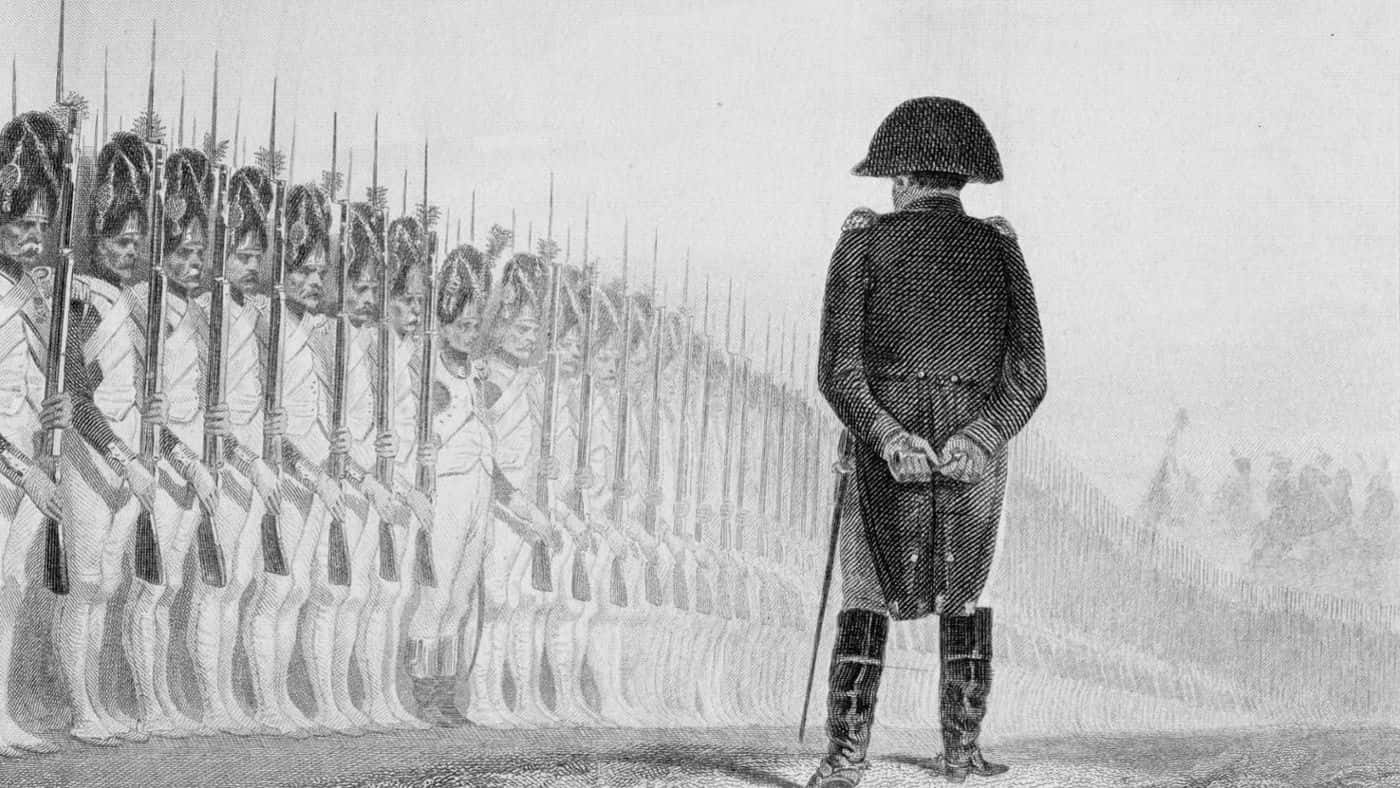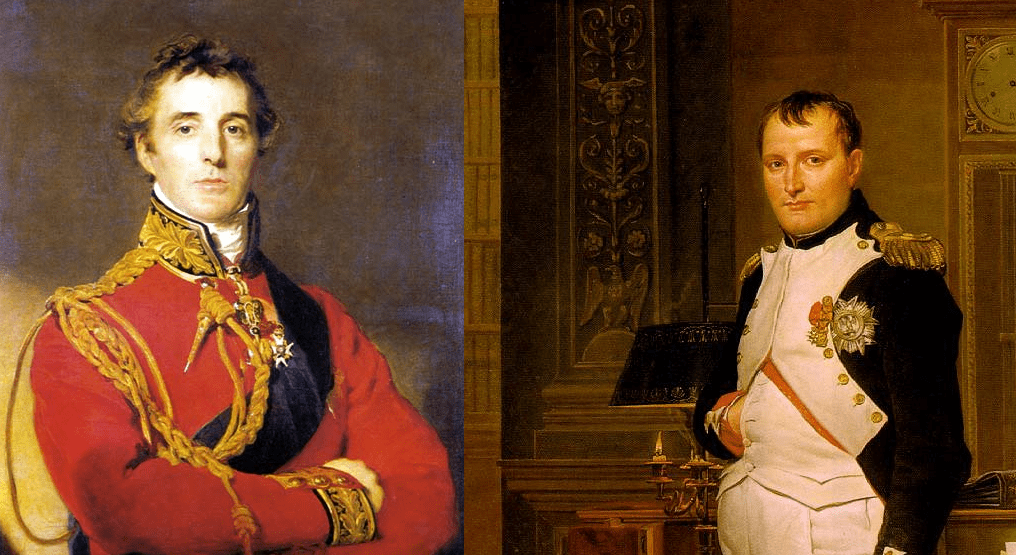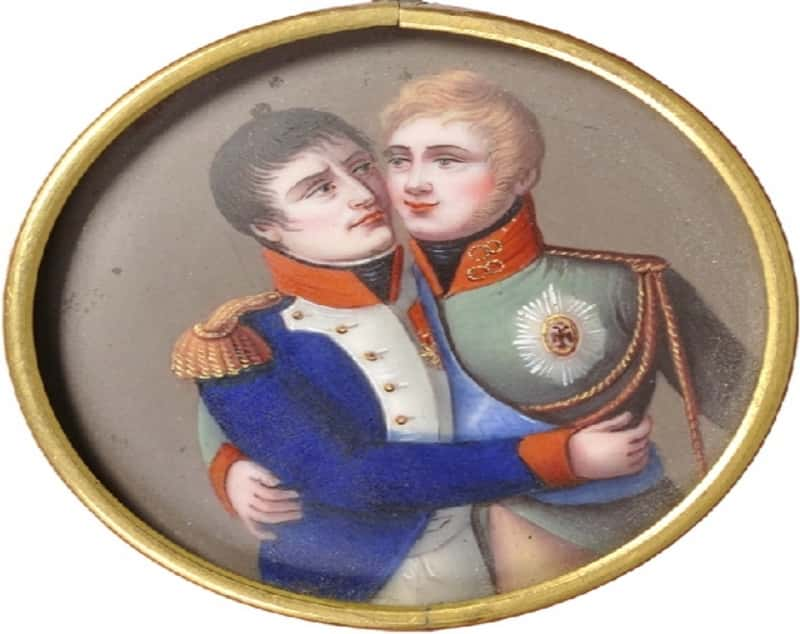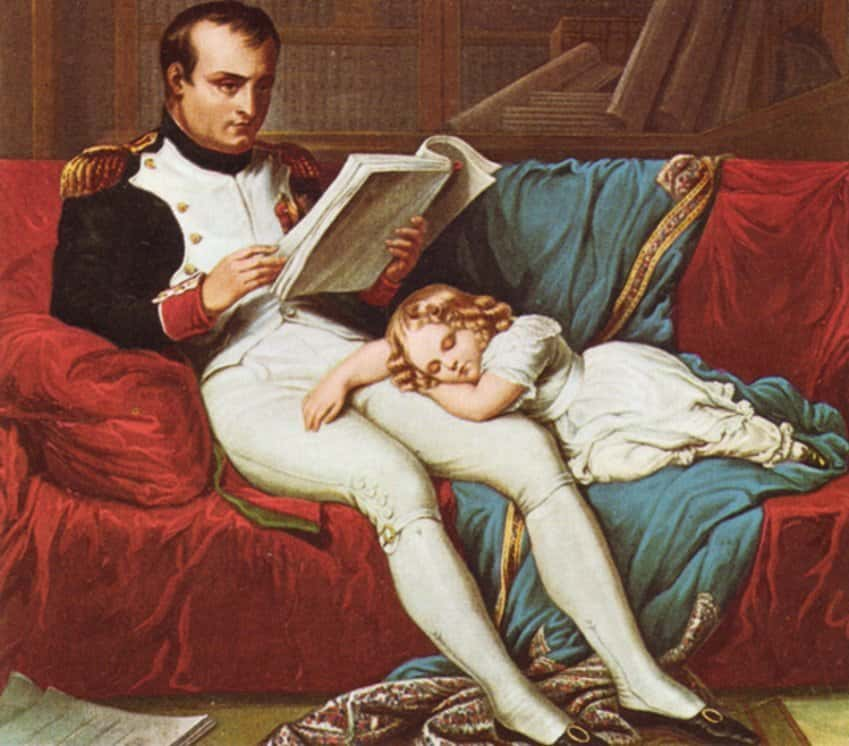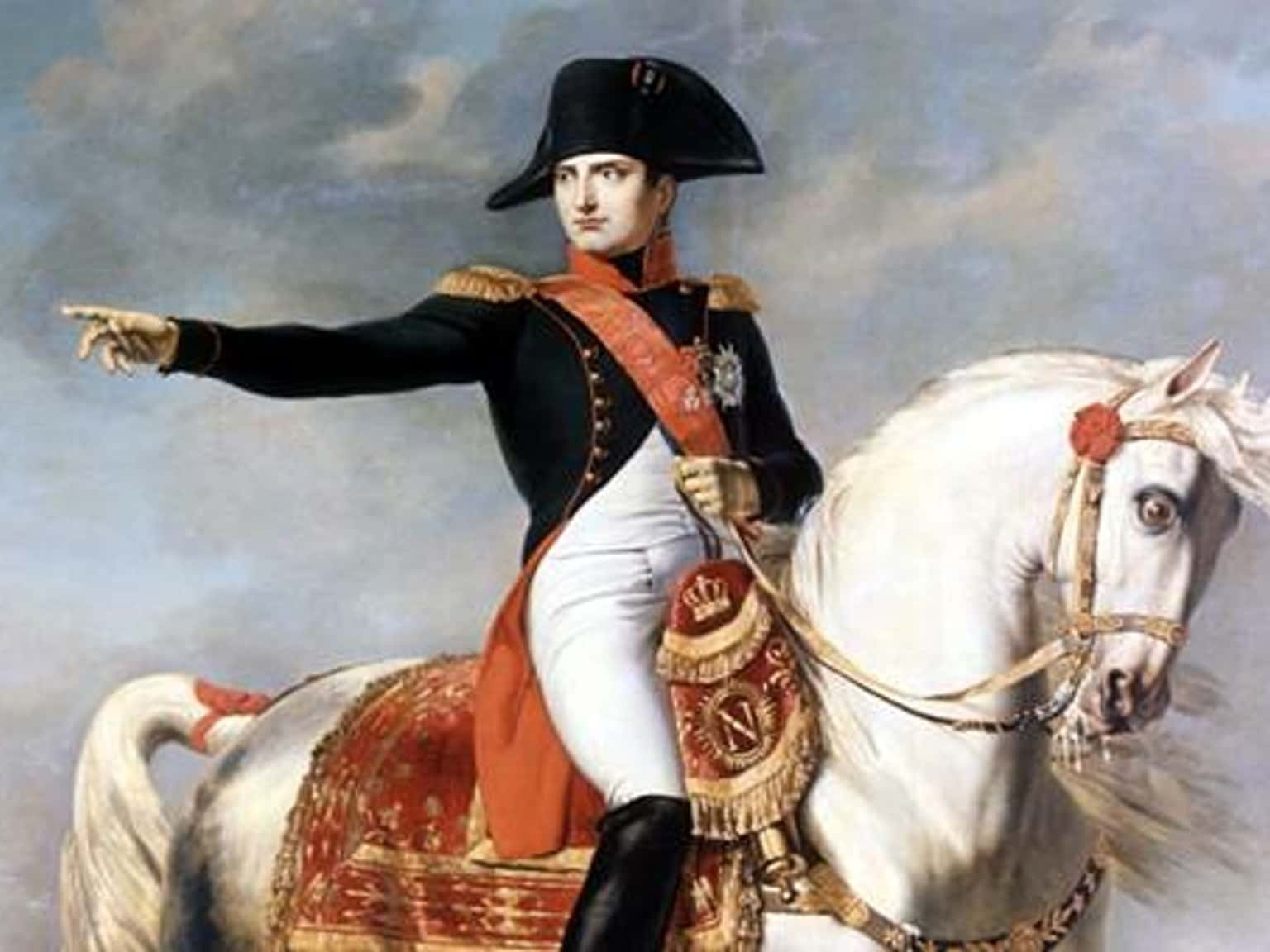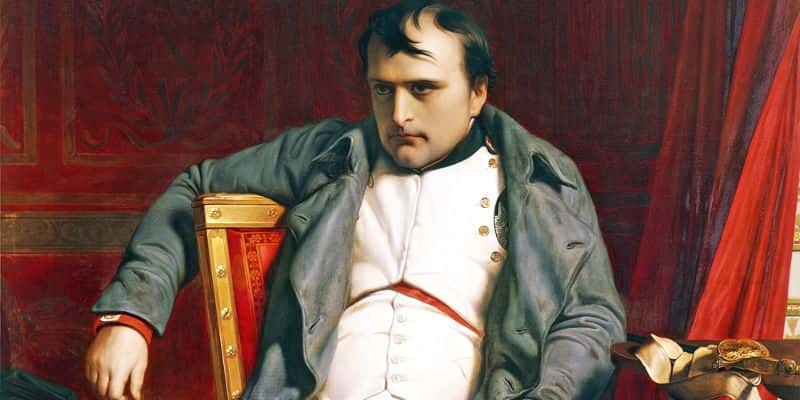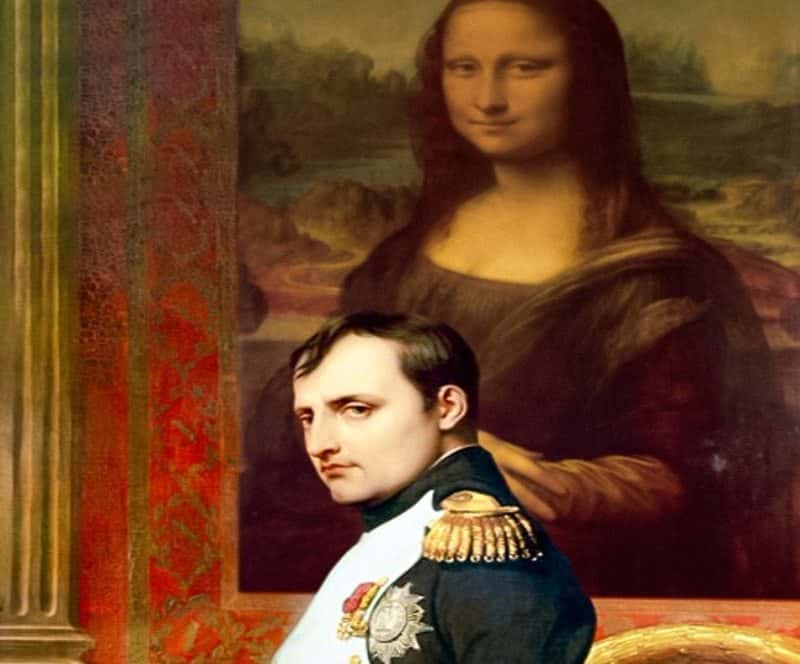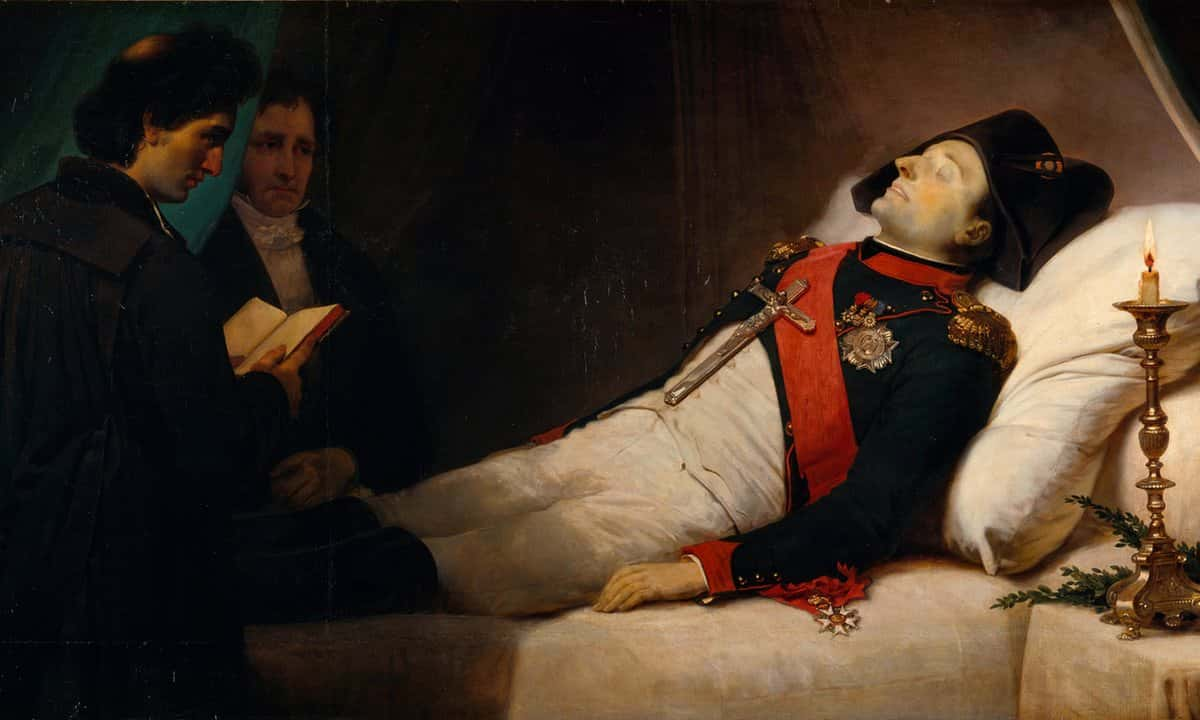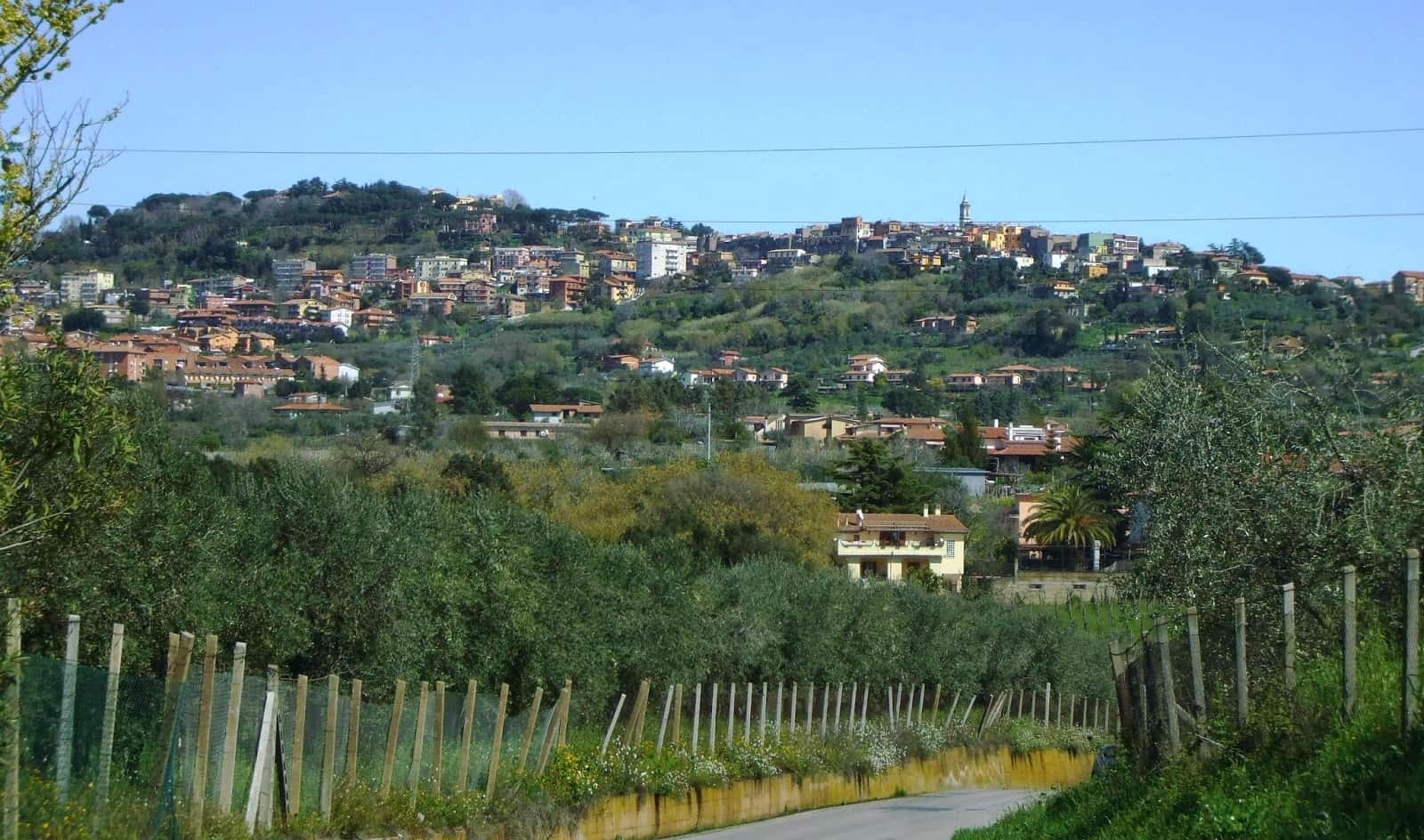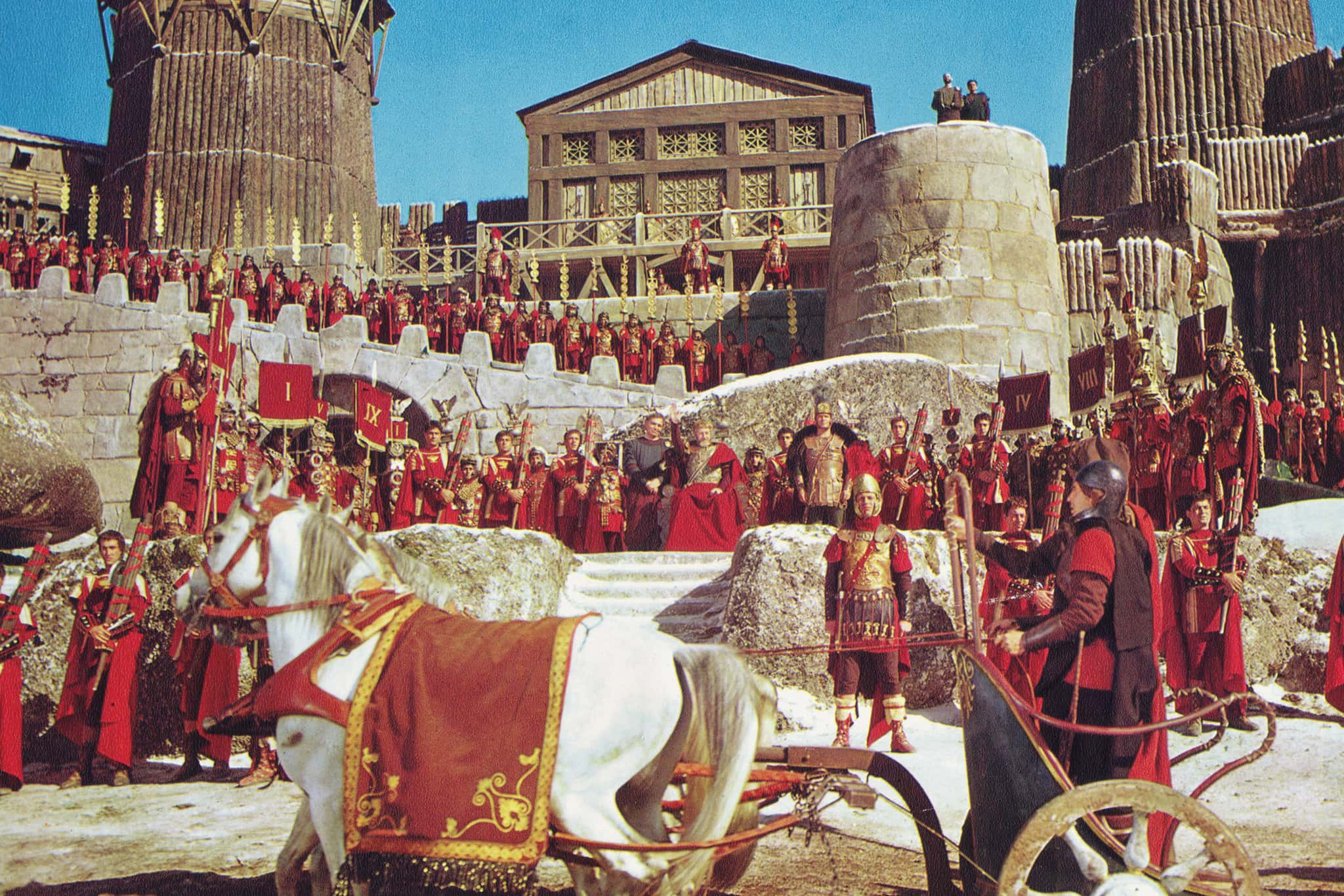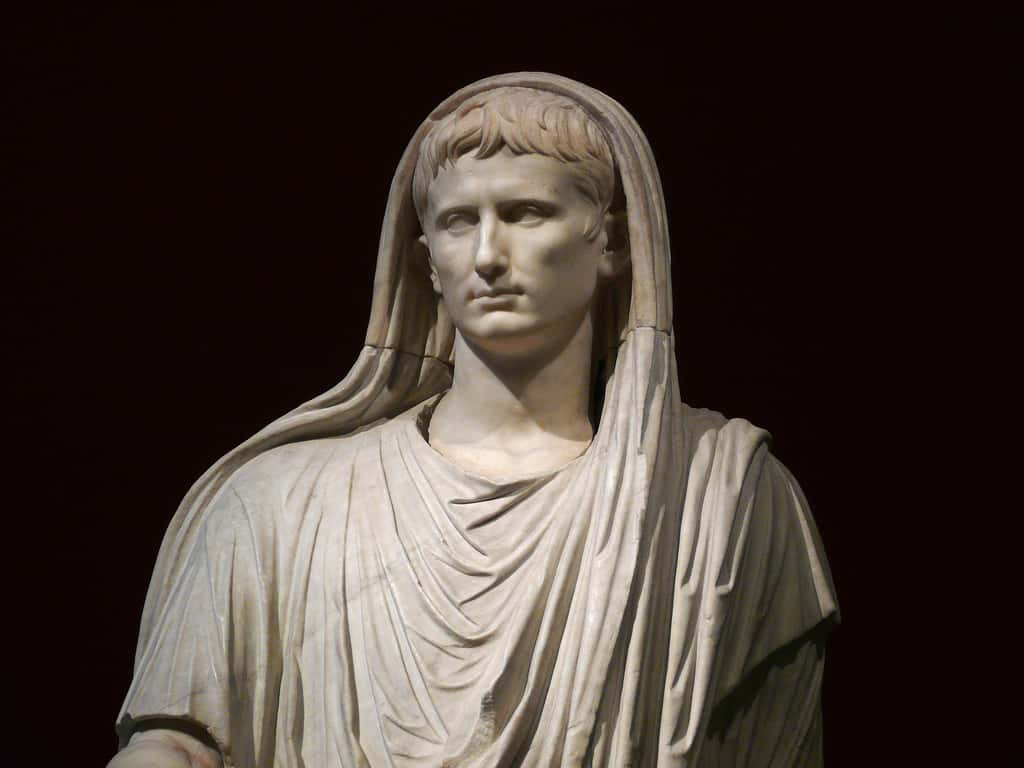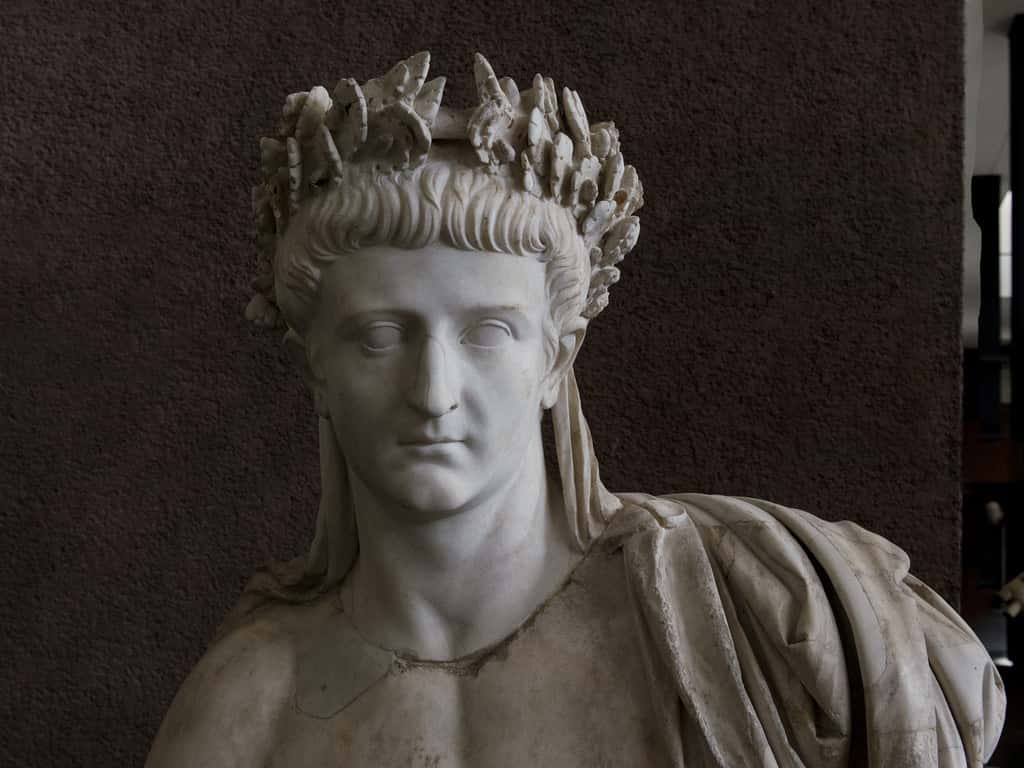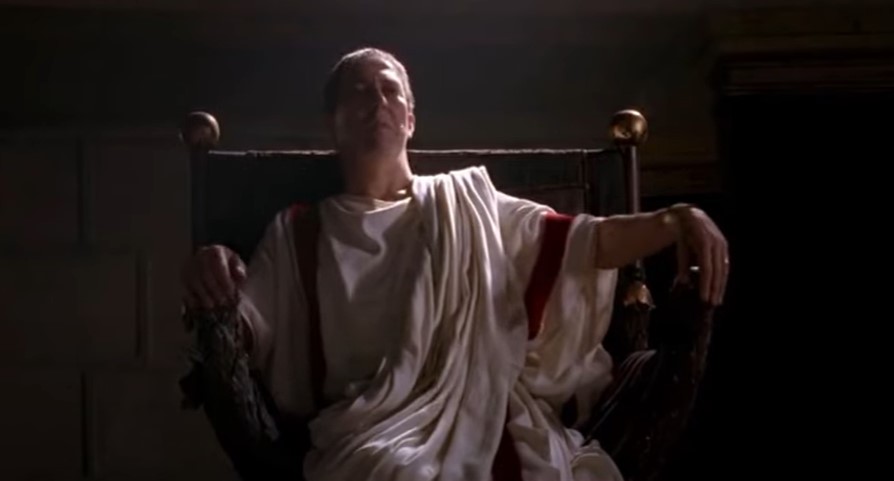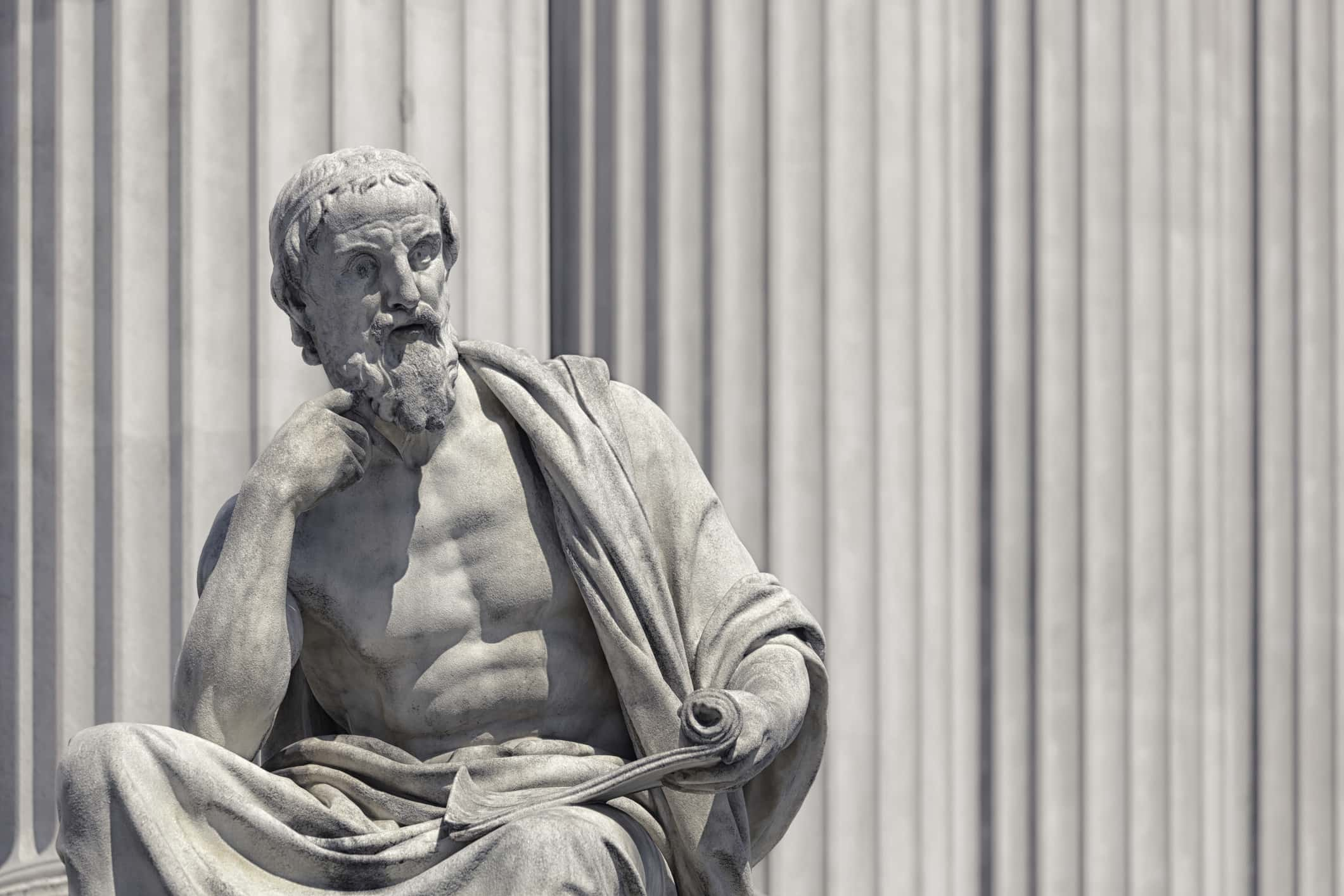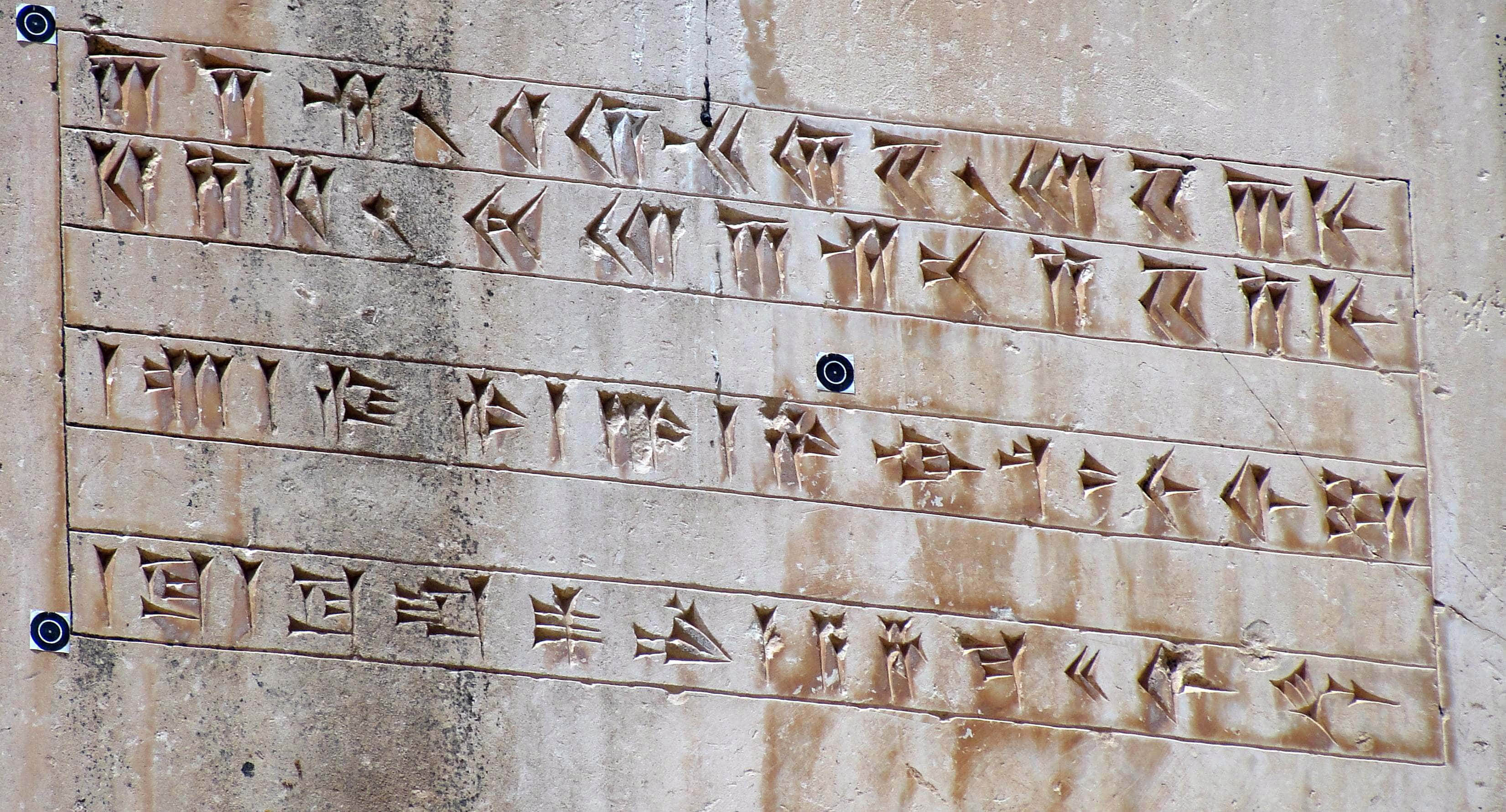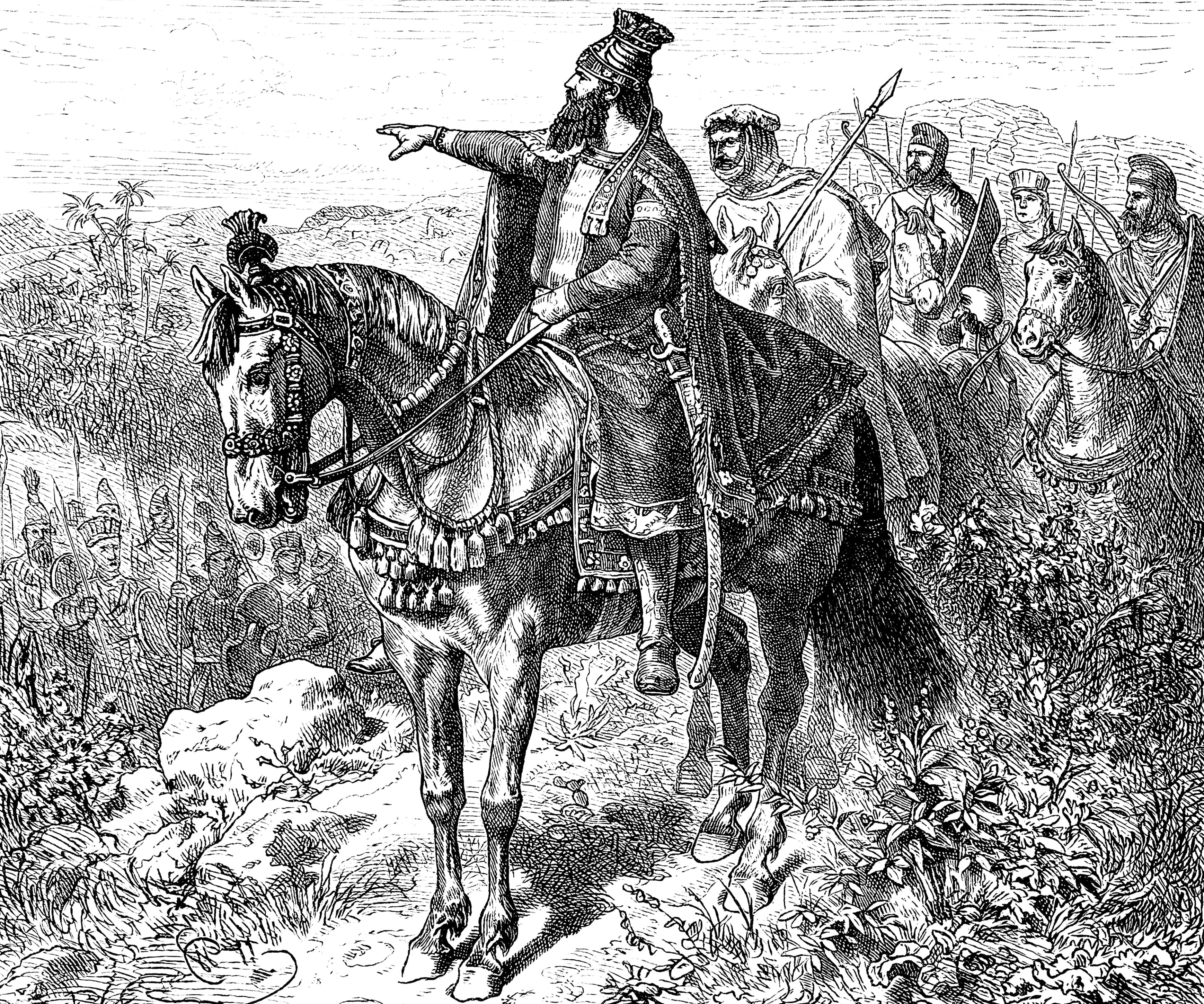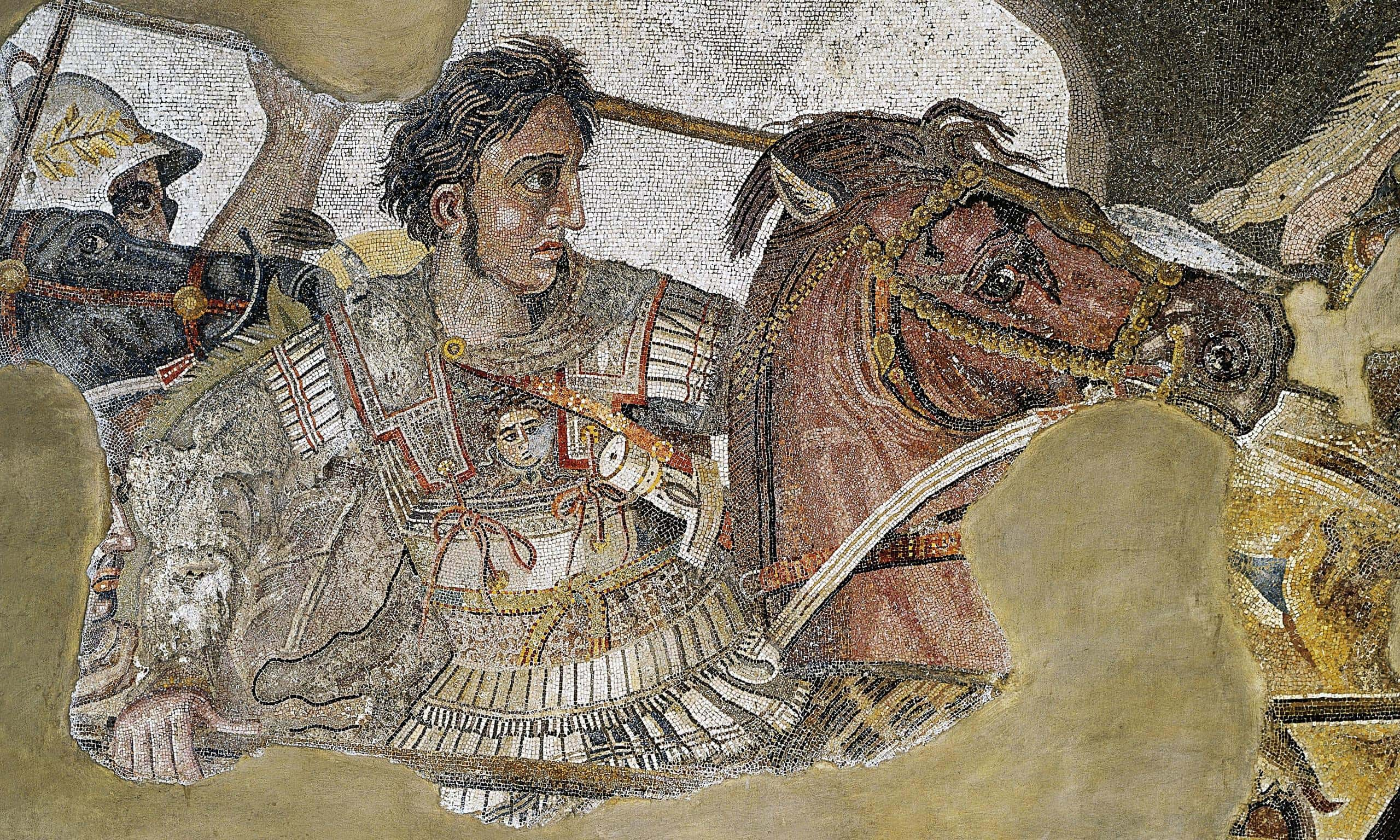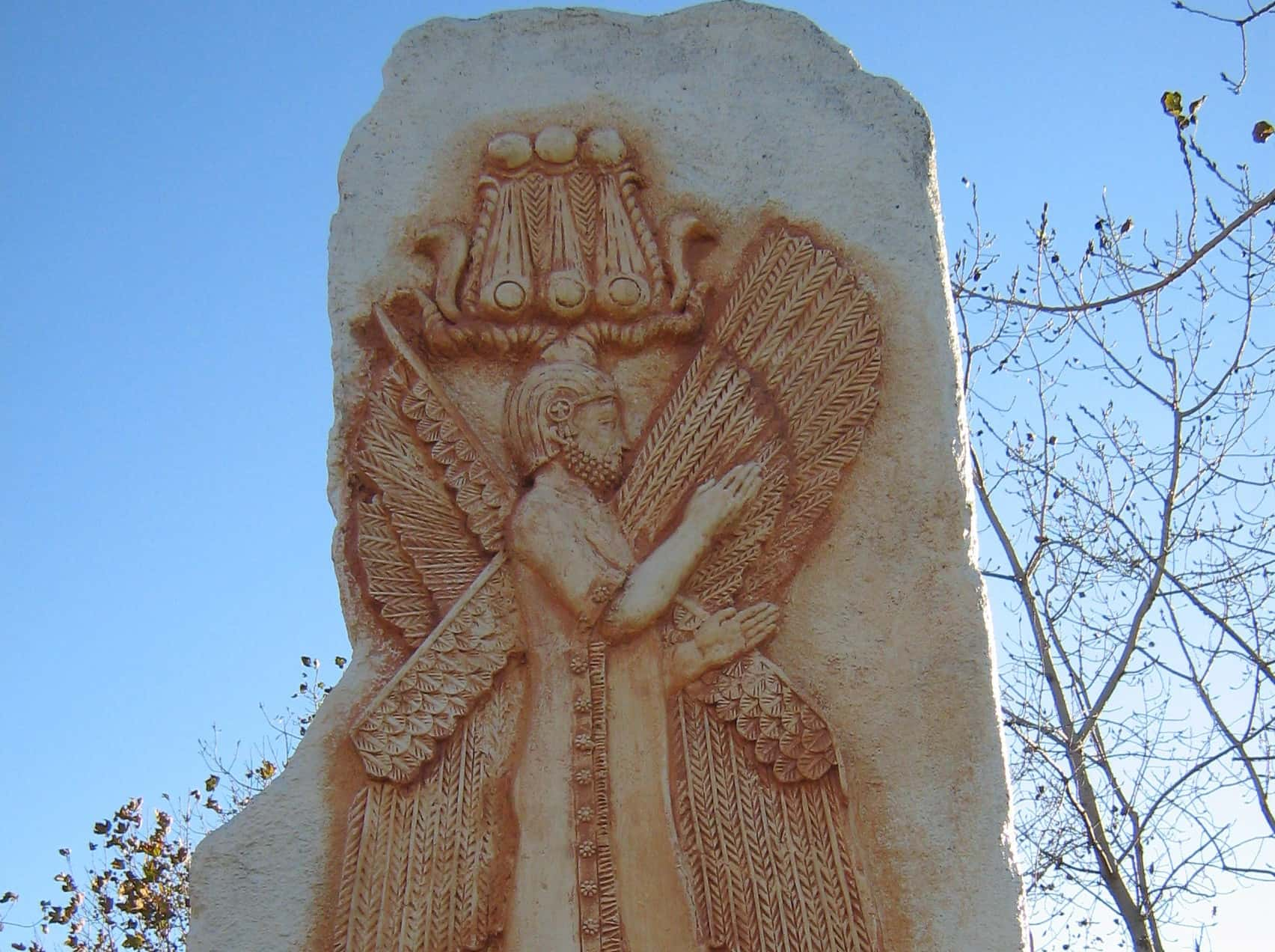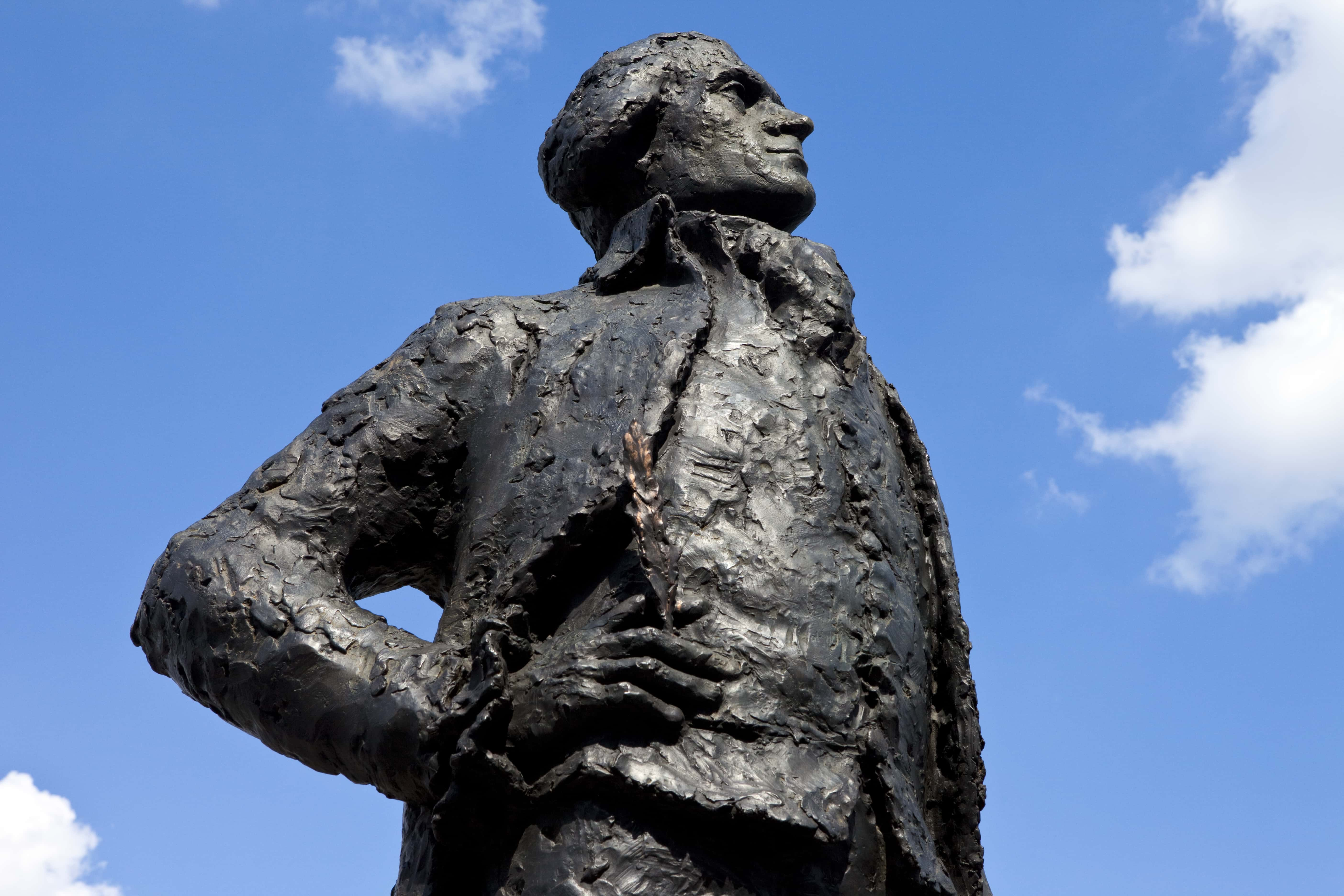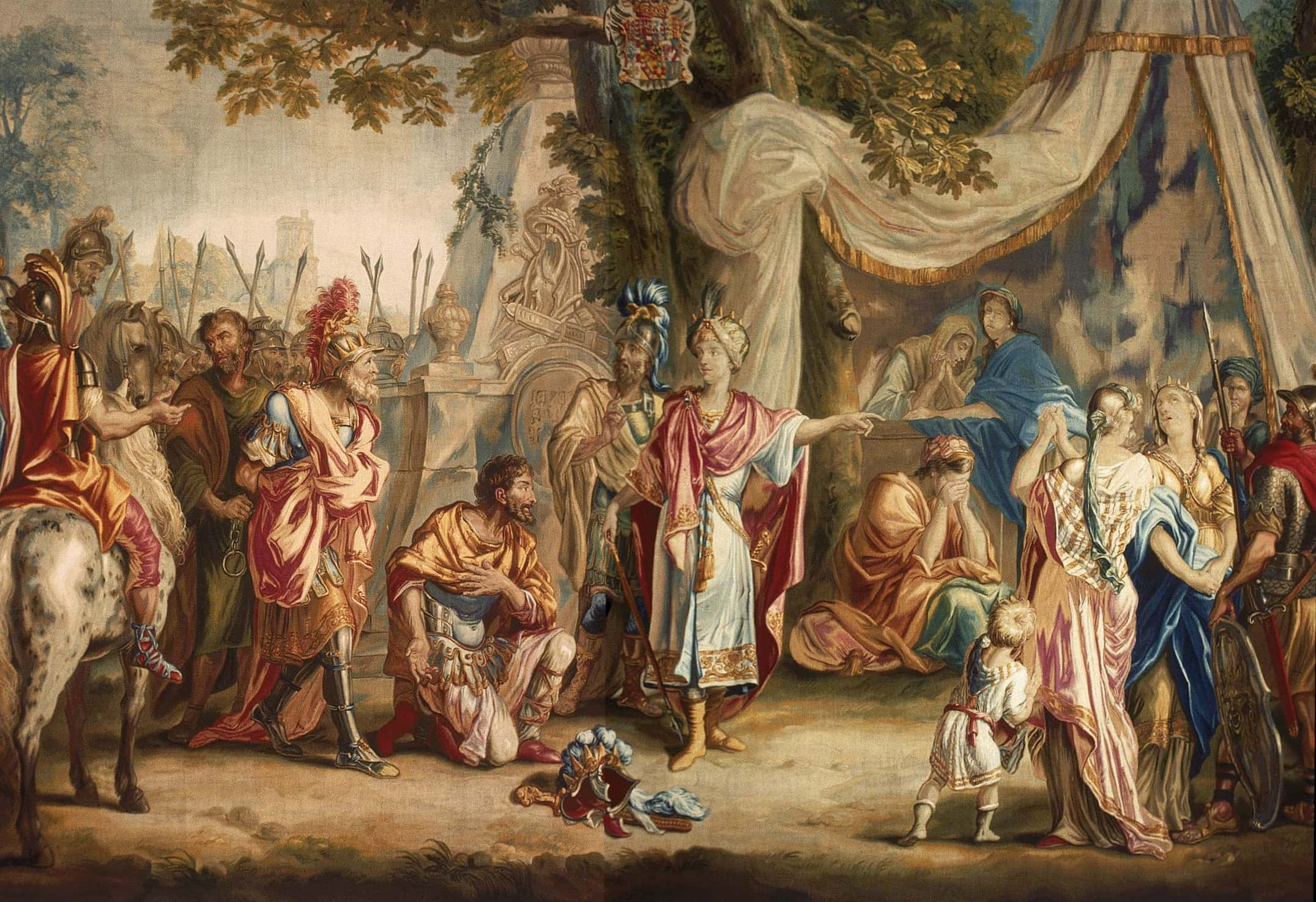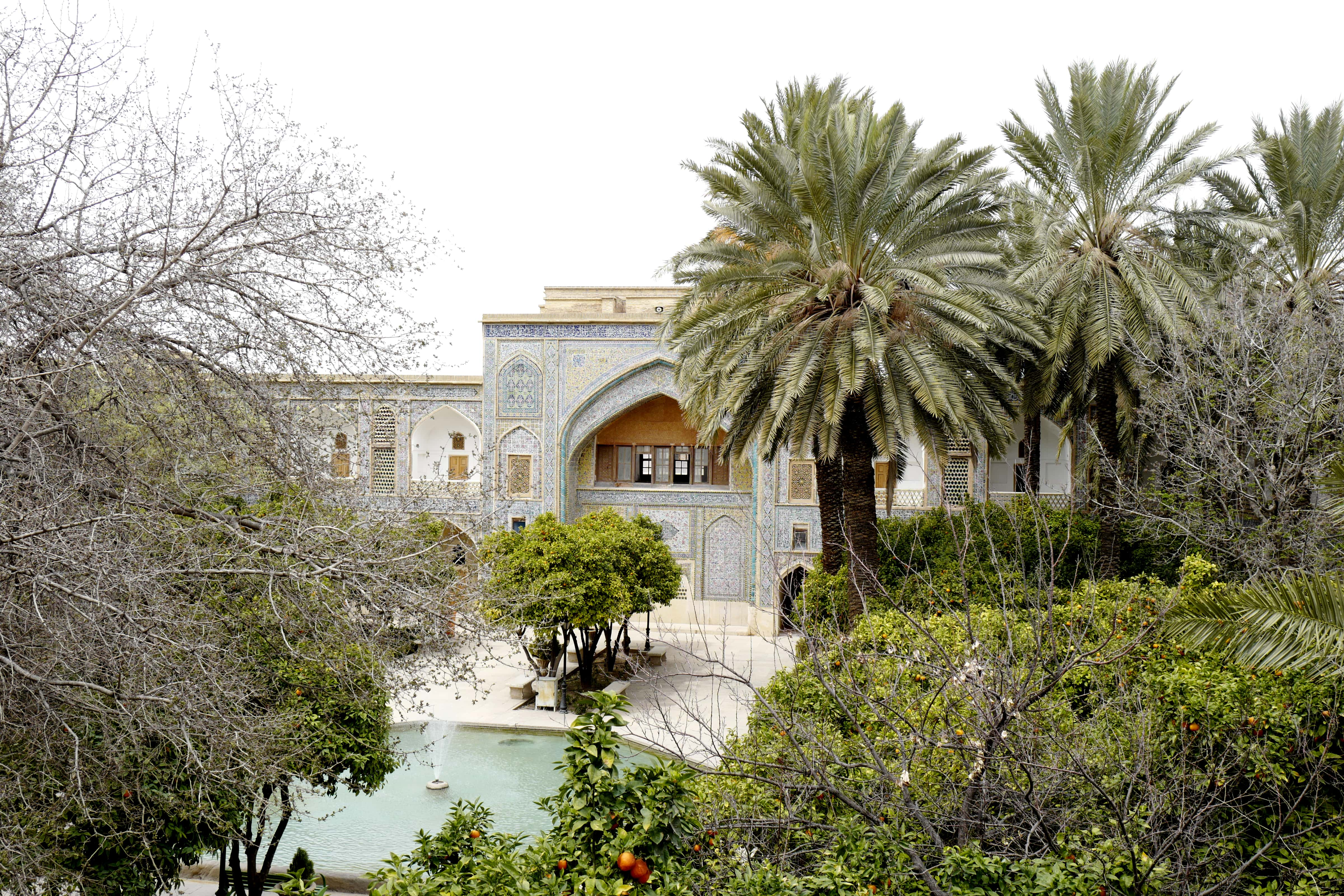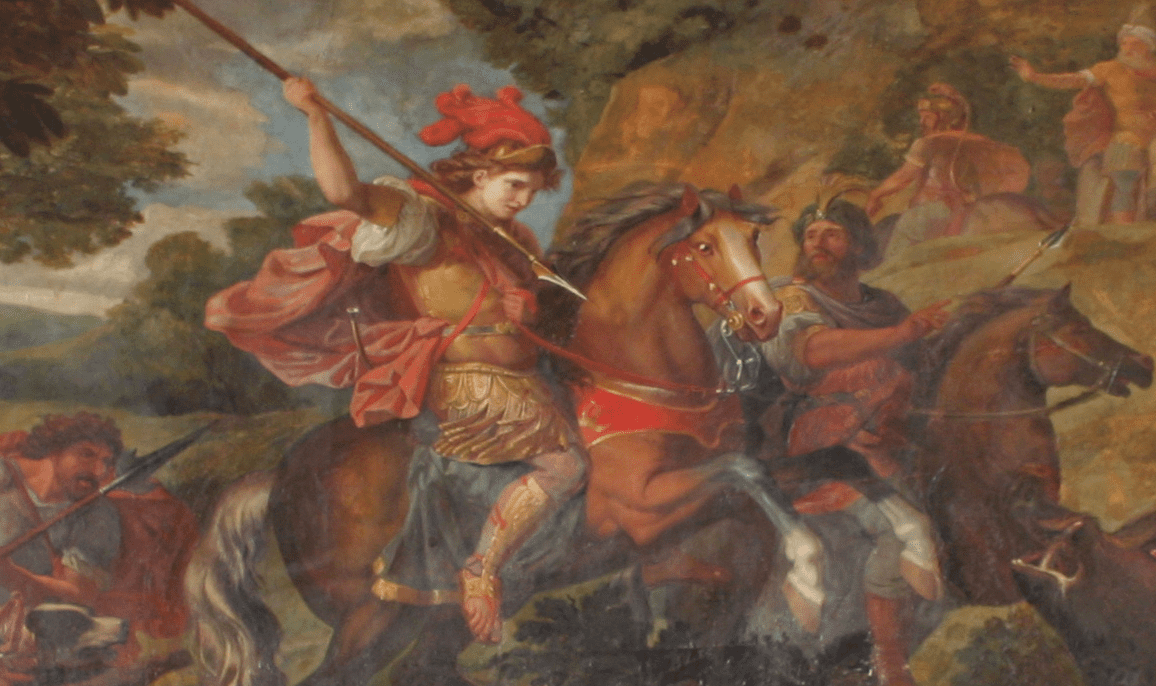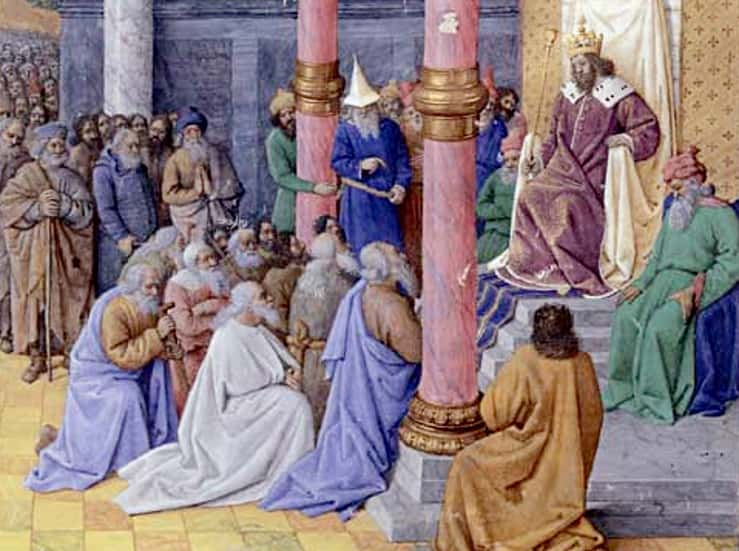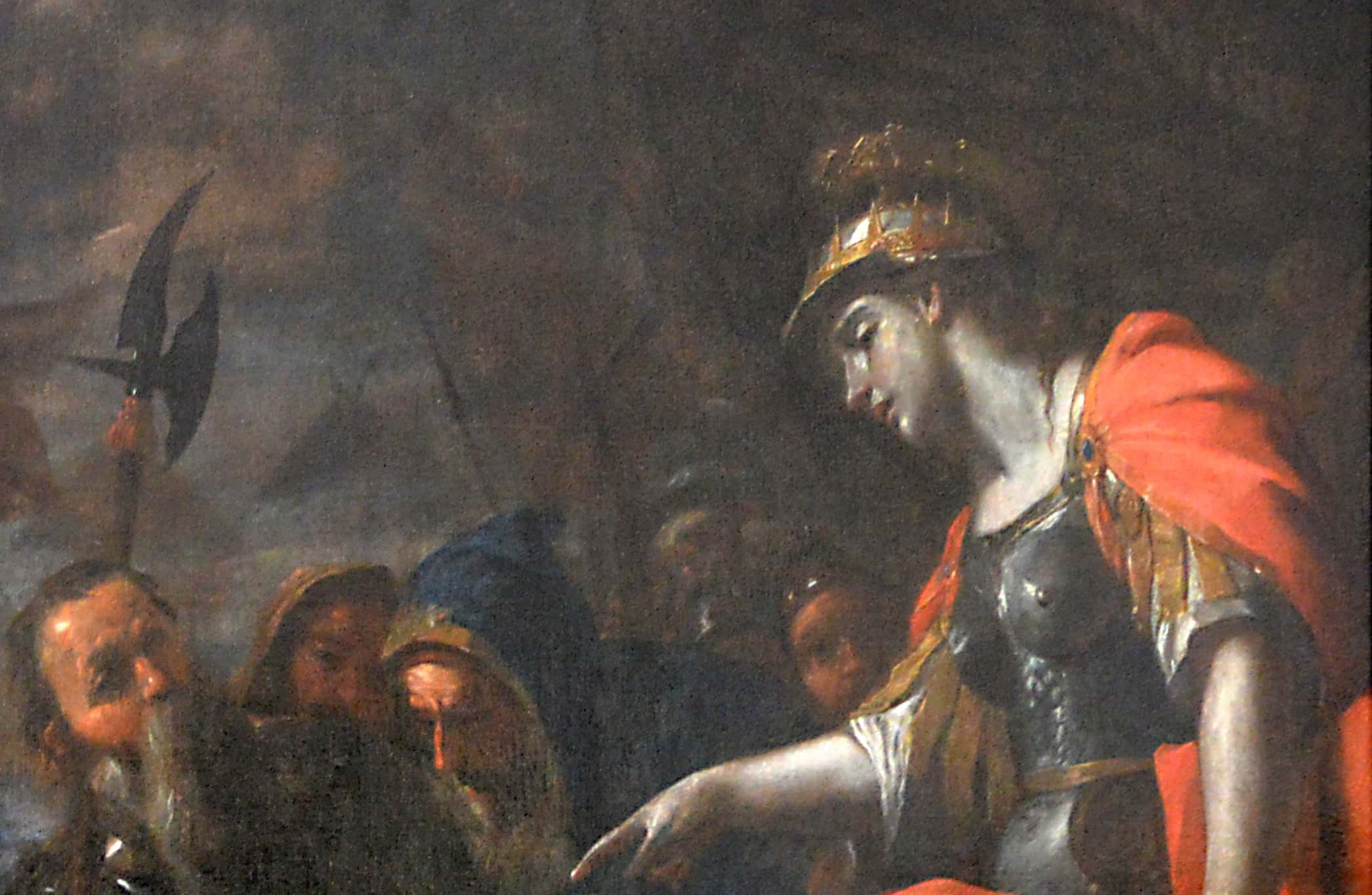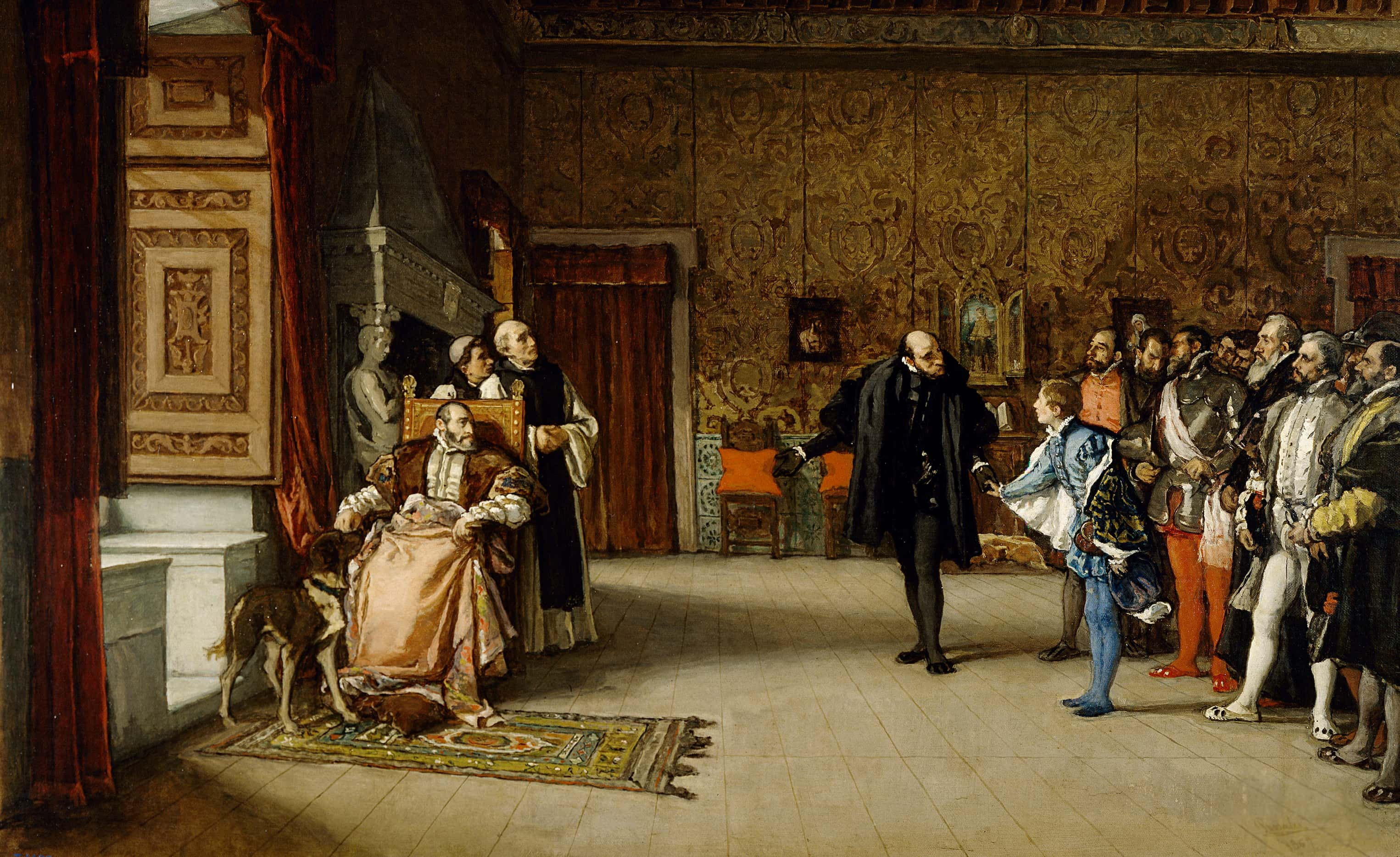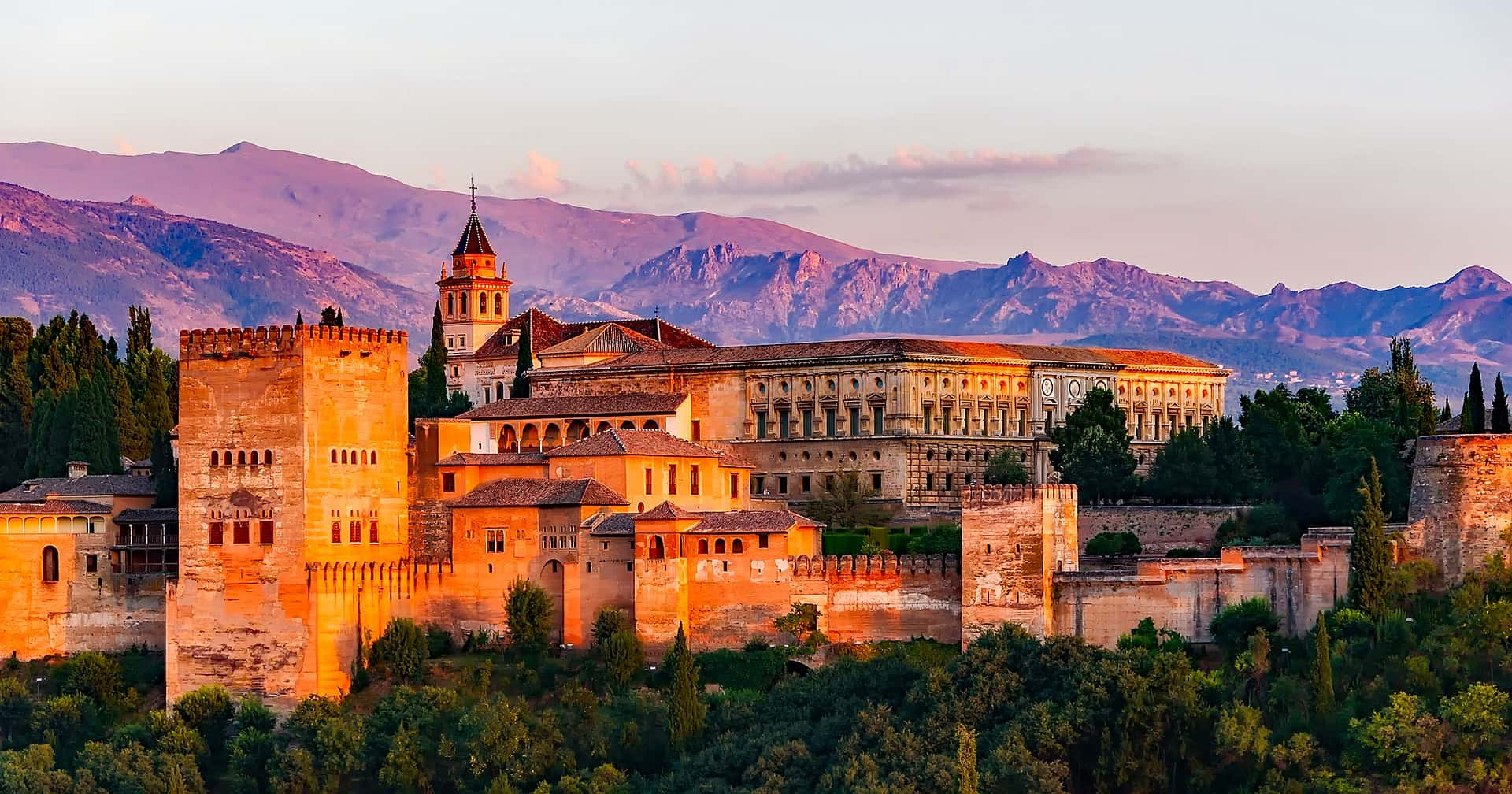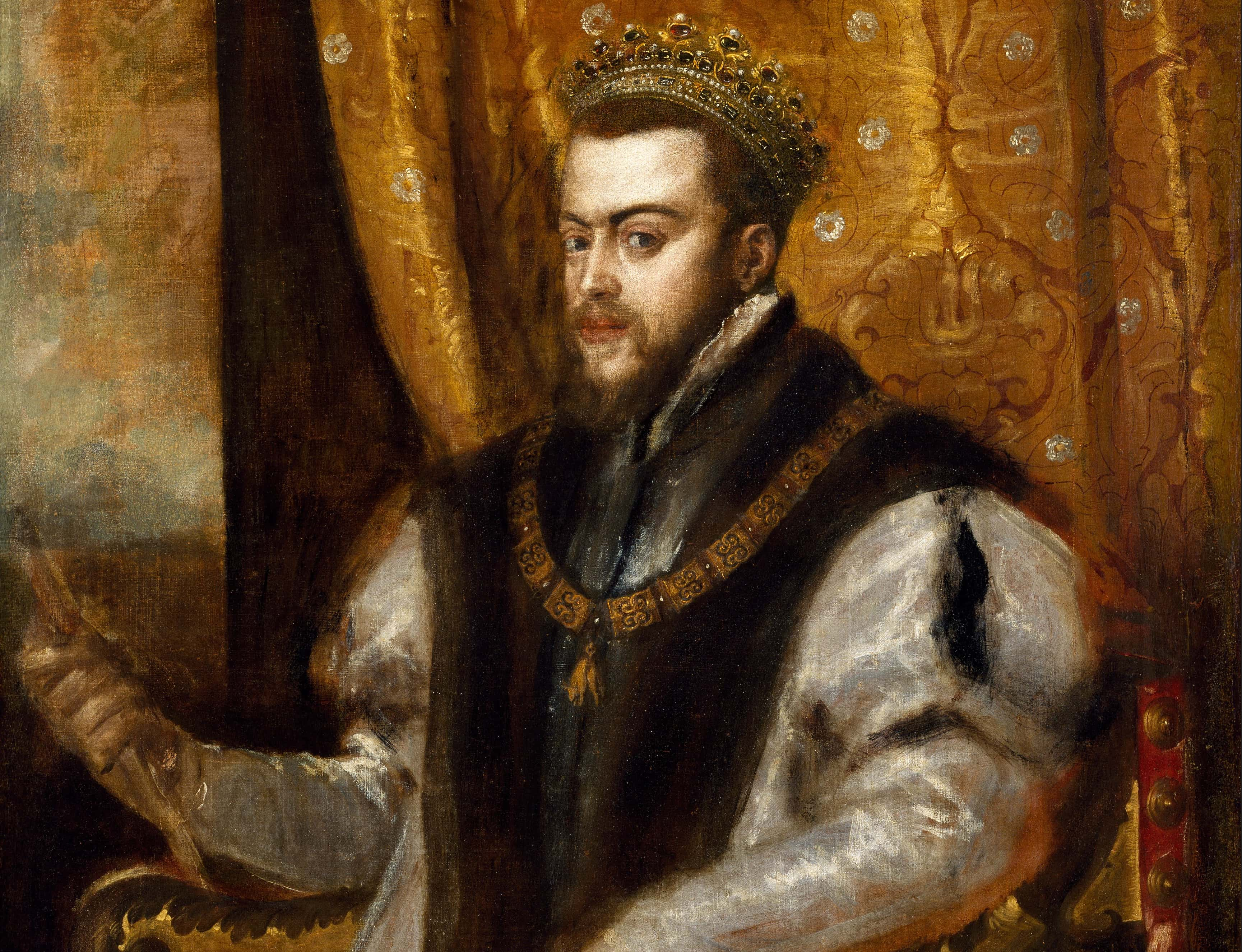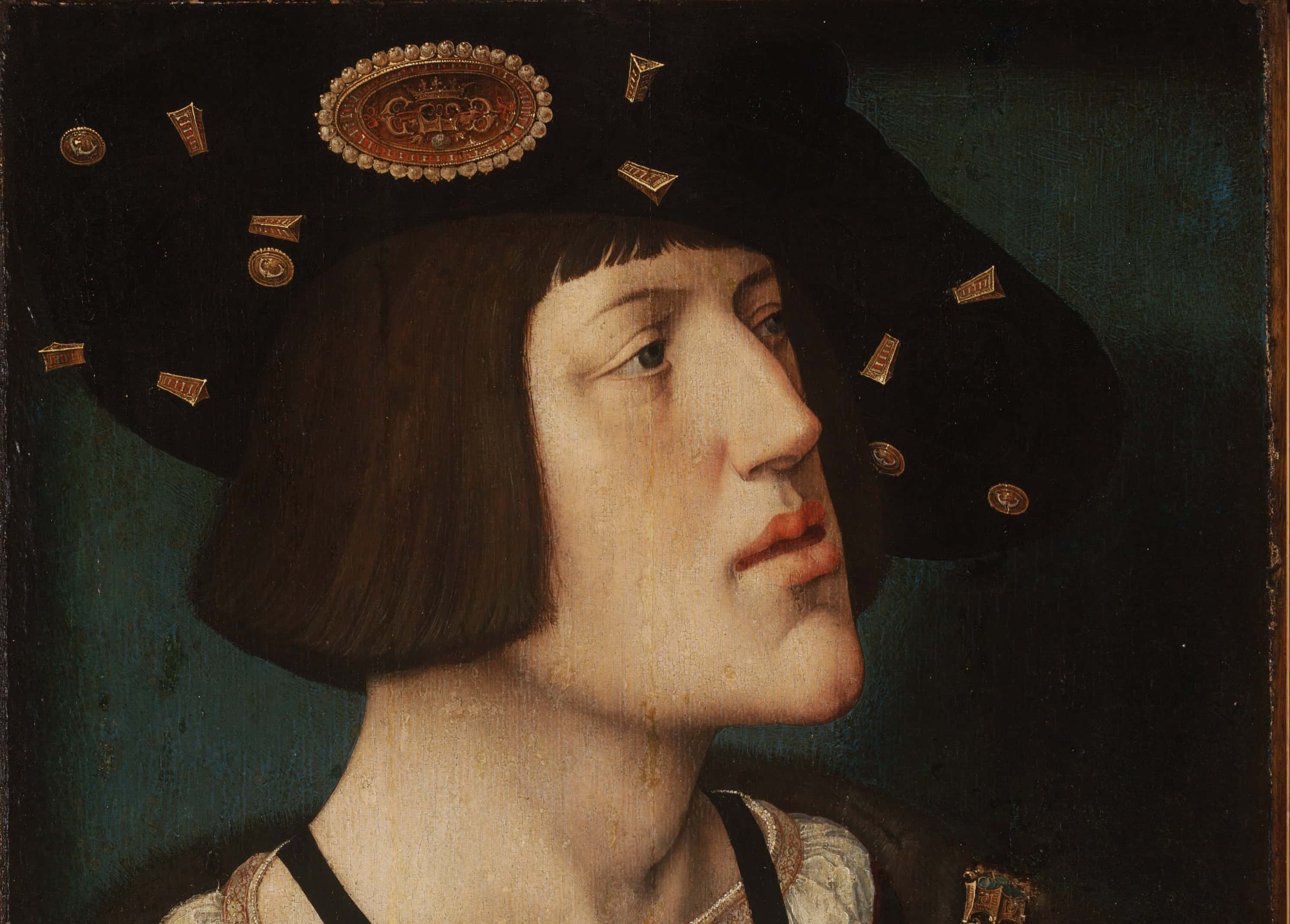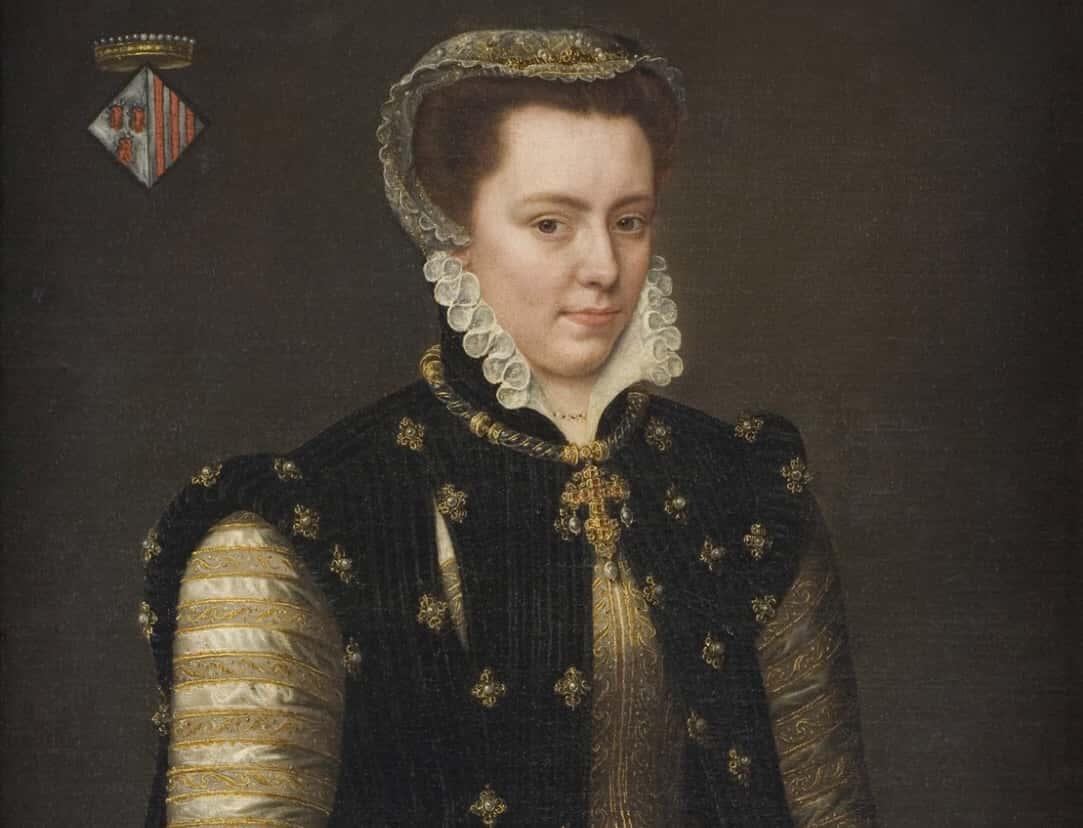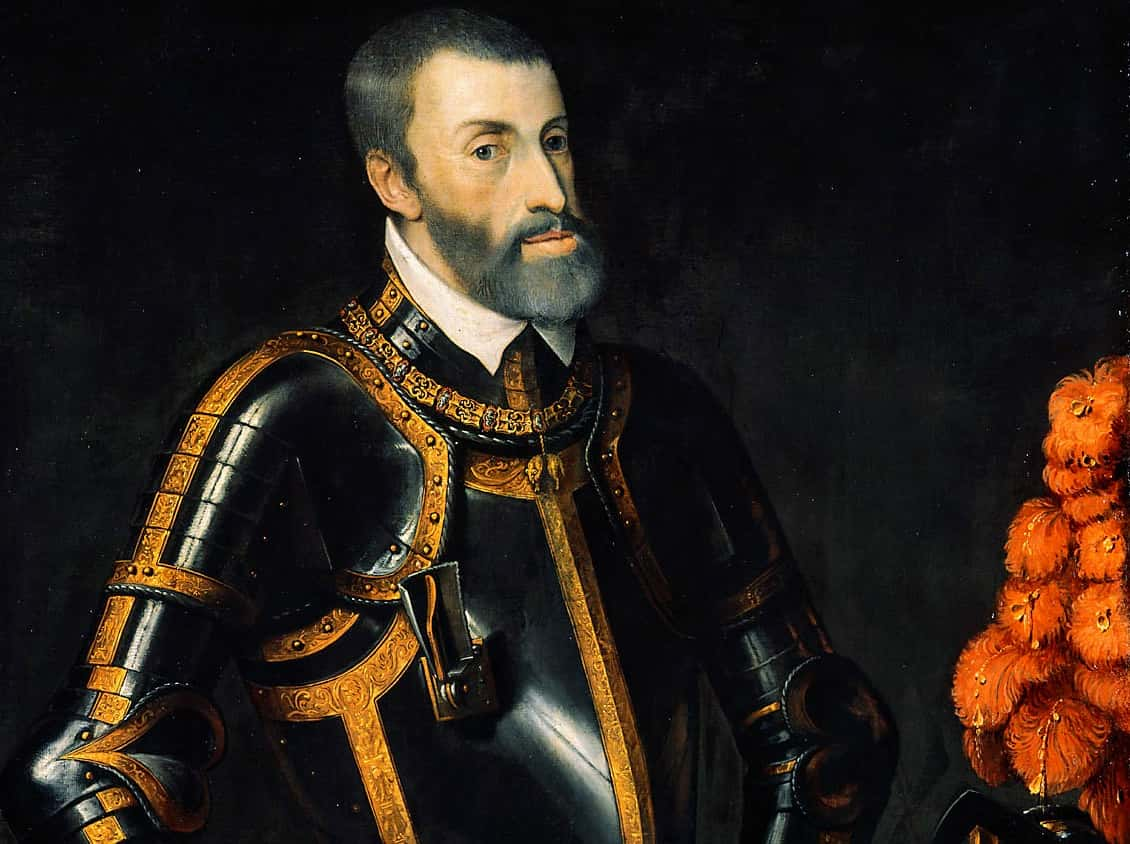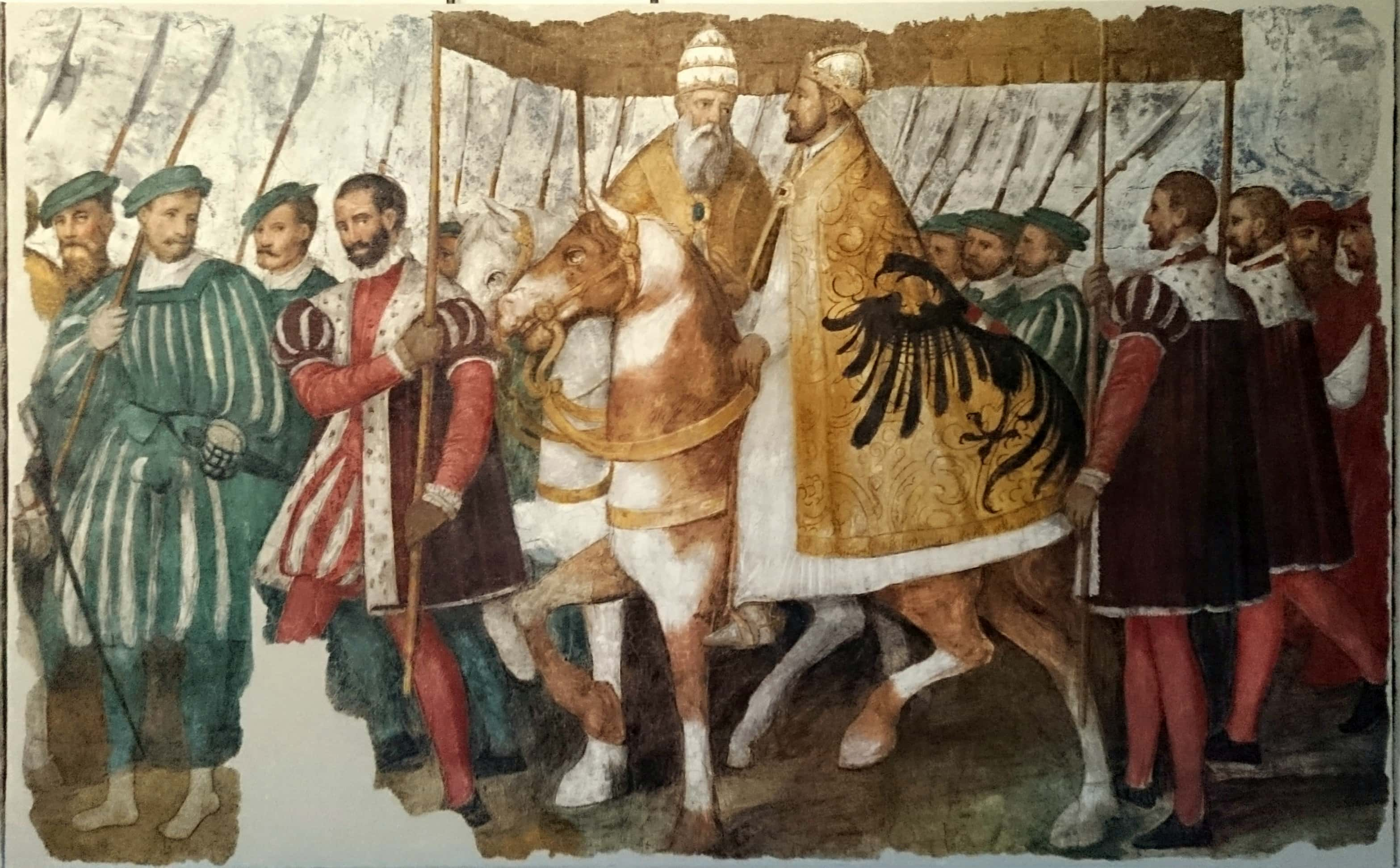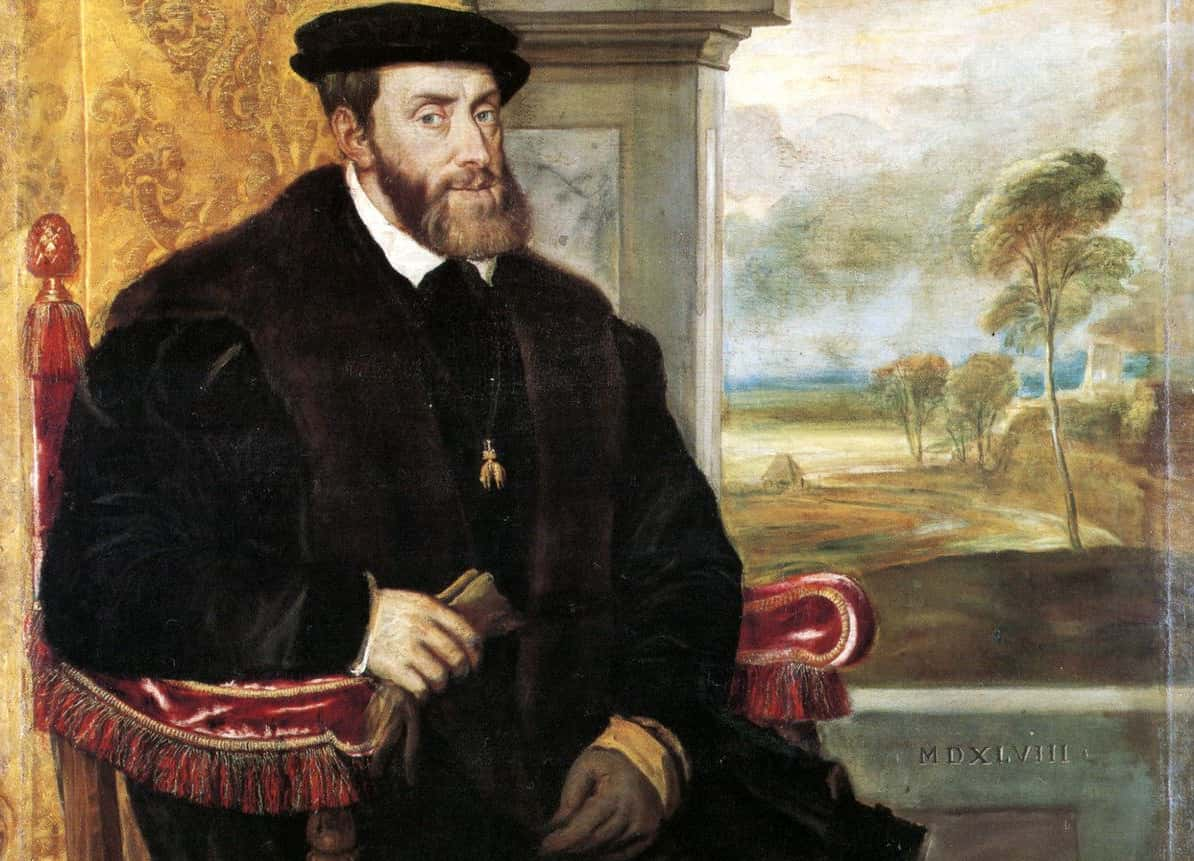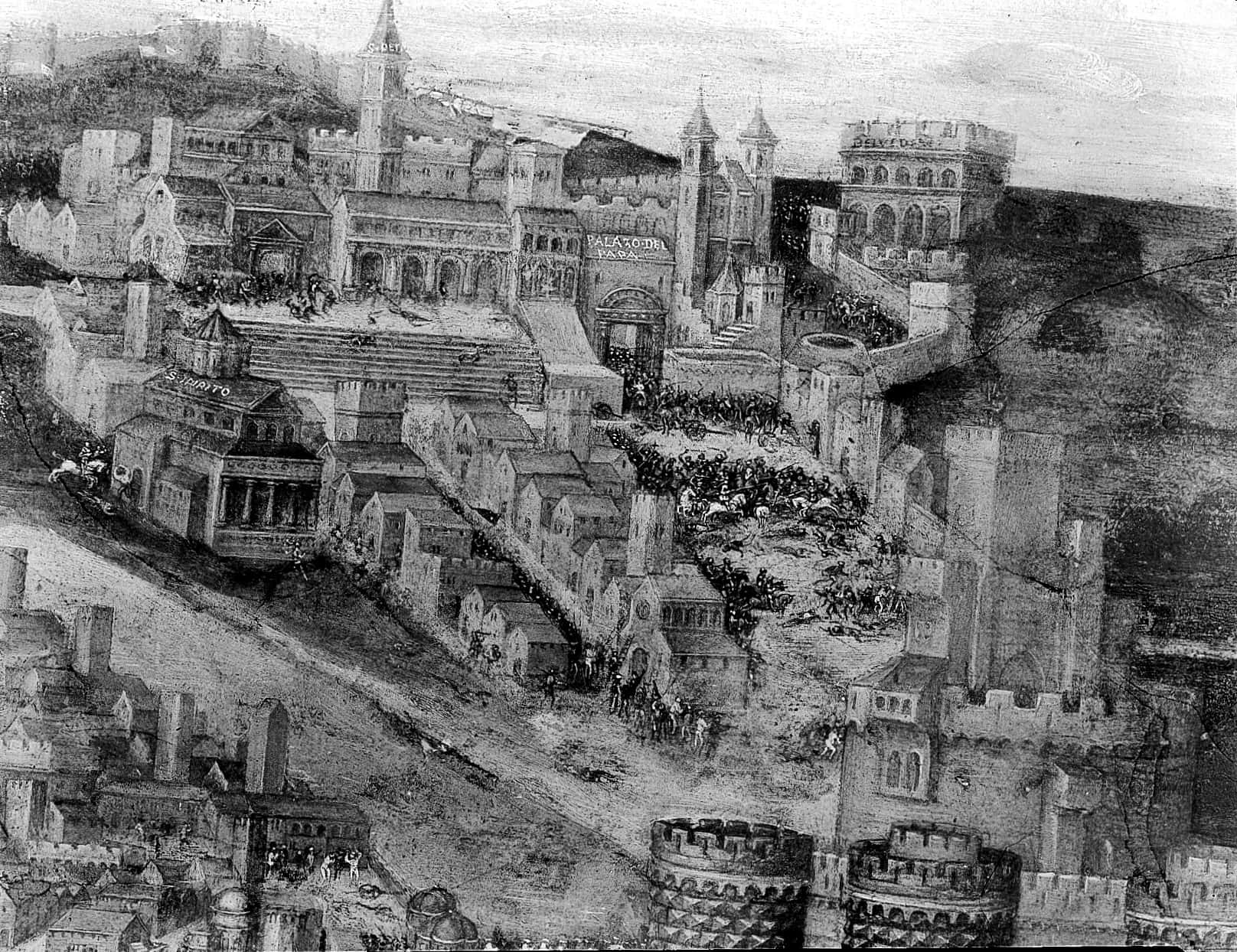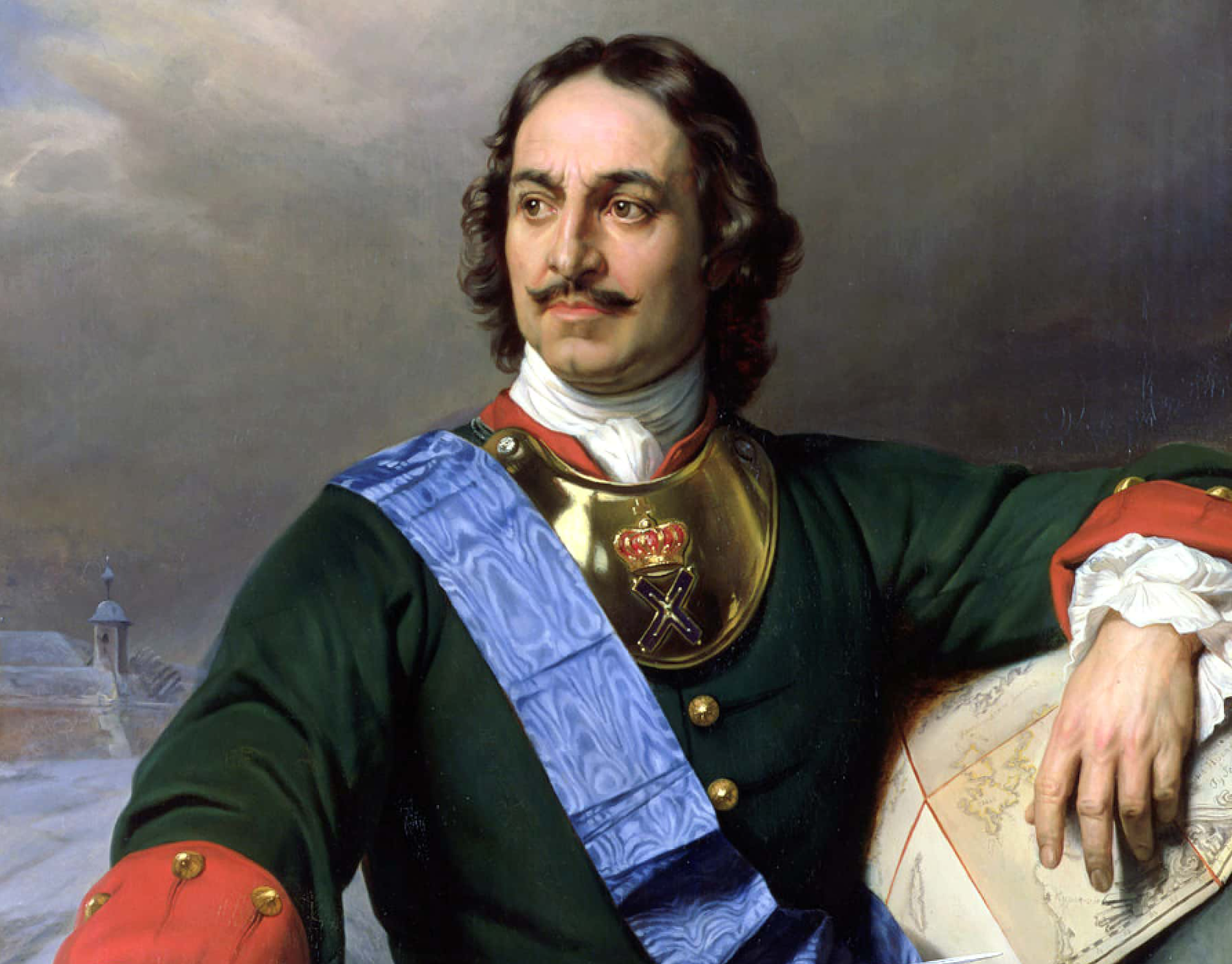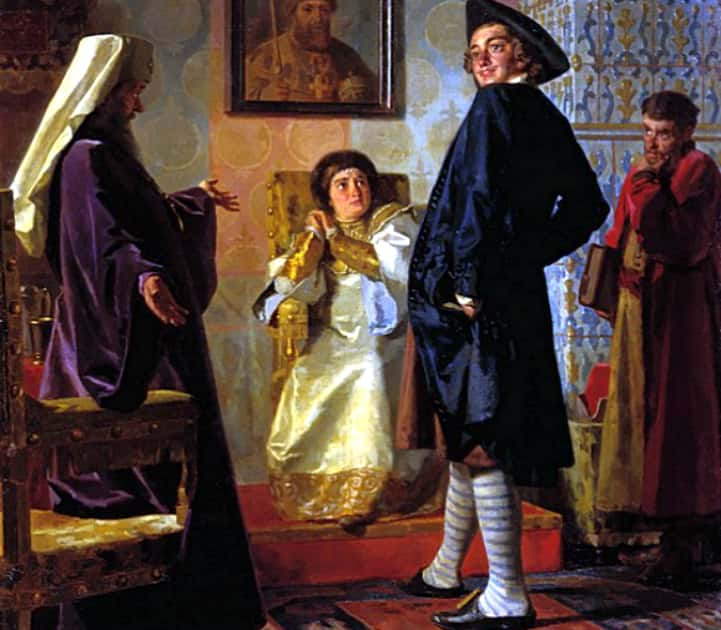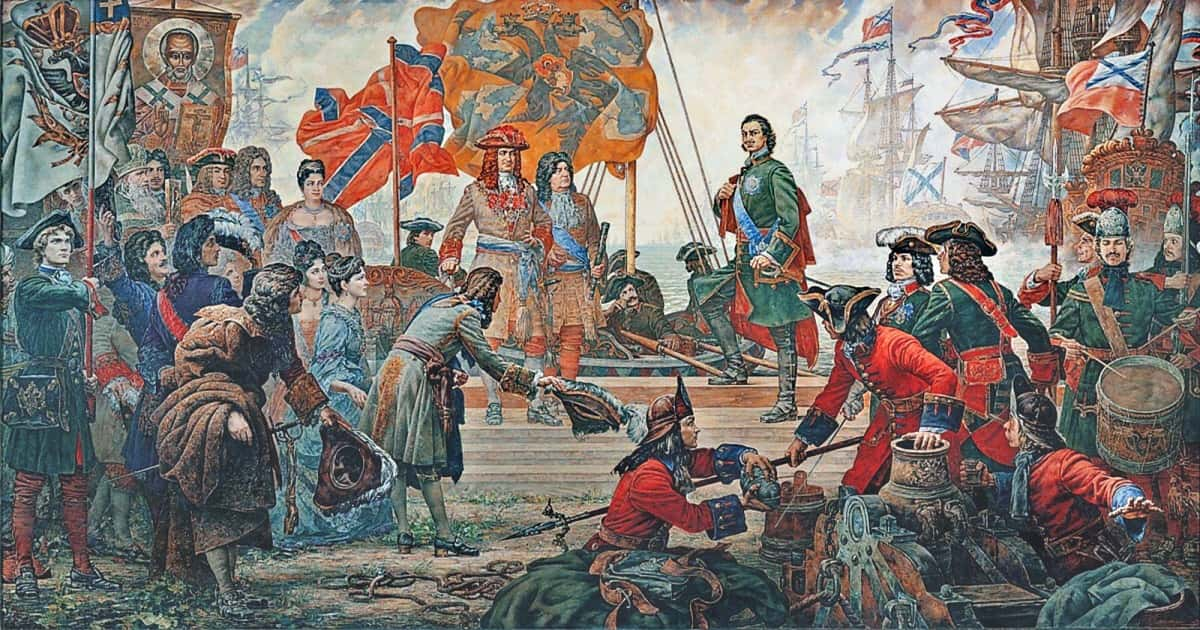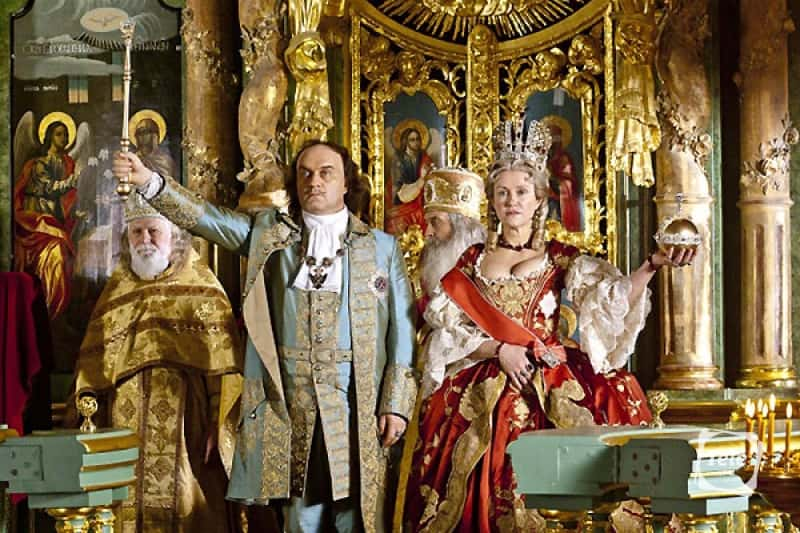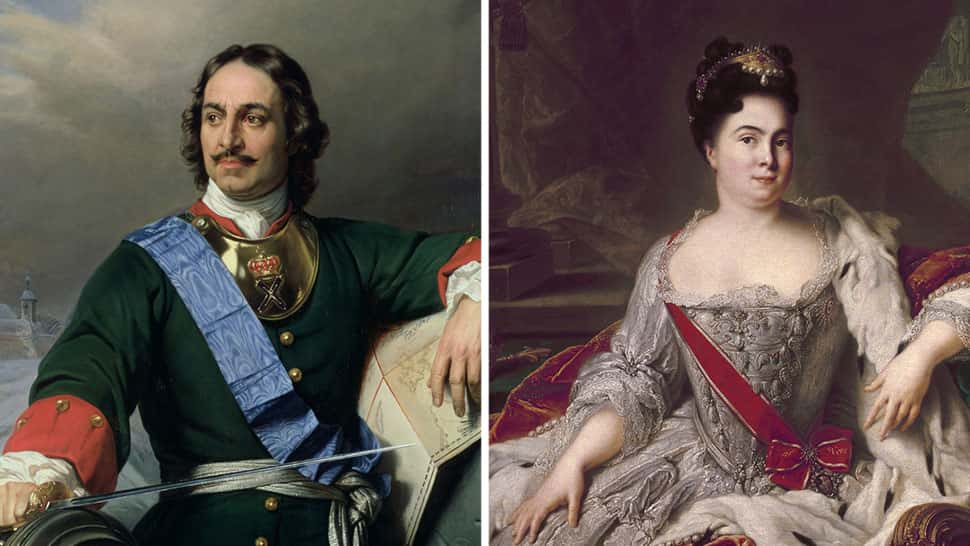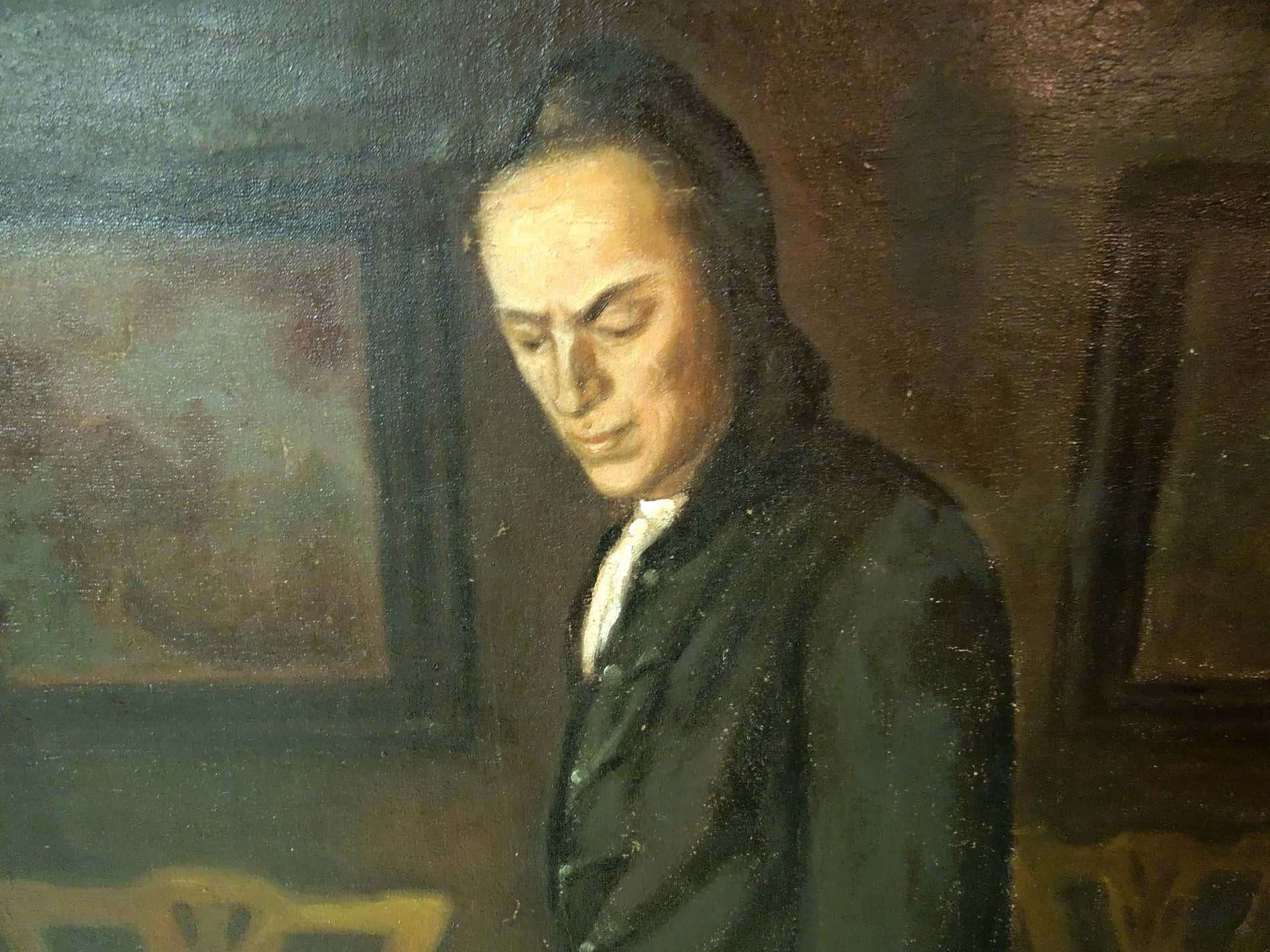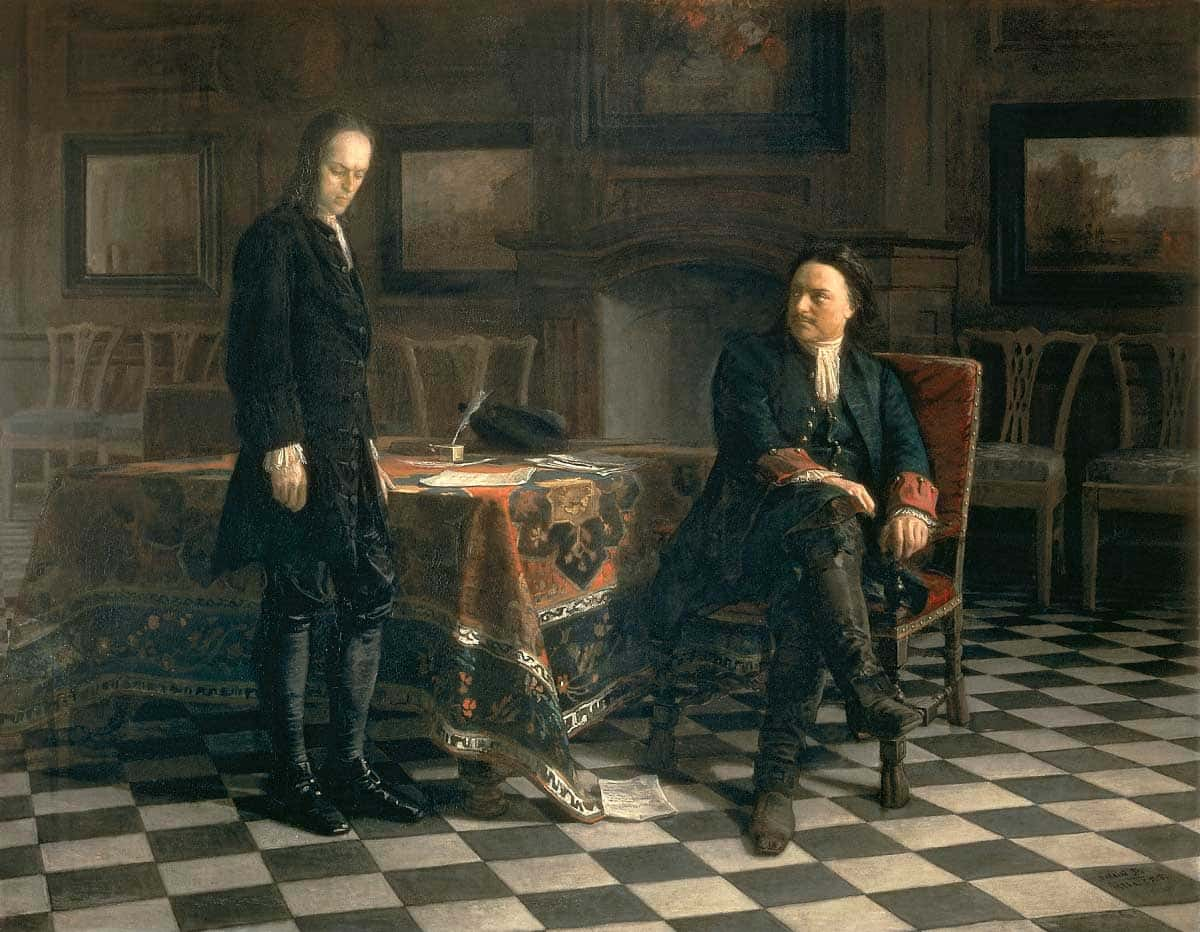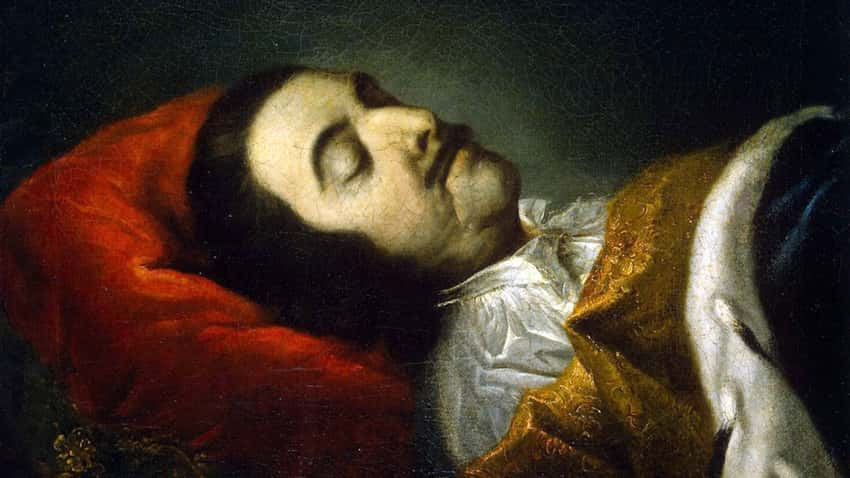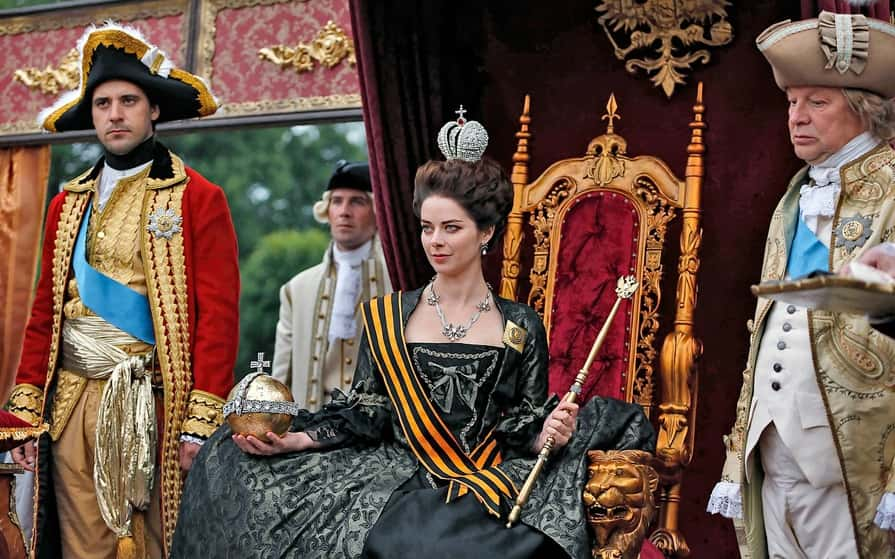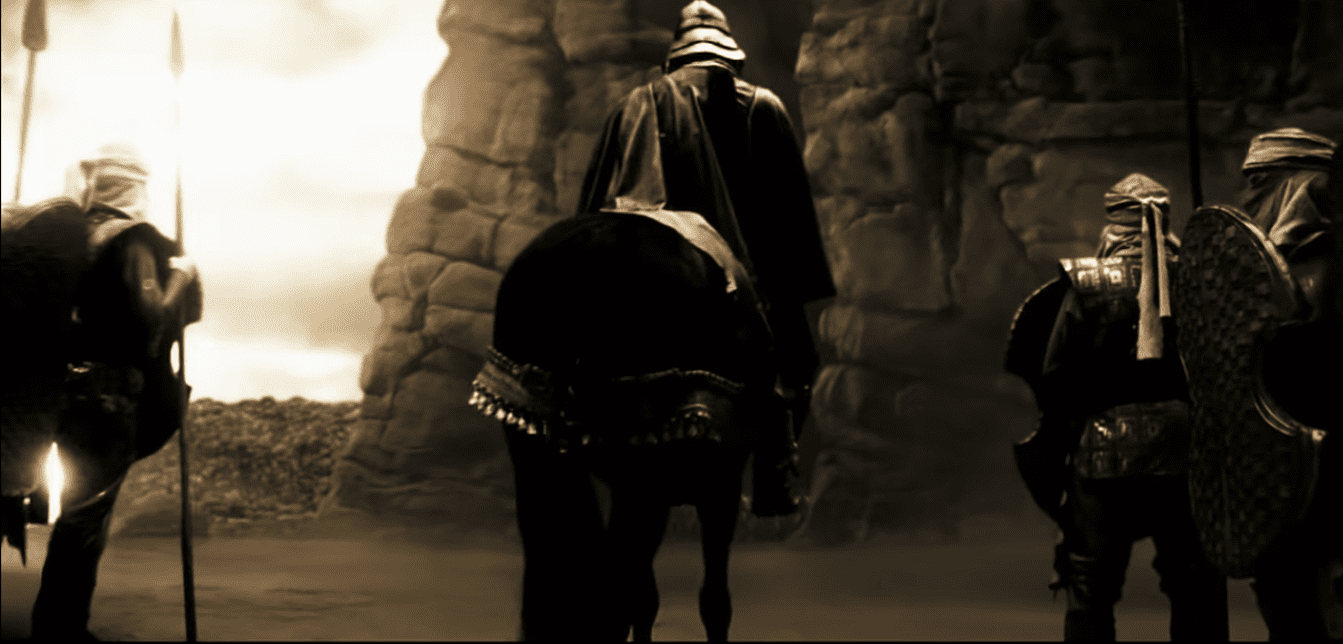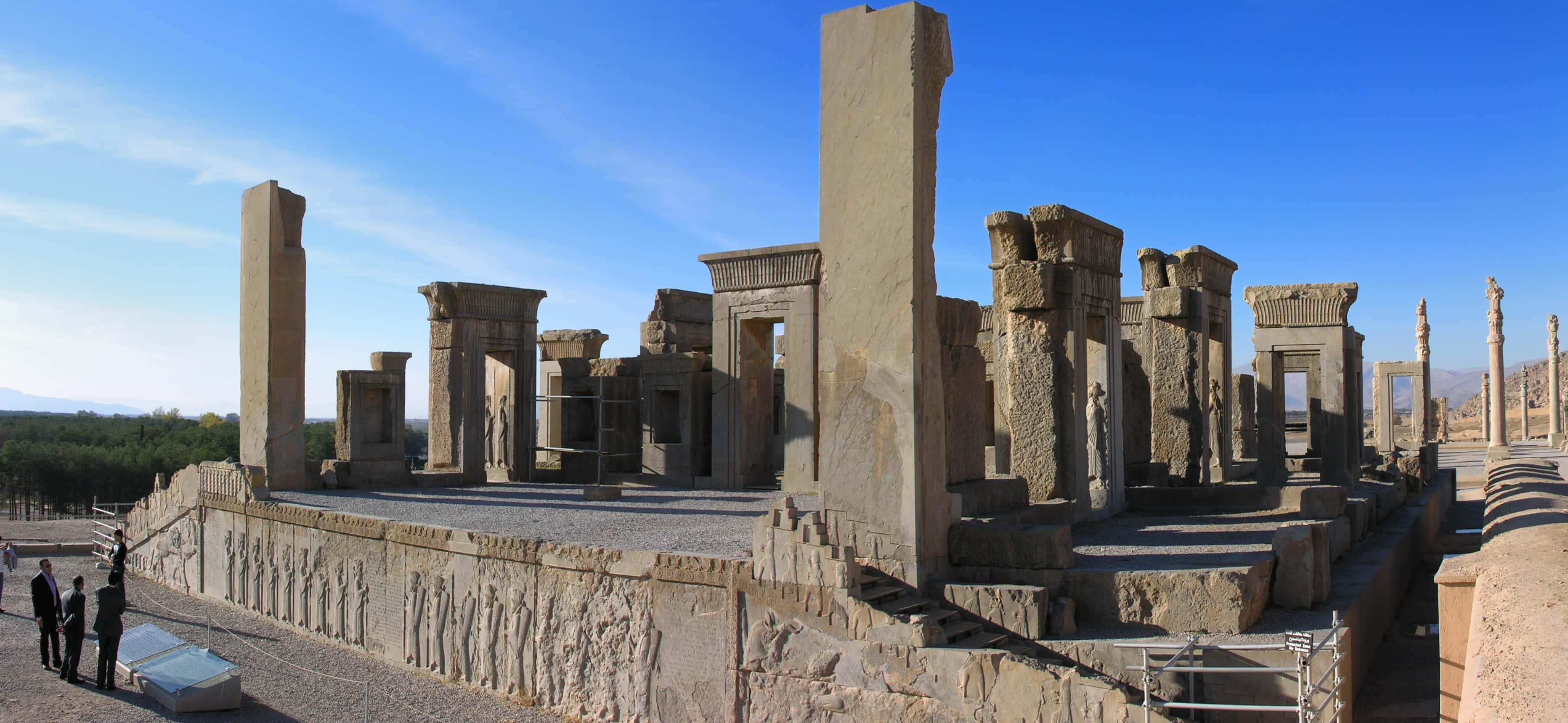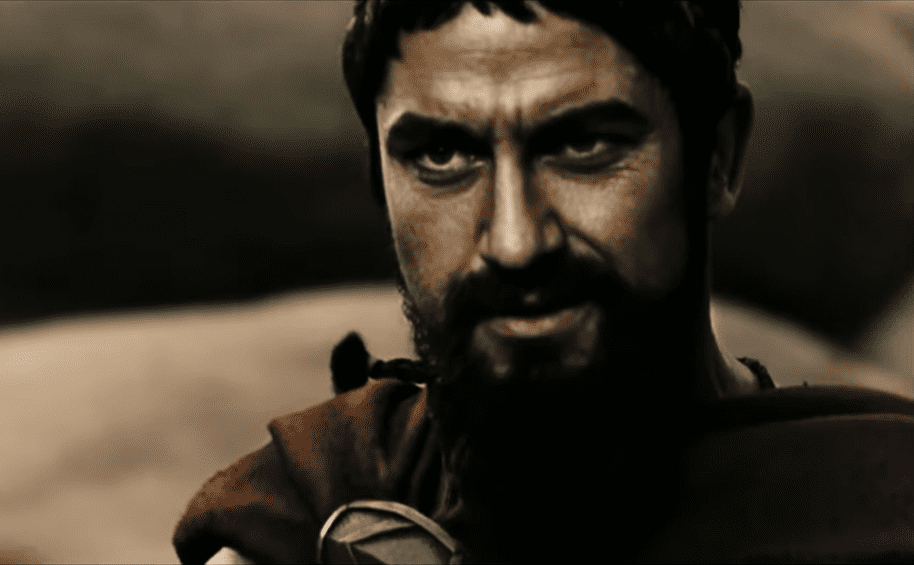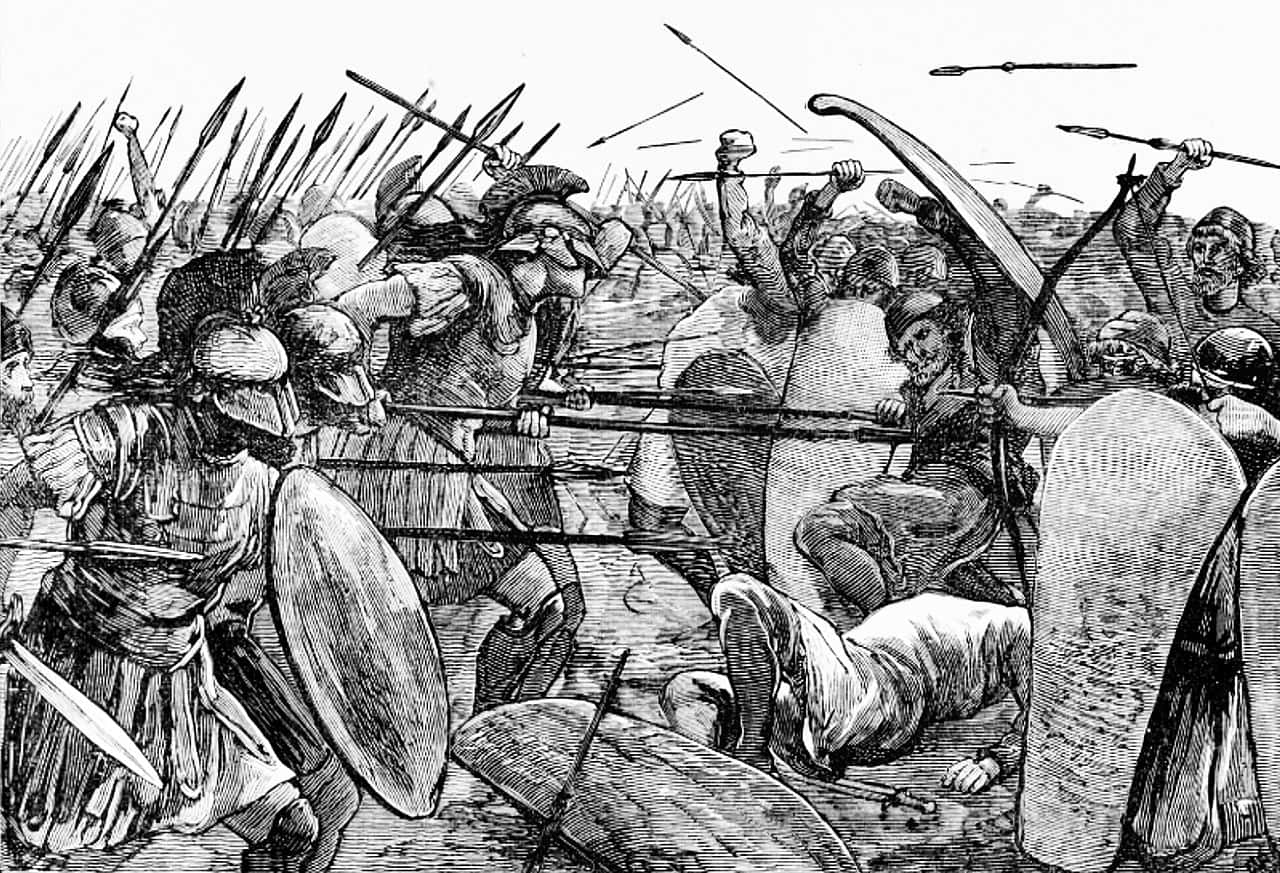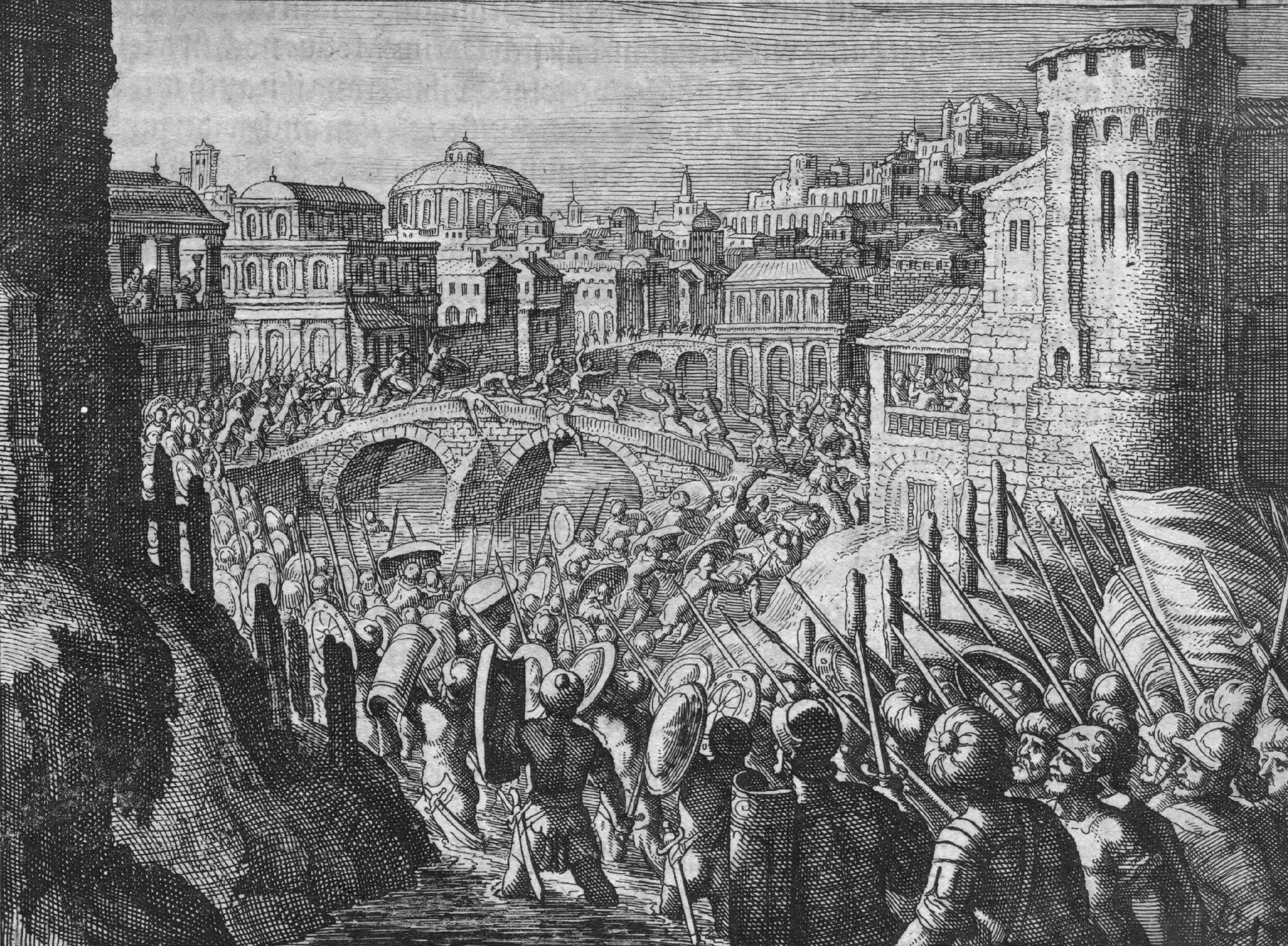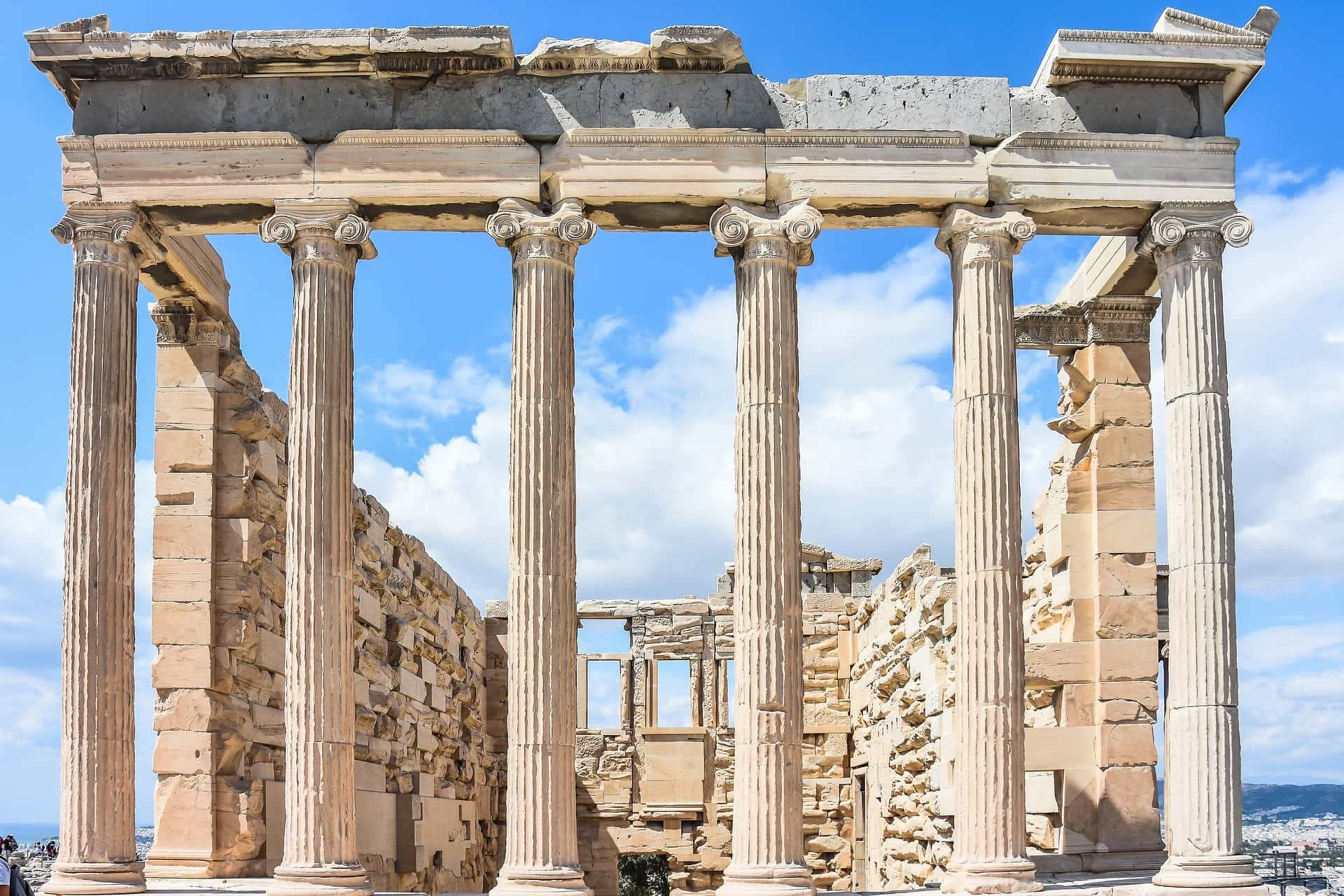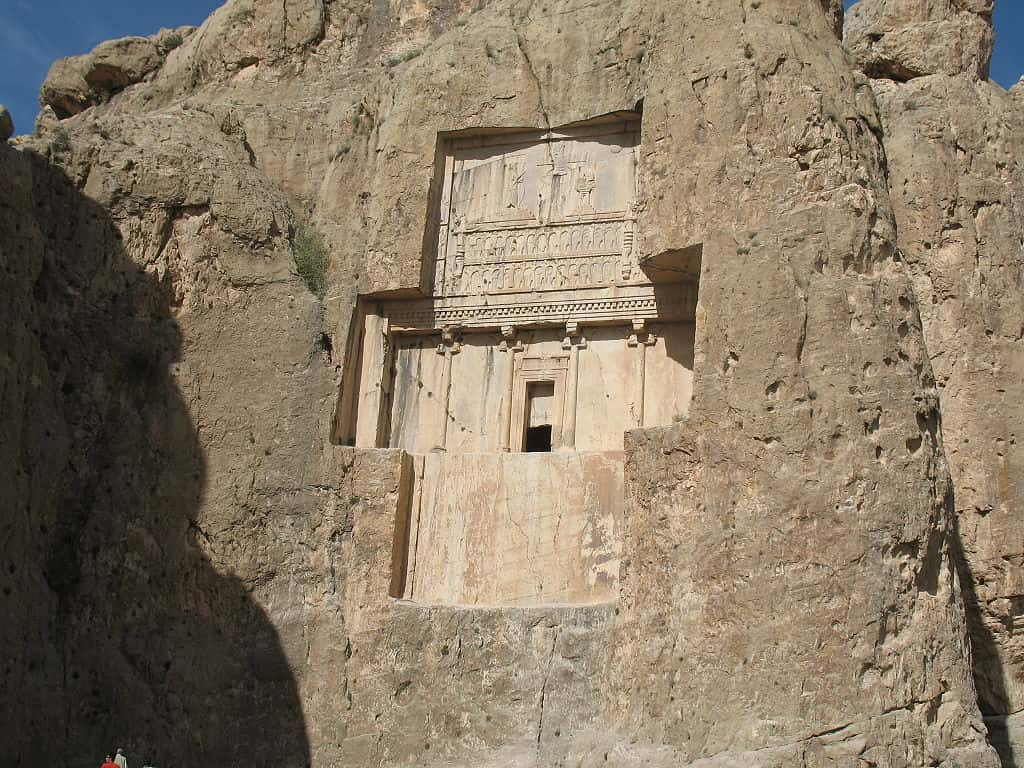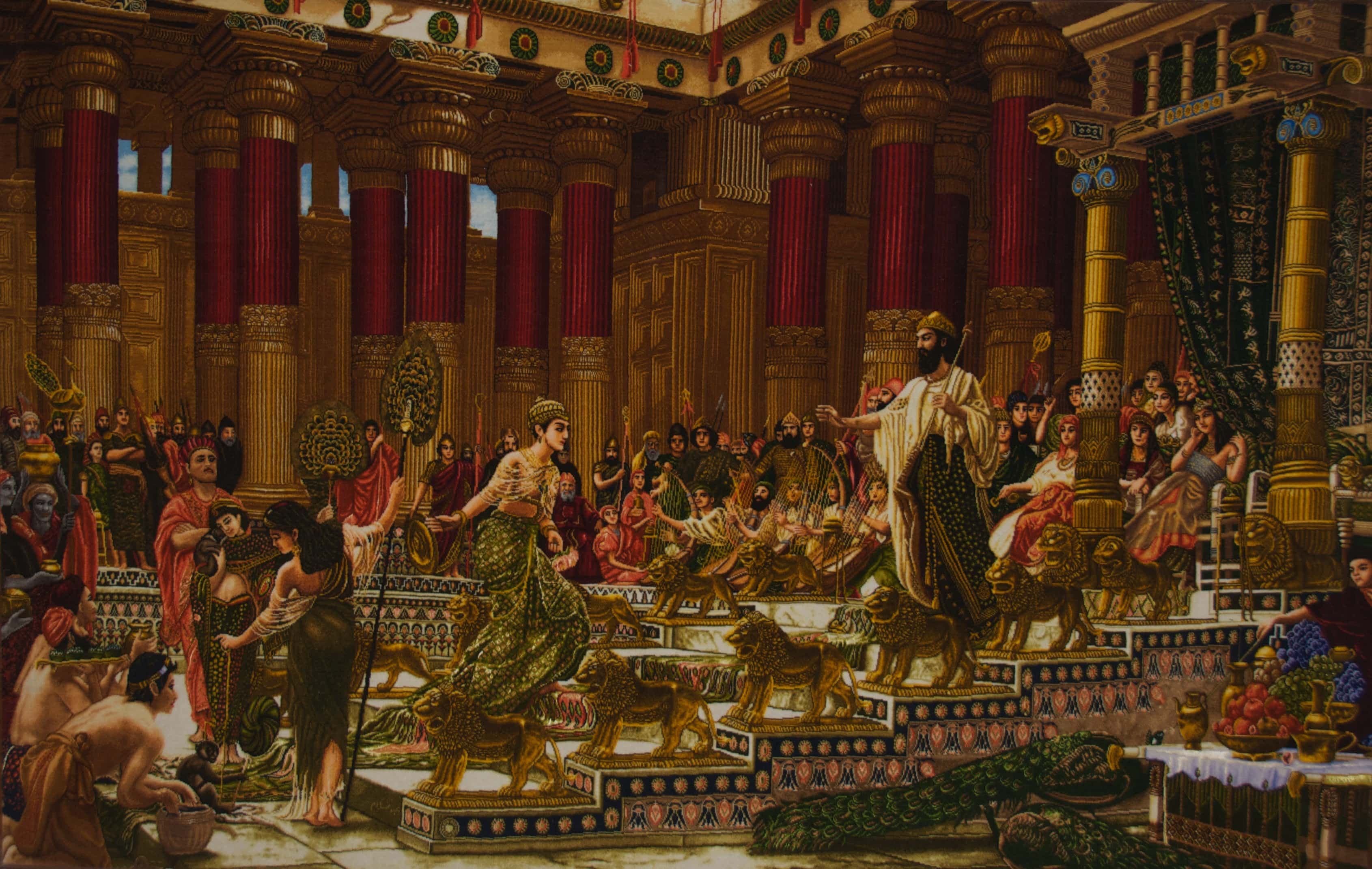Whether through inheritance, betrayal, or sheer force of will, these men have risen to the heights of power throughout history—but not all emperors are created equal. Some were brilliant and forceful, while others were cruel and insane, but all of them wielded immense influence and shaped the world as we know it. Read on to discover more about history's greatest emperors.
1. Misinformed
Perhaps the best known “fact” about Napoleon Bonaparte was that he was short—but it’s likely not a fact at all. Napoleon was reported to stand 5’2” at the time of his passing (the average height of a French male at that time), but the yardstick used to measure was in French units, which were smaller than today's units. It’s likely he was as tall as 5’6” or 5’7”, which would actually make him above average height.

2. Le Petit Caporal
Napoleon was known to surround himself with tall bodyguards, and was affectionately known as le petit caporal (the little corporal). However, this nickname didn’t refer to his height, but was intended to reflect his affection and camaraderie with his subordinates.
3. In Comparison
At his likely height of 5’6”, Napoleon would have been taller than both Lenin and Stalin (both 5’5”), and Nicolas Sarkozy (also 5’5”). He’d be the same height as Winston Churchill and Benito Mussolini (both 5’6”) and only one inch shorter than Vladimir Putin (5’7”).
4. Rejected
Napoleon is famous as a dictator who sought to conquer Europe, including Russia. But, as it turns out, Russia could maybe have avoided the battle: In 1789, a young French soldier applied to the Russian army and navy, but was rejected both times. That young man? You got it: Napoleon Bonaparte.
5. Quotable Quotes
Napoleon had a reputation as a wit and a wordsmith, as well as a army man. Supposedly, when Napoleon was asked by Anne Jean Marie René Savary, a French general and diplomat, whether he wanted to be God, he thought it over and replied, “No, it’s a strait-end job".
6. Now That’s Payback!
After defeating Napoleon at Waterloo, the Duke of Wellington remained obsessed with his rival. The Duke seduced not one, but two of Napoleon’s former mistresses, one of whom was later quoted as saying she preferred the Duke in bed. The Duke also befriended Pauline Borghese, Napoleon’s sister, for whom he bought a house, and who gave him a saucy painting of herself with her nipples clearly showing, which he hung on his bedroom wall. In addition, Wellington collected several of Napoleon’s swords, paintings of Napoleon, and even hired his cook!
7. Bon Mot
In 1807, Napoleon’s army was advancing on Russian territory and Napoleon met with Russian Tsar Alexander I to discuss a peace treaty. After meeting (and after bonding over their mutual dislike of the English), Napoleon was charmed by the Tsar and said he was “especially handsome, like a hero with all the graces of an amiable Parisian". He wrote to his wife Josephine, “If [Alexander] was a woman I'd make him my mistress".
8. Soft Spot
Napoleon’s army campaign across Europe cost an untold number of Europeans their lives, and disrupted countless others. Still, the Emperor could not be described as heartless. According to his own account, he was once moved to tears by finding the dog of a passed soldier crouched on a battlefield, trying to revive its passed master.
9. Useful Invention
During his army’s excursions to far-flung places like Russia and Egypt, Napoleon offered a reward to someone who could make food last longer. In 1809, Nicolas Appert discovered that food cooked inside a sealed glass jar didn’t spoil unless the jar leaked—he’d invented canning! Appert was paid $12,000 francs in reward by the French government. At the time, the reason for the lack of spoilage was unknown—it would be another 50 years before Louis Pasteur explained the role of microbes in food preservation.
 youtube
youtube

Sign up to our newsletter.
History’s most fascinating stories and darkest secrets, delivered to your inbox daily. Making distraction rewarding since 2017.
10. Foreign Accent
Napoleon achieved impressive feats for a man with humble beginnings. He grew up in French-occupied Corsica, and Corsican and Italian were his first and second languages. While he did learn to speak French fluently, he spoke with a distinct Corsican accent and never learned to spell properly in French.
11. Rule of the Road
Ever wonder why we drive on the right hand of the road, but the British drive on the left? You have Napoleon to thank! Right hand-traffic was thought to deter fighting while on horseback, as most people are right-handed. Mandatory right-hand traffic was enforced throughout Europe (and all French-dominated territories) after the Napoleonic wars, but since Napoleon never conquered Britain, left-hand driving would remain there.
12. Royal Families
In 1810, Napoleon divorced his wife of 14 years, Josephine, so that he might produce an heir with another wife. He never did, and Josephine's son from a previous marriage became Napoleon II. Today, Josephine is the ancestor by blood of five of the current royal houses of Europe. Napoleon is the ancestor of none.
 pinterest
pinterest
13. Don’t Play Poker With Napoleon
Napoleon was known for prioritizing that which needed to be done, and for his need to win at everything he attempted, any way he could. To that end, he was also known for cheating at cards!
14. Realized This Centuries Ago
Napoleon Bonaparte thought aggression should be abolished because the information obtained from it is worthless. He wrote to Louis Alexandre Berthier in 1816: “The barbarous custom of having men beaten who are suspected of having important secrets to reveal must be abolished. It has always been recognized that this way of interrogating men, by putting them to pain, produces nothing worthwhile.
The poor wretches say anything that comes into their mind and what they think the interrogator wishes to know".
15. Napoleon Bunny-Part
Napoleon managed to conquer a large part of Europe for the French Empire, but he didn’t have any control over the rabbit kingdom. In 1807, after signing the Peace Treaty of Tilsit, he staged a rabbit hunt with the help of his friend, Marshal Alexandre Berthier, to entertain and impress the Russians. Berthier acquired domesticated rabbits, thinking that would ensure an easy hunt—he was very wrong.
However, when the friendly rabbits were released, they mistook Napoleon for their caretaker bringing them food. Napoleon was swarmed by hundreds of rabbits, and fled in his carriage, flinging bunnies out the window as he went.
16. Place of Honor
Being the ruler of Europe comes with certain perks, including some fancy decorations for your home. While Napoleon was in power, the Mona Lisa was hung in his bedroom.
17. Go Ahead, Shoot Your Emperor
Napoleon was in total exile when he met enemy army, yet he convinced them to fight for him with just six words. Even after his defeat, abdication, and exile, would-be emperor Napoleon never gave up his goal of gaining control of France and eventually all of Europe. Exiled to Elba after his defeat at Leipzig, Napoleon escaped the island and landed on the French mainland.
There he met a part who had been sent to prevent him from reaching Paris. Napoleon looked at the people and declared “Here I am. End your Emperor, if you wish". Impressed with his audacity, the army joined Napoleon on his march to Paris and helped him reclaim the throne of France.
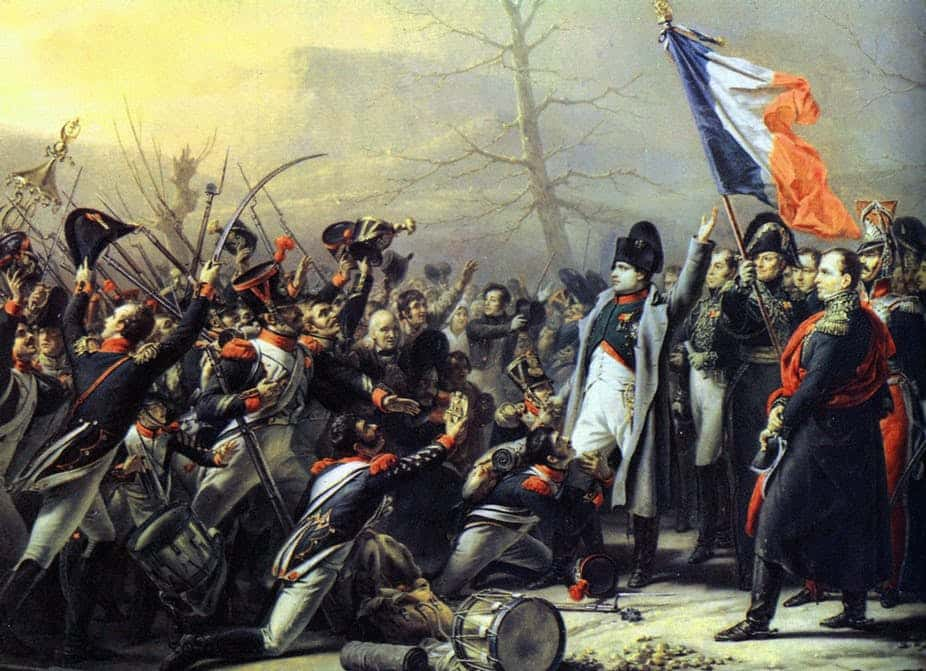
18. Arsenic and Old Conspiracy Theories
When Napoleon was gone, the official verdict was stomach cancer, but his body was eerily well-preserved after his passing, leading to whispers of arsenic intoxication; preservation of remains is one of the symptoms of the lethal substance. In 1961, researchers did indeed find a high level of arsenic in his hair, but an even more detailed 2008 study found that while Napoleon had insanely high levels of arsenic in his tresses, these levels didn't increase throughout his life.
Most likely, Napoleon (along with wife Josephine) had just been exposed to lead-based paints and other products that were popular at the time, and this wasn't what ended him.
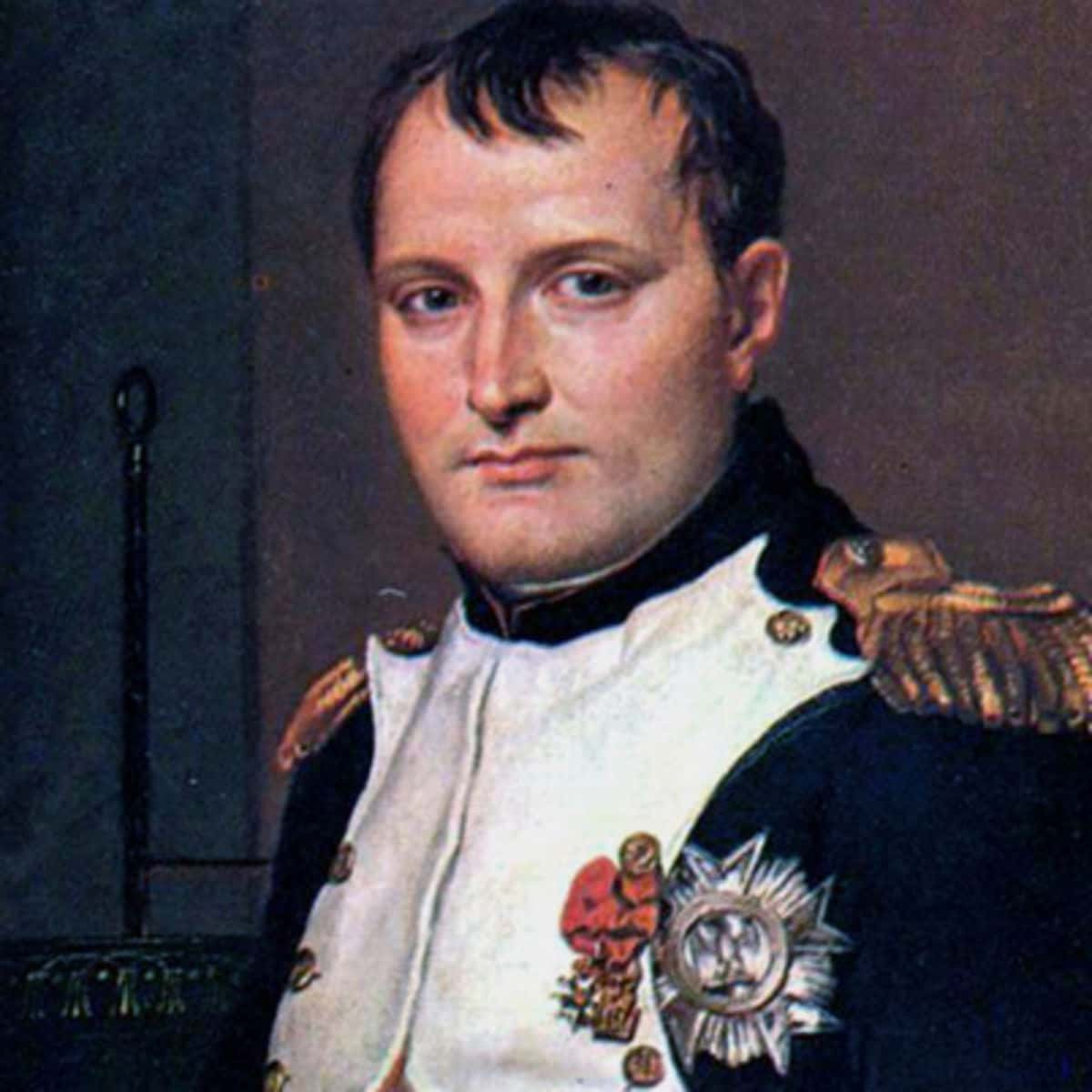 Minor Metals Trade Association
Minor Metals Trade Association
19. Dis-Membered
After Napoleon’s end, his doctor famously severed his weenie and gave it to a priest in Corsica, whereupon it was stored, but not preserved. Over time, the body part has deteriorated, and has been compared to “a piece of leather, a shriveled eel and to beef jerky,” and, when it was displayed at a museum in New York, was called “maltreated strip of buckskin shoelace” by TIME Magazine.
20. Undignified Resting Place
In 1977, Napoleon’s weenie was bought at auction by a urologist from New Jersey. He stored the item, for which he had paid $3000, under his bed until his passing 30 years later. His daughter inherited the body part, and has been offered $100,000 for it, though she still possesses it to this day.
21. Long May He Reign
Not only was Augustus the first Emperor of Rome, he also ruled Rome longer than anyone after him. His reign of 41 years was almost twice as long as the first runner-up—in case you’re curious, that person is Antoninus Pius, who ruled for fewer than 23 years.
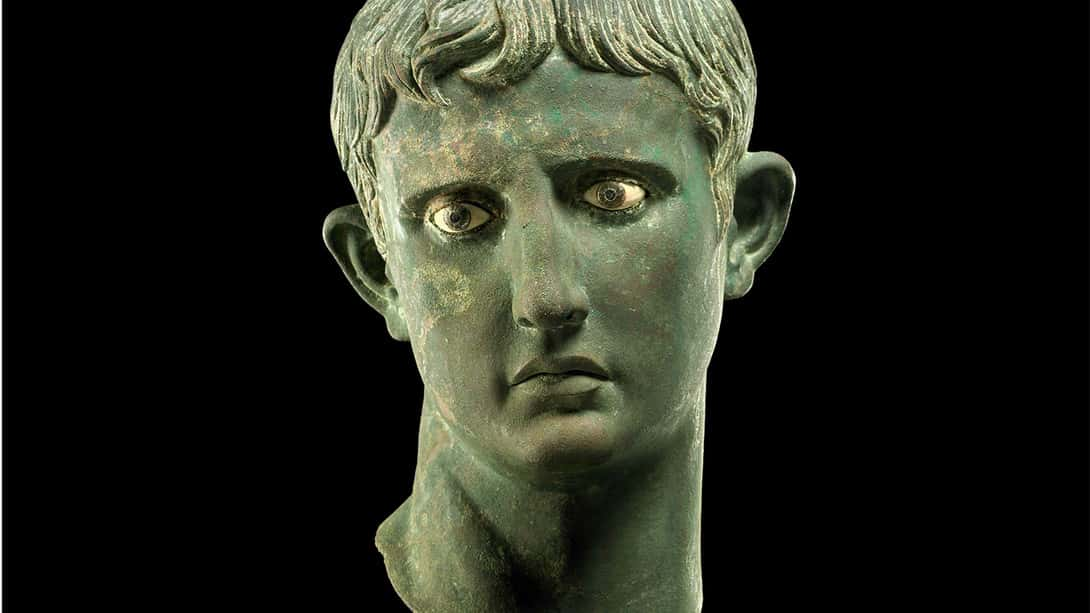 Wall Street International Magazine
Wall Street International Magazine
22. Born and Raised
Augustus was born in Rome on the 23rd of September in the year 63 BC. However, he didn’t stay in Rome for long, as it was deemed too crowded to raise him. He was then taken to his family’s estate in the village of Velletri for the first years of his life.
23. Was Octavius That Hard to Pronounce?!
Augustus’ birth name was Gaius Octavius Thurinus, although historians usually call him “Octavian” for short. This is due in part to William Shakespeare giving him a more English-sounding name in the play Julius Caesar, much like how Marcus Antonius (Augustus’ rival) became known as Mark Antony instead.
24. So My Grandma…
In just one case of Emperor Caligula being absolutely crazy, he apparently disliked that his mother Agrippa, Augustus’ granddaughter, had less-than-royal ancestry through her father’s side. Caligula decided to rewrite history by claiming that Agrippa was actually born from an incestuous relationship between Augustus and his daughter, Julia. Because even that atrocity is better than marrying beneath your station, according to Caligula.
 Total W*r: Alternate Reality Wiki
Total W*r: Alternate Reality Wiki
25. The Roman Purge
In an act of ruthless vengeance and ambition, Augustus and the other members of the Second Triumvirate took power in 43 BC and issued mass proscriptions (see: state-approved attack/banishment). More than 2,000 people (including up to 300 Roman senators) were forced to flee or else be ended for the reward money issued by Augustus, Antony, and Lepidus.
Augustus’ role in this action is not agreed upon by historians, or even among contemporary Roman historians. Many say that Augustus took a minimal role in this, as he was younger than Antony or Lepidus and didn’t have as many enemies as they did, but this could also be flattery to avoid making Augustus look as bloodthirsty as Antony, whose memory was vilified by Augustus.
26. Kingslayer Brigade
One of Augustus’ longest-lasting contributions to the history of the Roman Empire was the formation of the Praetorian Guard. Initially formed by Augustus as a bodyguard detail, they grew in size and importance. They not only guarded the emperor, but also maintained the peace in Rome and even the rest of the Italian Peninsula.
Not only that, the Praetorian Guard became influential to politics when they executed Augustus’ descendant Emperor Caligula and installed Caligula’s uncle, Claudius, on the throne instead.
27. Love and Marriage
During his life, Augustus was married three times. His first two marriages each ended in divorce after two years, while the third lasted from 37 BC until his passing in 14 AD.
 Rome Across Europe
Rome Across Europe
28. Marriage was the End of Me
Speaking of that third wife, one theory presented by Roman historians was that Augustus’ end came about because his wife, Livia Drusilla, poisoned him in order to ensure that her son, and Augustus’ stepson Tiberius, would become the next emperor. However, this is often seen as slander by those who loathed Tiberius and wished to make him more of a villain than he probably was.
29. A Napoleon Complex Pre-Napoleon?
According to Suetonius, Augustus stood 5'7", but he wore platform shoes that added a few inches to his height.
30. Stop Spending My Inheritance
When a young Augustus arrived in Rome after the passing of Julius Caesar, he found that Mark Antony was acting as Caesar’s heir after having driven Caesar’s assassins from the city. Augustus called him out on it after drawing Caesar’s former army to his side, even making an alliance with Caesar’s former enemies. Antony was declared a hazard to the Republic, leading to his flight from Rome.
 Youtube
Youtube
31. Law and Order
As emperor, Augustus oversaw Rome’s first officers and firefighting forces. He also established a permanent standing army to maintain the empire, numbering 170,000 men in total.
32. Call Me Unkempt, I Dare You!
Augustus apparently didn’t care much about his personal appearance. His teeth were poorly kept, and he would often just have several barbers work on his hair without real care to how it ended up looking. To be fair, who’s going to tell Augustus that he’s having a bad hair day?
33. I’m No King! Honest!
One element that made Augustus’ seizing of power successful was his refusal, unlike Julius Caesar, to dress finely and cover himself in glorious titles and finery. Augustus turned down the privileges of wearing a diadem or carrying a scepter, knowing that such kingly features would fly in the face of the image of a Republic that he was trying to claim still existed.
Of course, the façade eventually faded when he’d secured his power.
34. The worst Father-In-Law
After her husband Agrippa passed, Augustus arranged for Julia to marry his stepson, Tiberius. Neither Julia nor Tiberius liked each other, and Augustus even forced Tiberius to divorce his previous wife, whom he’d adored, just so he could marry Julia. Not the best start to a relationship.
35. Dad! You’re Such a Buzzkill!
Caught in a loveless marriage, Augustus’ daughter Julia decided she preferred the company of men who weren’t her husband, Tiberius. In 2 BC, she was detained for adultery. As Tiberius was away on Rhodes, Augustus took charge and arranged for Tiberius and Julia to divorce. He declared that his daughter had been guilty of treason and punished her lovers with exile or else forced them to end themselves.  Imperium: Augustus (2003), EOS Entertainment
Imperium: Augustus (2003), EOS Entertainment
36. Disowned Daughter
As for Julia, she was banished to the tiny island of Pandateria, forbidden to have male visitors unless Augustus approved of them, and was even forbidden to drink booze. She remained there for the rest of her life, while Augustus left specific orders that Julia’s remains wouldn’t be allowed in the family mausoleum when she was gone.
Never forgiving his daughter, Augustus was said to have lamented "If only I had never married". Harsh…
37. No Need to Thank Me!
Although the Romans did use marble in their buildings, it wasn’t their main construction material until the reign of Emperor Augustus. As a result, Augustus' final words to the people of Rome were: "I found Rome of clay, and leave her to you of marble".
38. A Showman to the Last
Allegedly, Augustus’ last words were “Have I played the part well? Then applaud as I exit". Frankly, given how his ability to play sides off one another and putting on facades led to him seizing power under everyone’s noses, we can’t help but admit that those are the most fitting last words he could have said.  Imperium: Augustus (2003),Rai Fiction
Imperium: Augustus (2003),Rai Fiction
39. No Mercy
Augustus was famous for being absolutely ruthless when it came to his enemies. Once, a man sentenced to capital punishment begged the emperor for his body to be buried. Without batting an eye, Augustus gave a this chilling reply: “The birds will soon settle that question". In another instance, when a father and son begged for their lives, he told them to gamble to decide which would be spared.
The father volunteered to be ended in order to save his son, and Augustus then coldly watched as the man was executed, and as the son took his own life right after.
 Getty
Getty
40. Brutal Memorial
Augustus revered his great-uncle and adoptive father, Julius Caesar, even long after the legendary general’s end. He was so committed to Caesar’s memory, in fact, that he once ordered an absolutely horrific sacrifice to be held on the Ides of March, the anniversary of Caesar’s execution (today we'd call it March 15th, but the Romans had a flair for the dramatic).
300 prisoners taken from the recent Perusine battle were ended on the altar of Caesar in Rome, all to show how much the emperor respected the man who set the foundation for his rule.
41. Now That’s an Endorsement!
It wasn't just the Persians who loved their emperor Cyrus the Great, even his enemies thought highly of him. The Greek historian Herodotus took the time to write about the former Persian king. For years, historians considered Herodotus's biography the primary source on Cyrus’s life (though given what we know about Herodotus, we have to take his facts with a grain of salt).
Another Greek historian who wrote of Cyrus was Xenophon, who deeply admired the Persian emperor. He admired him so much that he used Cyrus's life and legacy in a treatise on the ideal ruler. You know that you’ve entered the upper echelon of history when even your enemies praise you!
42. If You’re Going to Nitpick About It…
The name “Cyrus” is actually a Latinized version of the Persian King’s name. The original spelling would be closer to “Kurus".
43. Long Live the King
Cyrus ruled as King of Persia from 559 BC until his passing in 530 BC. In between those thirty-odd years, Cyrus also became the king of Media (starting in 549 BC), Lydia (starting in 547 BC), and Babylon (starting in 539 BC).
44. From One Great to Another
One of Cyrus’s biggest admirers was none other than Alexander the Great. By the time of Alexander’s lifetime, Cyrus was long gone, but he was already a legendary figure, even amongst the Greeks. While he was a child, the would-be conqueror read a great deal about Cyrus’s life and legacy. We can assume that Alex saw Cyrus’s reputation for conquests as a standard to outdo during his own lifetime.
 Alexander (2004), Warner Bros.
Alexander (2004), Warner Bros.
45. Oh No You Didn’t!
Alexander’s admiration for Cyrus went far beyond reading about him as a student of history, however. When Alexander conquered the Persian Empire, he assigned guards to watch over the tomb of Cyrus in the city of Pasargadae. After he returned from his Indian conquests, Alexander learned that the guards of that tomb had desecrated it, which was the exact opposite of the orders they were given—and his revenge was brutal.
Infuriated at the idea of Cyrus’s tomb being violated, Alexander had the perpetrators caught and executed.
46. Multiple Choice Answer
Cyrus’s mighty empire contained four capital cities (as befitting the way that Cyrus divided his empire into several states). These cities were Babylon, Susa, Ecbatana, and Pasargadae. Cyrus gave each a certain level of self-governance, while still owing fealty to the emperor.
47. No Need to Thank Me!
Through Xenophon’s biography of Cyrus (known as the Cyropaedia), countless students in western civilization have read Cyrus’s life story. It's largely thanks to this book that he continued to be an inspirational figure for centuries. One man who particularly loved the Cyropaedia was none other than Founding Father Thomas Jefferson. He kept two copies of the book in his possession, and he extensively marked and noted within their margins.
Historians studying these personal copies have gleaned that Cyrus’s example greatly inspired Jefferson when he was first writing the United States Declaration of Independence!
48. Love and Marriage
It’s not known when exactly it happened, but Cyrus married a Persian noblewoman named Cassandane. Despite this being a time when marriages weren’t necessarily done out of passion, Cyrus and Cassandane were said to be madly in love with each other. Cassandane went on to be the mother to all of Cyrus’s known children.
49. Family Disputes
Although Cyrus’s father was technically a king, he was also a vassal to his father-in-law, King Astyages of Media. When Cyrus became king of Persia, however, trouble began in earnest. His maternal grandfather actually went to battle with him when Cyrus decided he wasn’t going to be a subservient king like his dad had been.
Astyages went to battle against his grandson, but in the first instance of Cyrus’s army genius, he defeated his grandfather in combat after three years of battle.
50. Don’t Go Targaryen, Here…
You might be wondering what might have happened to Cyrus’s grandfather after Cyrus defeated him and took the kingship of Media for his own. According to one source, the conquering king spared Astyages on account of his being Cyrus's grandfather. Cyrus then secured the peace by marrying Astyages’s daughter, Amytis.
Though, for anyone keeping track, that would mean that Cyrus married his own aunt…
51. Green-Thumbed King
Cyrus had a well-known passion for growing things. It was he who oversaw the establishment of a very elaborate system of gardens within his capital city of Pasargadae. Gardening became a trait that people often associated with Persians in the ancient world. The Persian kings would continue their predecessor’s interests by maintaining the vast gardens of Pasargadae for years after Cyrus’s end.
52. Checkmate!
One of the most famous examples of Cyrus’s army genius was during the immense Battle of Thymbra, fought against Croesus in 547 BC. Outnumbered two to one, Cyrus needed every advantage he could find, resulting in him thinking outside of the box. Noticing that horses were skittish around camels, he surrounded his archers with camels from his baggage train. This completely broke the enemy's cavalry charge.
Cyrus's ingenious tactic allowed him to employ his archers safely to rain arrows upon the enemy. They destroyed the Lydian mounted units and left the rest of the enemy army vulnerable to his own cavalry charge.
53. Sharing One’s Grief
In 538 BC, Cyrus’s beloved wife, Cassandane, passed. Overwhelmed with grief, Cyrus bade that everyone in his empire undergo the same mourning for the lost of their monarch. As a result, the entire Persian Empire mourned Cassandane’s end for six whole days.
54. Praise Him with Great Praise
The Jewish people honor Cyrus’s name and reputation to this very day. The Bible and Torah mention that the prophet Isaiah named Cyrus as “Messiah” (meaning “His anointed one”). This makes Cyrus the only non-Jew to hold that honor. Meanwhile, in modern-day Jerusalem, there is a street named after the Persian king.
55. “Kingsguard” Was Already Taken?
It was Cyrus who established the classic Persian unit known as the Immortals. These heavily armed people served as bodyguards to the Persian kings. They could also turn the tide of battle thanks to their elite training and weaponry. The legend around this unit was that their numbers never fell below 10,000. The army immediately replaced any soldier in the unit who was gone in battle, giving them their "immortal" nickname.
Their fame has had some serious staying power—they made a famous appearance in Zack Snyder's 300, a cool two and a half millennia after their formation.
56. This Can’t Backfire!
The battle between Cyrus and Croesus of Lydia is marked with one of the most famous predictions in ancient history. Reportedly, before he set out to try and take on the up-and-coming Persian king, Croesus consulted with the Oracle at Delphi to find out what he should do. The Oracle famously stated that if Croesus went to battle with the Persians, he would destroy a mighty empire.
Flushed with relief and confidence at such a prophecy, Croesus went full steam ahead with his army campaign—but he had made a fatal mistake. As you can imagine, the mighty empire that he ended up destroying was his own. This is why specific phrasing is important, kids!
57. Battle of Words
According to Herodotus, Cyrus was encroaching on the territory of a tribe called the Massagetae, who lived in a region now found in Uzbekistan. Cyrus initially suggested that he marry the ruler of the Massagetae, a warrior queen named Tomyris. Tomyris refused the offer, however, and warned him to stay out of her territory or else.
58. Joke’s on You!
As you can imagine, neither the Persian king Cyrus nor the Massagetae empress Tomyris were content to leave the situation as it was. To settle the issue, Tomyris suggested that their armies face off at a specific time and place. Cyrus accepted, but he had a plan to use trickery to take an easy victory. Cyrus had learned that the Massagetae were unused to the effects of booze and planned to use this to his advantage.
He arrived early, set up camp, and then led his best people away, leaving the worst ones behind with a vast store of booze. Tomyris’s son, Spargapises, led the advance units of the Massagetae to the camp. They slaughtered the army within and began pounding the booze left behind. Cyrus swept into the camp and massacred the drunken Massagetae.
Spargapises ended up ending himself in captivity, presumably while suffering the worst hangover that anyone’s ever had in the history of humanity.
59. The Battle to End Battles
As you can imagine, Tomyris was livid when she heard about Cyrus’s deceitful victory over her son and the slaughter of a third of her army. This time, she personally led her army against Cyrus. Herodotus helpfully labeled the subsequent battle as the fiercest fought in the history of the ancient world up to that point. The Massagetae defeated Cyrus,ending him in the battle.
A victorious Tomyris even claimed a trophy by decapitating his body. Allegedly, she dipped Cyrus's head in blood, in mockery of his bloodthirstiness in life.
60. Everything the Light Touches
It’s safe to say that most people have heard of the expression “The sun never sets on the British Empire". However, the first time that phrase was ever used, it wasn’t about the British Empire. It was about Charles V, Holy Roman Emperor’s territories, which spanned four million square kilometers around the world! His was called "el imperio donde nunca se pone el sol," or "The empire on which the sun never sets". 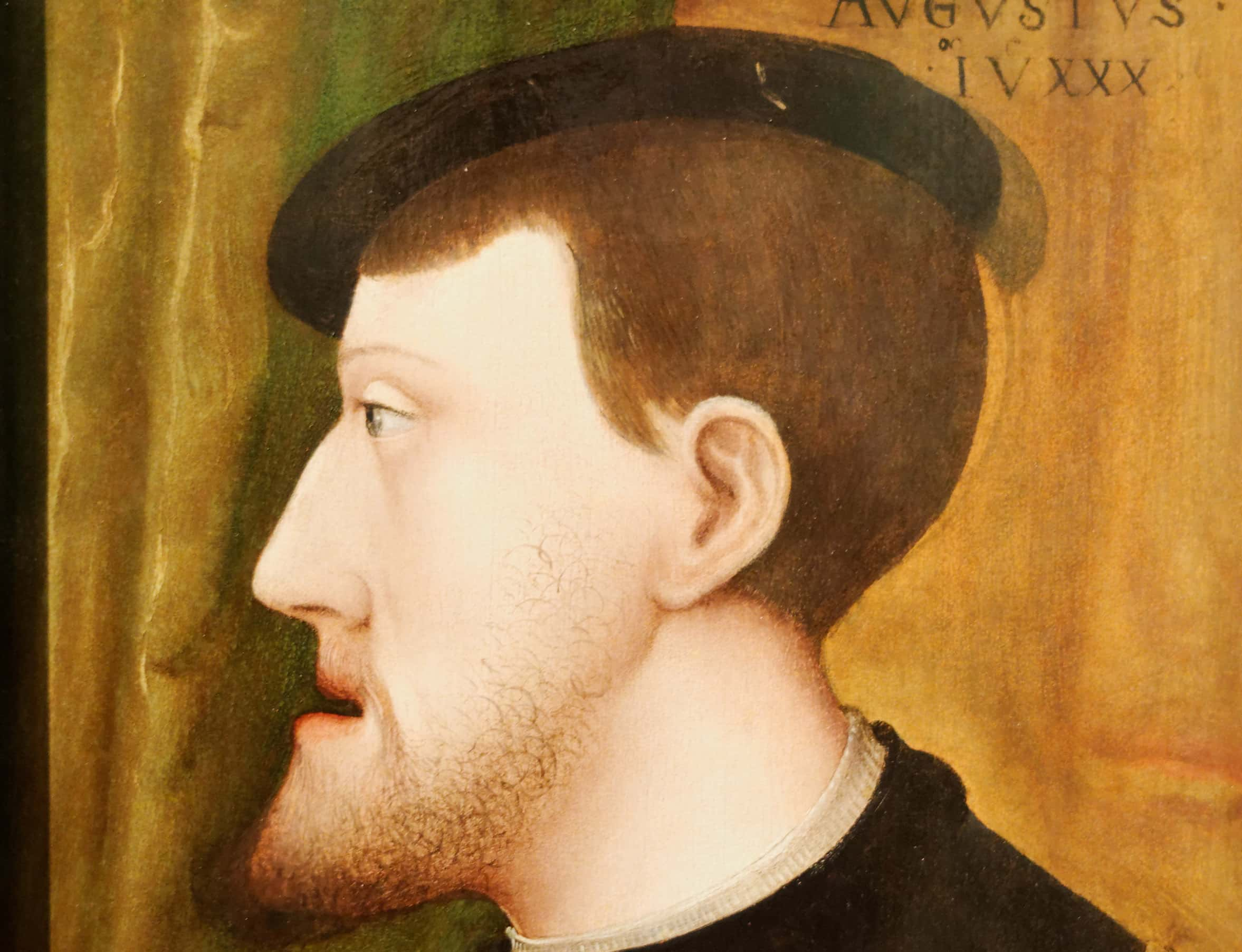 Wikimedia Commons
Wikimedia Commons
61. Start of the Century
Charles was born on February 24, 1500. His birthplace was the city of Ghent, in modern-day Belgium, but back then it was part of what was known as the Habsburg Netherlands.
62. Birth Lottery
Charles led a charmed existence from the moment of his birth, as he was simultaneously the heir to three of Europe’s most powerful royal houses! These were the Austrian House of Hapsburg, the Burgundian branch of the House of Valois, and the Spanish House of Trastamara.
63. Hardy Har Har!
Being a ruler of several nations, Charles spoke several languages. These included French, Dutch, and Castilian Spanish. Charles was famously known for his witty quip, "I speak Spanish to God, Italian to women, French to men, and German to my horse". Maybe he missed his calling as a comedian?
64. Titles Beget Titles
With the passing of his grandfather Maximilian in 1519, Charles was crowned the Holy Roman Emperor. He had already become the King of Spain in 1516 and the Lord of the Netherlands in 1506.
65. Ladies?
Charles was known to be a womanizer in his early life. Several women have been noted as being his mistresses while the monarch was a young bachelor. This changed with his marriage, however; unlike many rulers in history, Charles is said to have remained completely faithful to his wife from the day of their marriage until her passing.
 Carlos, Rey Emperador, Diagonal TV
Carlos, Rey Emperador, Diagonal TV
66. Royal Suds
Charles was famous for preferring brew to moonshine, and this aspect of his life would go on to inspire a fitting tribute. To this day, several Belgian breweries have named special brews after Charles. These include the Haacht Brewery’s Charles Quint and Het Anker Brewery’s Gouden Carolus.
67. I Feel Ill
Despite his opulence and royal background, Charles wasn’t immune to serious ailments. Not only was Charles epileptic, but he also suffered from gout. This latter condition progressively got worse during his life until he spent his retirement being carried around by others.
68. Love and Marriage
As we’ve hinted before, Charles and Isabella of Portugal remained completely faithful to each other over the course of their marriage, and by all accounts, they lived happily together. Of course, this happiness was often interrupted by distance, as Charles was frequently traveling for one reason or another. During his absences, Isabella ruled Spain as its regent. Her competent politics and governing have been well-documented, even in an era where women were seen as inferior to men when it came to…well, most things, sadly.
 Carlos, Rey Emperador, Diagonal TV
Carlos, Rey Emperador, Diagonal TV
69. Serious Design Flaw!
Following his marriage to Isabella of Portugal, Charles intended to build a palace suitable for them to live in together. Located in Granada in southern Spain, the Palace of Charles V was a truly ambitious project. Although construction began in 1527, the building was never completed, and never even got a roof until 1957! As a result, Charles, nor any monarch after him, ever lived in the palace.
70. Opulent Offspring
Charles had seven children with his beloved wife, Isabella. While four of those children never lived to adulthood, every one of their surviving children would become members of European royalty. Their only surviving son, Philip, became King of Spain. Their other surviving children, Joanna and Maria, became Princess of Portugal and the Holy Roman Empress, respectively.
 Carlos, Rey Emperador, Diagonal TV
Carlos, Rey Emperador, Diagonal TV
71. Prestigious Inheritance
After Charles, the Holy Roman Empire and the Spanish Empire wouldn’t remain united. The Holy Roman Empire went to Charles’s younger brother, Ferdinand, while Charles’s son became Philip II of Spain (best known for the defeat of his armada by Queen Elizabeth).
72. Upper-Class Mouth
One of Charles’s notable physical traits was an enlarged lower jaw. He had inherited it from his family before him, leading most historians to suspect that it was due to inbreeding within the noble families of Europe. It didn’t end with Charles either, given that he married his first cousin and his own children would marry their own cousins.
The enlarged lower jaw became more pronounced in Charles’s descendants, to the point where it gave rise to the term “Hapsburg jaw".
73. His Last Name Should Have Been “Snow”
During his life, Charles, Holy Roman Emperor had four illegitimate children by four different women. Despite the stigma placed on illegitimate kids, Charles’s kids rose to impressive heights in their own lifetimes. Margaret of Parma was not only a Duchess of Florence, she also spent several years as the Governor of the Netherlands.
Meanwhile, John of Austria would follow his father’s footsteps in fighting the Ottoman Empire while helping his half-brother, Philip II of Spain. One of John’s greatest accomplishments was his leadership role during the triumphant Battle of Lepanto.
74. For the Worse
One of the more chilling aspects of Charles’s legacy was his reformation of the slave trade. While the original route of the African slave trade involved sending Africans to Spain and Portugal before being sent west to the Caribbean, Charles passed laws which allowed the slave trade to go directly from Africa to the New World.
It was a significant influence on the trade, increasing its efficiency and scale.
75. I Think I’ll Retire
Unlike many of his contemporaries, Charles did not wear the crown until his passing (some historians believe that his abdication was inspired by his increasingly problematic gout). Beginning in 1554, Charles began giving up his territories to a few different successors. He himself would retire to the Monastery of Yuste in Spain, though he continued to correspond with people through letters and keep himself up to date on world events.
76. All This Fuss Over a Bad Marriage
After the Sack of Rome in 1527, Charles held such sway over the Catholic Church that the Pope would do virtually anything to avoid further bloodshed with him. That very same year, following the sack, King Henry VIII of England wished to end his marriage to Catherine of Aragon and remarry, so he asked the Pope for an annulment.
Since Catherine was Charles’s aunt, the Pope took her side on the issue and refused to grant an annulment. This led to huge repercussions, as Henry VIII would split England away from the Catholic Church to form the Henrican (or Anglican) Church, where he could grant himself a divorce. The rest is history.
77. Farewell to the Former Emperor
In the summer of 1558, Charles contracted a fatal case of malaria, though he managed to live up until September 21 of that year. He was 58 years old.  Ann Longmore-Etheridge, Flickr
Ann Longmore-Etheridge, Flickr
78. Pick a Place to Settle Down!!
Even when gone, Charles did a lot of traveling. He was initially buried in the monastery where he’d resided during his retirement. However, his will stipulated that he wanted a new religious foundation established where he and his wife, Isabella, could be laid to rest together. To bring his father’s wishes to fruition, Philip II of Spain arranged for the Monastery of San Lorenzo de El Escorial to be built, 45 kilometers north of Madrid.
Charles and Isabella rested there until the time of their great-grandson Philip IV, who moved them to the Royal Pantheon of Kings.
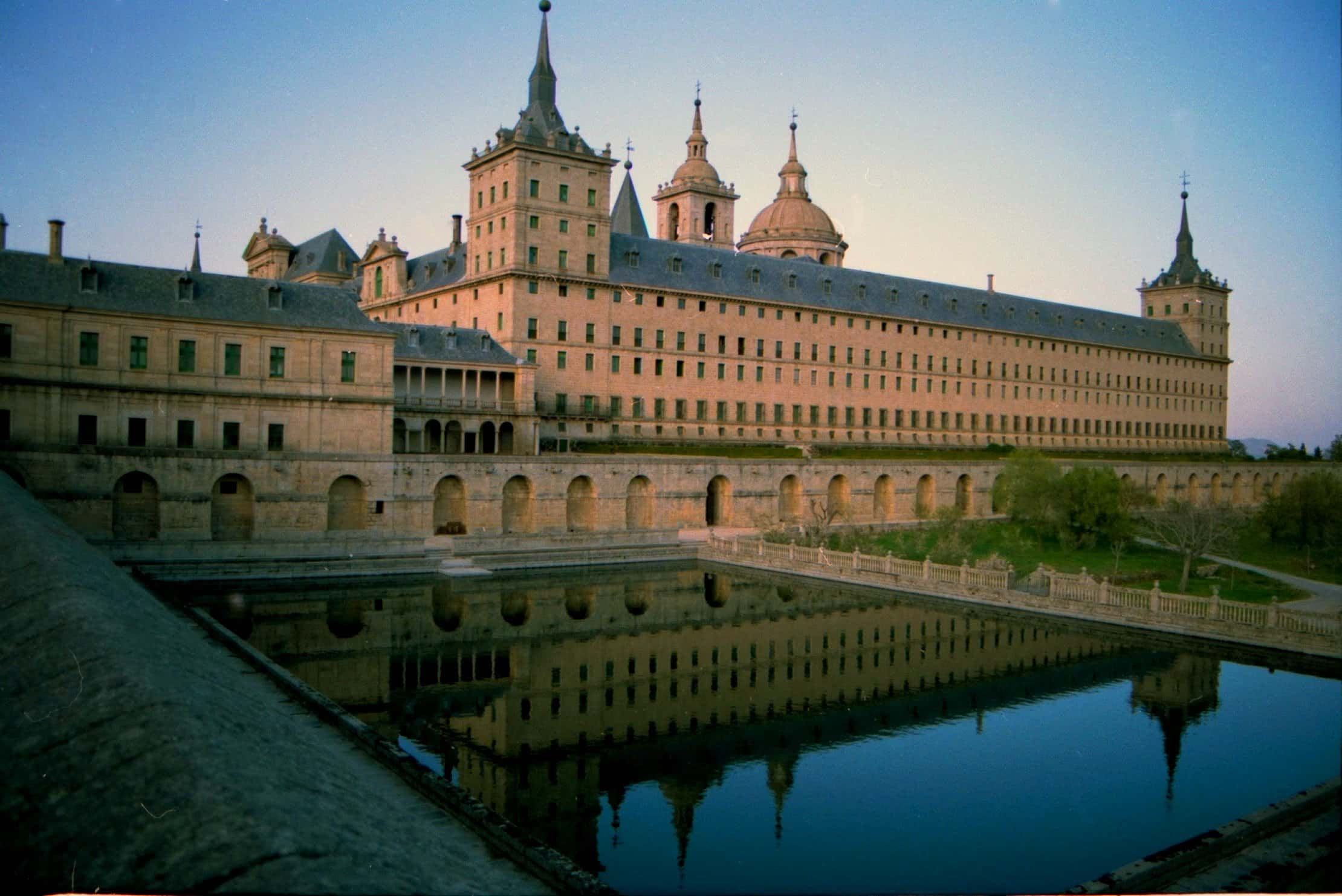 Wikimedia Commons, R Barraez D´Lucca
Wikimedia Commons, R Barraez D´Lucca
79. It’s Getting Targaryen in Here!
Before he was married, Charles was known to have had several affairs, but the most controversial by far was with Germaine of Foix, his step-grandmother! It’s long been rumored that Germaine’s daughter Isabel, born in 1518, was actually Charles’s biological offspring. In case you’re creeped out, remember that Germaine married Charles’s grandfather when she was 18 and he was 54.
Not only that, Germaine was the grandniece of her royal husband. If anything, getting together with Charles was less icky than her actual marriage!
 Carlos, Rey Emperador(2015-2016), Diagonal TV
Carlos, Rey Emperador(2015-2016), Diagonal TV
80. Farewell, Beloved
Tragedy struck Charles when his wife, Isabella, passed of an infection in 1539 at just 35 years of age. Charles was so devastated that he locked himself in a monastery for two months, fasting and praying in his grief. He never remarried and wore black for the rest of his life in tribute to the loss of his wife.
81. Rome has Fallen
One of the darkest events in Charles, Holy Roman Emperor’s life came about during his conflict with the League (an alliance between Milan, Florence, France, Venice, and the Papacy). Although Charles’s forces defeated the League in battle, it was revealed that they weren’t able to be paid due to a lack of funds. More than 20,000 army of Spain and the Holy Roman Empire went rogue and marched on the city of Rome. On May 6, 1527, this mutinous army enacted the Sack of Rome.
Although Pope Clement VII escaped with his life, thousands of others did not. Rome’s population went from 55,000 to an appalling 10,000 (due to deaths, imprisonment, or people fleeing the ruined city).
82. The End of Another Era
Although Charles did not directly order the Sack of Rome, he certainly benefited from it. Pope Clement VII no longer opposed him, allowing his influence on the Catholic Church to reach new heights. This came at a grave cost for Rome and Italy; the great city was badly damaged, and its population vastly depleted. The Sack of Rome has often been seen as the end of the Italian Renaissance, since Rome had been such an important city where art and culture had thrived.
83. New Money
Born in 1672, Emperor Peter the Great of Russia was just only two generations removed from the founding of the Romanov Dynasty. His grandfather was Michael I of Russia, the first Tsar from the House of Romanov. Hard to imagine an Imperial Russia without those notorious Romanovs, but when Peter was born, the family were relative newbies on the highborn scene.  Peter the Great (1986), NBC Productions
Peter the Great (1986), NBC Productions
84. To Kiss a King
Peter the Great famously broke court protocol during his 1717 visit to France: the 6'8" tall Tsar picked up the child King Louis XV and planted a kiss on his pint-sized host. Peter sought to marry Louis to his daughter, but his plans to unite the Russian and French royal families never came to fruition. The kiss would have to do.
85. Big Sister is Watching You
Peter’s older half-sister Sophia served as Regent for most of his early reign. And she ran a very tight ship: Sophia drilled peepholes behind her brothers’ throne, where she would listen into their meetings and also whisper back information responses they were to repeat verbatim. In other words, she was a literal backseat ruler. Wikimedia Commons
Wikimedia Commons
86. Who Needs Thrones When You Have Boats
As a youth, Peter didn’t really resist his older sister’s control because he didn’t care for rulership that much. He much preferred his shipbuilding and sailing hobbies, as little boys are wont to prefer over diplomatic meetings.
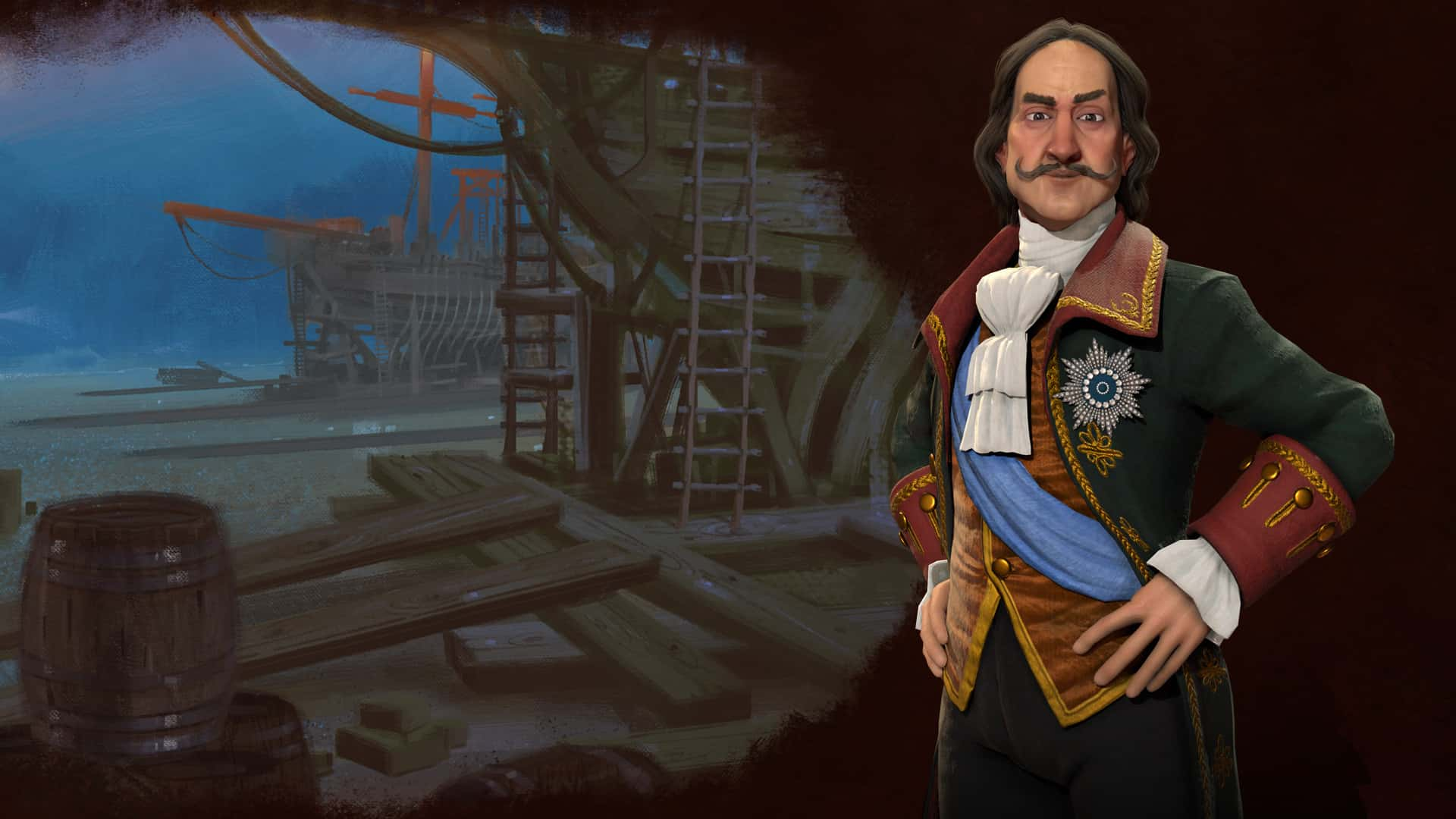
87. Head and Shoulders Above Them All
Even by our standards, Peter was a tall dude. At full height, he stood at 6'8" tall (203cm). This was balanced by oddly small hands and feet.
88. We Bet He Didn’t Feel So “Great” the Next Morning
According to legend, Peter the Great’s sojourn to England led to the invention the Russian Imperial Stout brew. The Tsar fell in love with English mead, but he couldn’t take any home with him before it spoiled. To rectify this, an English brewer kept adding more booze and hops to make it last longer, thereby creating the hot new brew that’s fit for a Tsar.
89. I Wanna Be Like You
For Peter—and for others—“modernization” meant "like the rest of Europe". So as an early attempt to modernize the Russian government, Pete ordered all army and court officials to shave their beards and wear “modern” (see: French fashion-inspired) clothing. How did he make everyone shave you might ask? Well, he instituted a beard tax of course!
Authorities were even allowed to forcibly shave men in public if they refused to pay.
90. Sea Me Roar
Peter turned Russia into a real naval power for the first time in its history. With no Russian access to the Baltic, Black or Caspian Seas, Peter set out on his Azov campaigns against the Ottoman Empire in order to gain a foothold in the region (with all the army control it offered). After some failed first steps, it eventually worked.
Peter inaugurated the port city of Taganrog in 1698, which became the first army base for the soon-to-be-legendary Russian Navy. Next stop: the world?
91. Master of Disguise
To prepare for his naval conquest against the Ottomans, Peter sent a group of ambassadors across Europe while secretly leading the expedition disguised as a simple carpenter named “Peter Mikhailov". This initiative would be known as his “Grand Embassy,” which is ironic since it grandly fell on its face: the other relevant European powers were too preoccupied with their own wars to care about Peter’s grudge against the Ottoman Empire.
But it wasn’t a total waste: Peter did learn a lot of about shipbuilding and everyday culture across Europe.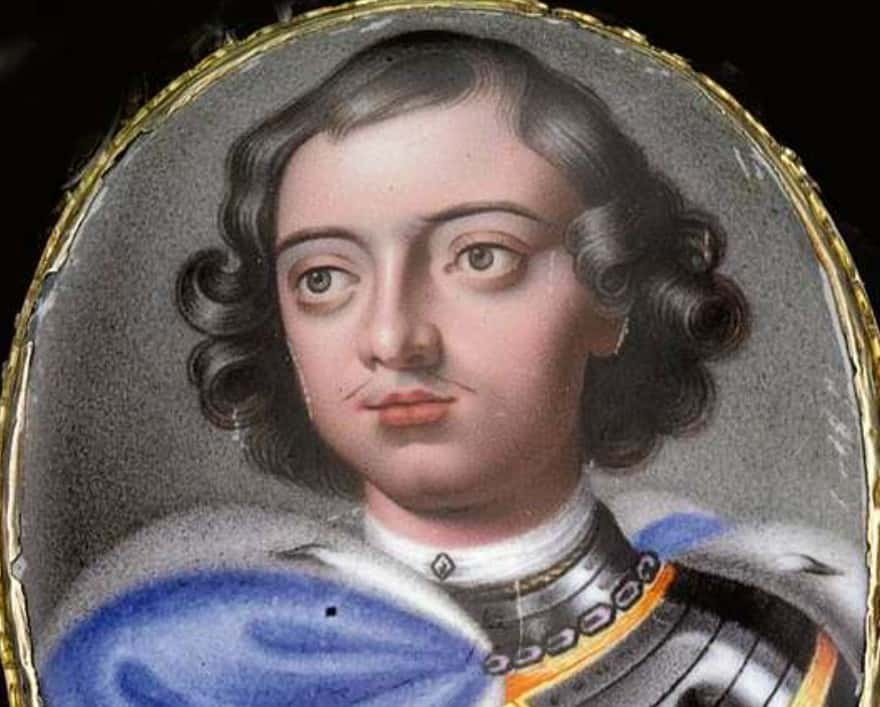 Picryl
Picryl
92. No Mercy, No Regrets
Peter was notoriously merciless to rebels. Managing to crush all rebellions waged against him during his reign, Peter didn’t settle for exile: he slaughtered mutineers in sadistic ways as a warning to others. Peter the Great (1986), NBC Productions
Peter the Great (1986), NBC Productions
93. Big Me in the City
In 1712, Peter moved Russia’s capital city from Moscow to Saint Petersburg (his namesake saint). The city had been founded in 1703 on the westernmost coast of the Baltic Sea to solidify the country’s newfound rights to the waterway.
94. I Called Dibs on First
The year 1712 also marked Russia’s official status as an Empire. As a result, Peter became known as “Peter the Great” and the first Tsar to be known as “Emperor of All Russia".
 bloggang
bloggang
95. I Do, I Guess
At the behest of his mother, Peter the Great married the daughter of a noble family in 1689, when he was just 17 years old. The bride’s name was Eudoxia Lopukhina, they had three sons, and were by all accounts very unhappily married.
96. Never Gonna Give You Up
Peter disliked his first wife Eudoxia from the start. He soon abandoned her for a Dutch mistress named Anna Mons, but the rejected Eudodixa would still send him letters begging for his nonexistent love.
97. Having Nun of It
In 1698, after nine years of marriage, Peter ended his miserable marriage to Eudoxia Lopukhina and exiled her to a convent (did he have any other moves?). Euddoxia kept busy in seclusion and allegedly took a lover for herself named Stephen Glebov—a man who would later be quartered to end.
 Peter the Great (1986), NBC Productions
Peter the Great (1986), NBC Productions
98. It’s Now or Never. Oh, You Chose Never…
After his divorce from his first wife, it was believed Peter would marry his longtime mistress, Anna Mons. After all, they had been together for 12 years. However, by 1703, Ana feared Peter was falling out of love with her and therefore sought comfort in the arms of a Prussian ambassador to make Peter jealous. Eventually, the ambassador proposed to Anna and the two did get married. Awkward. Wikimedia.Commons
Wikimedia.Commons
99. Some Way to Cool Off
The Tsar was initially furious to discover his mistress was carrying out her own affair with an ambassador. Even worse: the couple were considering marriage. In a rage, he revoked Anna Mons’s estate and placed not just her, but her mother, sister, and 30 friends under house arrest. Eventually, Peter did cool down enough to let the lovebirds marry in 1711. Getty Images
Getty Images
100. A Cinderella Story
Peter elevated his peasant-born mistress to the position of his second wife. The couple were secretly married some time in late 1707, but they were officially wed in Saint Petersburg on February 9, 1712. The bride in question, Martha Skavronskaya, changed her name and would become known Catherine I of Russia.
101. Blondes Don’t Have More Fun
Peter’s second wife, Catherine, dyed her hair black to avoid reminding her husband of his previous mistress, Anna Mons. She was a blonde who spurned him and whose family paid the price.
102. He Picked His Side
Peter’s eldest son, Alexei Petrovich, hated his dad’s guts from the start. The Tsarevich was raised by his mother, who happened to be Peter’s deeply mistreated first wife, Eudoxia Lopukhina. As a result, Alexei found it hard to develop paternal bonds with the cause of his mother’s misery.
103. Daddy Issues
Although Tsarevich Alexei Petrovich was Peter’s eldest son, the boy spent most of his adult life thwarting his father’s efforts to mold Alexei into a worthy heir. In fact, after the birth of his own son, the future Peter II, Alexei tried to shirk his inheritance altogether. He asked Peter to pass the throne along and just let Alexei live a private (but luxurious) life with his own lover. Peter would have preferred Alexei be a monk, just to be safe. Needless to say, it did not go well.
104. Where’s Jerry Springer When You Need Him?
The great Tsar put the friends and allies of his son Alexei under "questioning". He even dragged the boy’s mother out of religious sanctuary and charged her with adultery (they had been divorced for some time now, but I guess that doesn’t matter?). Why go to his trouble? Alexei continued to defy his own inheritance, even fleeing to Austria and thereby rebelling against Peter and the Russian government itself.
105. A Fatherly Touch
In 1715, Peter’s eldest son Alexei passed just two days after being sentenced to capital penalty. It’s believed the wayward Tsar succumbed to interrogation-related injuries. Attempts had been made to make the Tsarevich “confess” to treason plots against his own father. 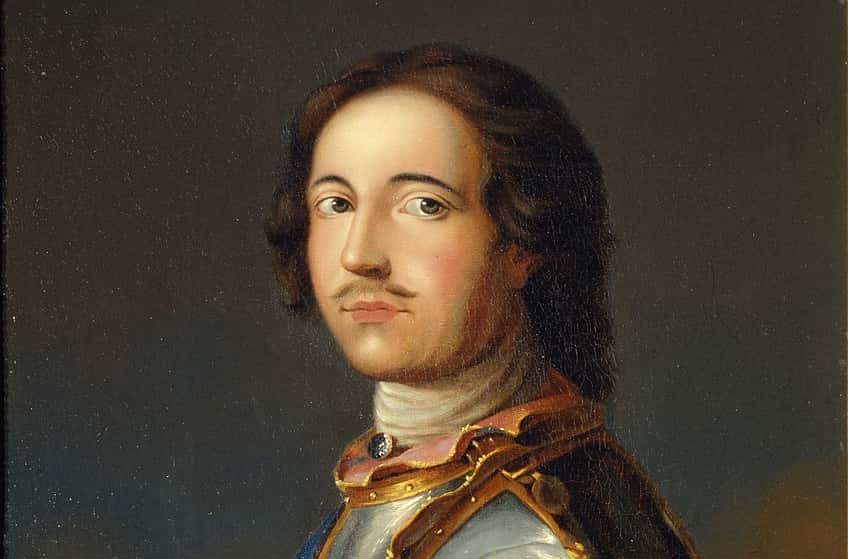 Getty Images
Getty Images
106. Ghosts of Son’s Past
After his son’s torturous end (inflicted by daddy dearest himself), Peter’s new heir was his grandson, the future Peter II of Russia. By 1715, Peter the Great had managed to alienate or end most of his close family members: his older sister, his first wife, and now his late son. Unfortunately, grandson reminded Peter of the disgraced prodigal son Alexei.
As a result, the new Tsarevich was educated away from his grandfather and in deep seclusion.
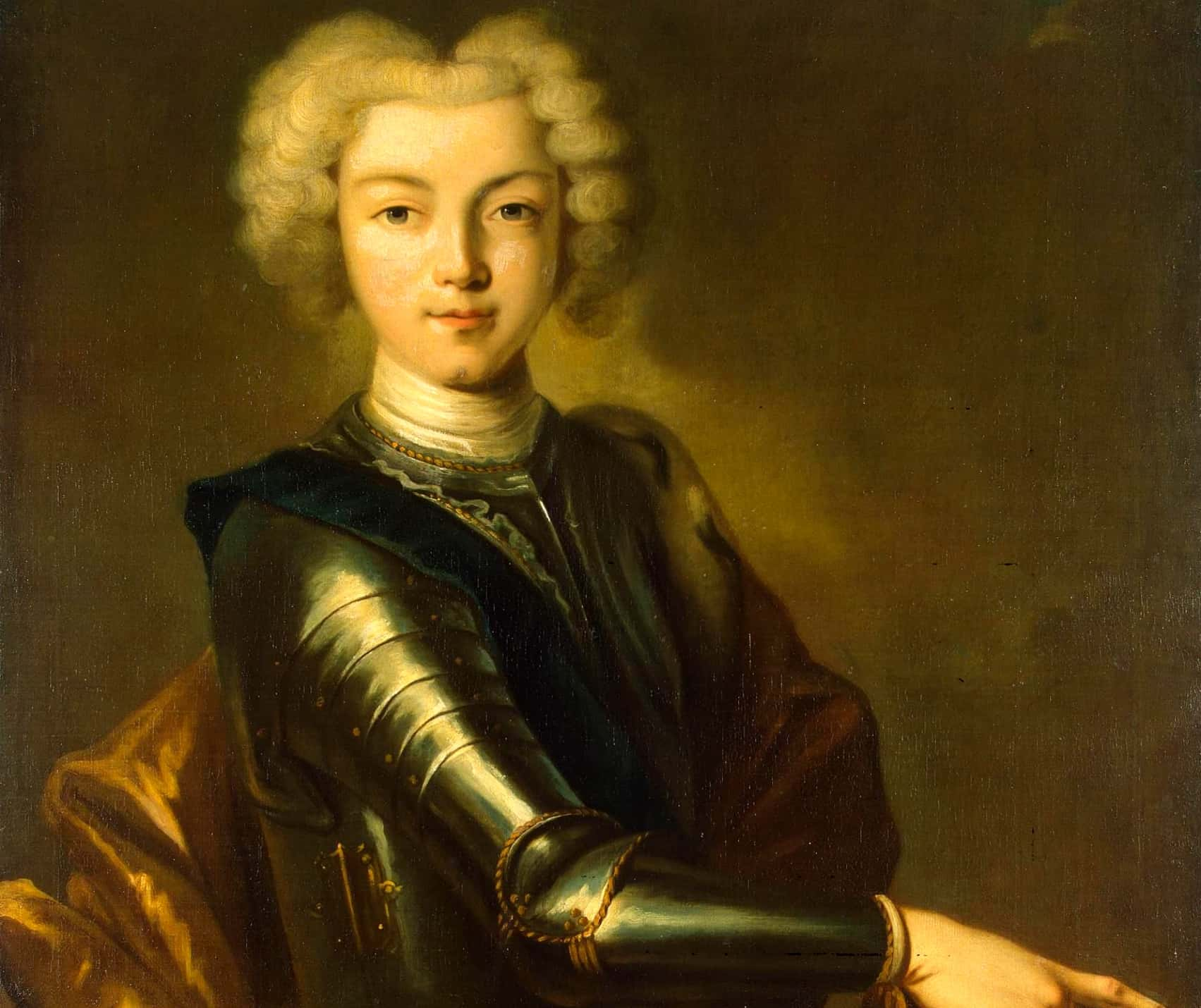 pinterest
pinterest
107. Secret Sickness
Throughout his life, Peter suffered from distinct facial tics that suggest he had epilepsy. It’s said his favored second wife, Catherine, had a talent for calming down his rages, both epileptic and non-epileptically induced. Peter the Great (1986), NBC Productions
Peter the Great (1986), NBC Productions
108. His Cup Floweth Over
While he was never a fully healthy man, the king’s body took a grim turn for the worse in 1723. The following year, he had to get surgery that removed four pounds of blocked urine from his body. Since we’re talking 18th-century surgery, none of that sentence was fun for anybody involved.
109. We Won’t Water This Down for You
In the end, Peter the Great passed at the age of 52 on 8 February 1725. Sitting on the throne for 42 years, he left behind a great empire and also a gangrene-infested bladder.
110. Let Me Finish That Thought…
Another legend says that Peter was gone in the middle of writing his famously incomplete will. Dying of uremia (the kingly passed of urine pollution in his blood), it’s said he managed to scrawl “Leave all to…” but then passed out, only having enough energy to summon his daughter. 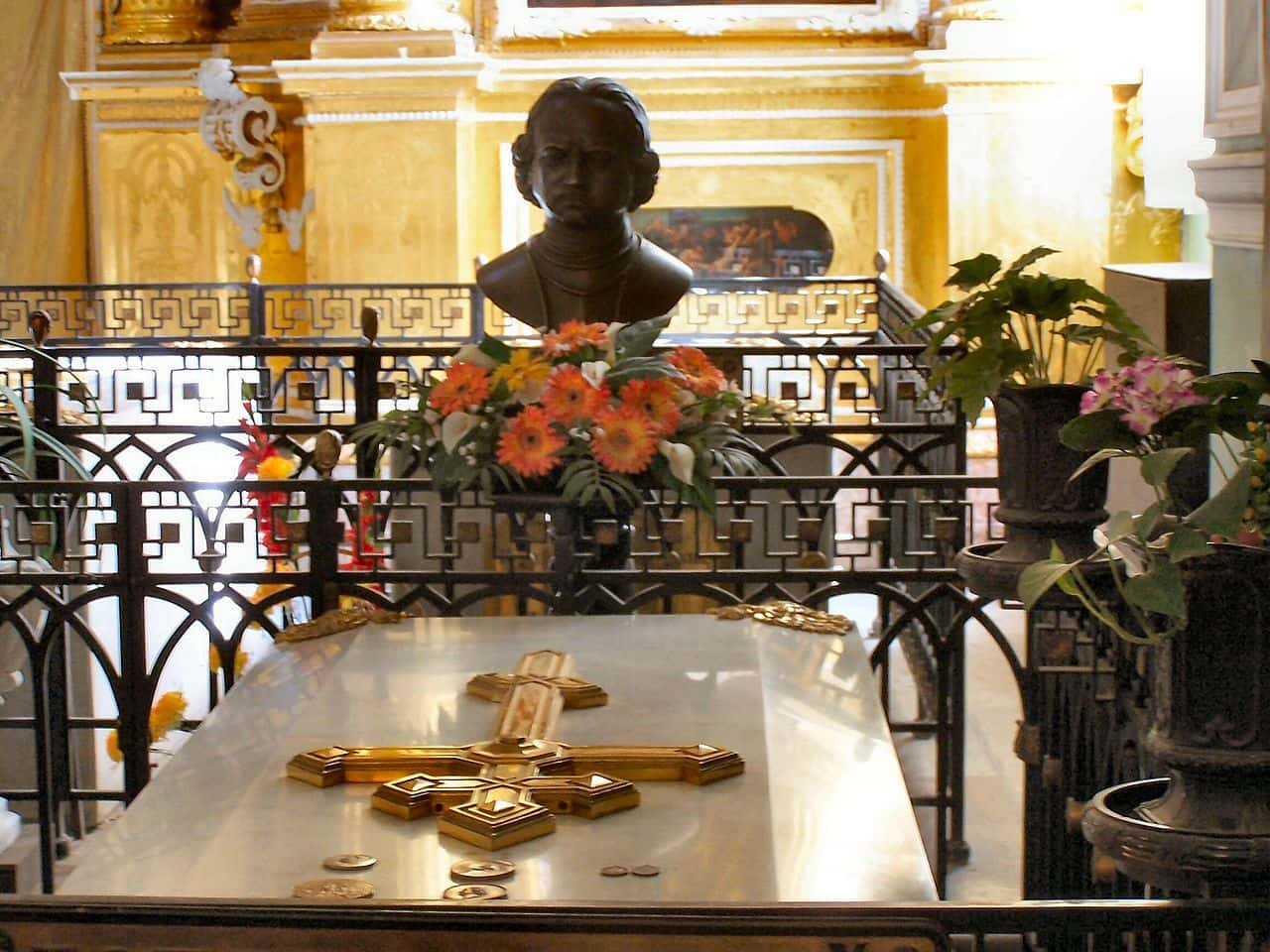 Wikipedia
Wikipedia
111. Following in Hubby’s Footsteps
Peter’s wife, Catherine, succeeded him on the throne. The Tsar had passed without naming any successor, so Empress Catherine seized power and began to represent the interests of elevated common folk, known as “the new men". Her popularity led to a coup on her behalf, wherein she was crowned co-ruler of Russia. Unfortunately, she did not enjoy this power long—Catherine outlived Peter by only two years.
112. Don’t Mess With This Sis
In spring 1682, Peter’s boyhood battle for the throne violently came to a head when his 25-year-old half-sister Sophia launched a brutal rebellion against his side of the family. The ten-year-old Peter even witnessed some of his own family and friends being ended in the chaos.
113. Baywatch: Tsar Edition
A legend exists that Peter saved a pack of drowning army man himself by wading out into waist-deep water. On one hand, this seems exaggerated, because this was dated to when he was near end. On the other hand, this was also dated to a brief period where he seemed to recover enough to go out and inspect his empire. Nevertheless, tale-tellers raise his exposure to the cold water in order to explain the continued (and deadly) bladder problems. Peter the Great (1986), NBC Productions
Peter the Great (1986), NBC Productions
114. First Thing’s First
Contrary to how the western world has operated for centuries, the correct pronunciation of Persian Emperor Xerxes’s name is not “Zerkseez". The spelling and pronunciation of his name have been badly misinterpreted and mistranslated by Western sources over the years. The correct pronunciation of the Persian king’s name would actually be much closer to the name “Khashayar,” a name that is still regularly used within the modern Iranian population.
115. Birth of a King
Xerxes was born 519 BC in Persia. He was a son of King Darius I and Atossa, two cousins within the royal family that ruled Persia. This family was known as the Achaemenids, named for their ancestor, King Achaemenes.
116. 1000 Nations of the Persian Empire!
The massive army assembled by Xerxes to invade Greece was a truly multinational army (so that’s one thing 300 did get right). Aside from native Persians, Xerxes’s army also included Assyrians, Phoenicians, Egyptians, Indians, Hebrews, Macedonians, European Thracians, and even other Greeks.
117. Oh God, You Devil!
At the time of Xerxes’s invasion of Greece, the Greeks might have counted on the support of their fellow Greeks in Sicily, particularly in the powerful kingdom of Syracuse. However, the kingdom of Carthage invaded Sicily at the absolute worst time and Syracuse never sent any help to Greece. Ancient historians were convinced that Xerxes was behind the Carthaginian attacks, but this claim is often dismissed as the Greeks vilifying an enemy into an evil genius responsible for everything going wrong. 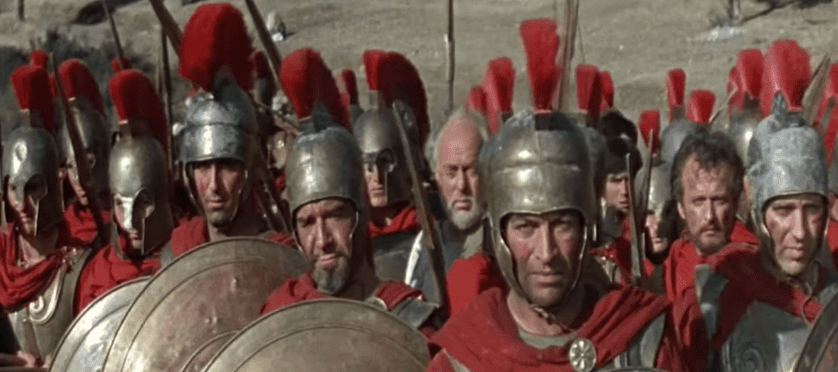 The 300 Spartans, 20th Century Fox
The 300 Spartans, 20th Century Fox
118. He Seems Like a Reasonable Guy!
It would be all fine and good for the Greeks to vilify Xerxes’s reputation in the history books by accusing him of enslaving his men to fight in the vast Persian army. The irony, of course, isn’t just that the Spartans themselves brought slaves to the Battle of Thermopylae. An extra layer of irony is that Xerxes’s own grandfather, Cyrus the Great, established a complete abolition of slavery within the Persian Empire. Xerxes didn’t break from gramps’ precedent, either.
In his kingdom, slaves weren’t allowed, and all people had specific inalienable rights.
119. Don’t Worry, Be Happy!
If you visit the ruins of Persepolis, you can still see the ancient Persian script which depicts Xerxes’s determination that people had a right to be happy. He believed that a right to happiness was a gift to humankind given by the deity Ahura Mazda. For those of you not paying attention, this was long before Thomas Jefferson ever drew breath, let alone wrote about the “pursuit of Happiness".
120. And Xerxes Wept
One anecdote about Xerxes during the invasion of Greece took place just before everyone was set to cross the bridge of ships. While Xerxes initially took great satisfaction in seeing the might of his army, he suddenly began crying. When asked what the matter was, Xerxes remarked that he was reflecting on how short life is, and none of the brave men of his army would be alive in even a hundred years’ time.
121. The Turn of the Tide
Xerxes eventually defeated Leonidas at Thermopylae and sacked the city of Athens (although it had been deserted by its population before the Persians arrived). From there, the Persian fleet engaged the combined Greek fleets at the straits near Salamis. Xerxes was so confident in his fleet that he ordered a throne set up in full view of the straits so he could get a front-row seat to the action.
We can only imagine the look on his face when the Persian fleet was annihilated!
122. Get Out While You Can
Following the disaster at Salamis, Xerxes was convinced that the Greek fleet might next attack the bridge of boats over the Hellespont in order to eliminate the Persians’ line of retreat. As a result, Xerxes chose to cut his losses by taking most of his army back across the sea. He left a considerable army behind to conquer Greece, but this army was wiped out at the Battle of Plataea by a combined force of Greek army.
123. Not Again, Babylon!!
Aside from his fear that the Greeks would trap him in Europe, there is another reason given for why Xerxes abandoned the invasion when he did. Conflicts in Babylon had begun again while Xerxes and so many of his forces were abroad. This prompted Xerxes to take most of his army back to Persia in order to put down the rebellion.
124. My Bad
After his invasion’s defeat, Xerxes would actually go on to express remorse for one aspect of how he carried out his campaign. Incredibly, his one regret was the decision to burn down the majority of Athens’ buildings when his army took control of it. At the time, he’d lost his temper regarding Athenian defiance, and was in a vindictive mood when he reached their city. Xerxes would allegedly regret his anger in destroying the city.
Almost fittingly, this rash decision led to a deep-seated desire for Greek vengeance which eventually resulted in the destruction of Persepolis.
125. Persian Game of Thrones
In the summer of 465 BC, the aging Xerxes was executed by Artabanus, the commander of his own bodyguard, and Aspamitres, a eunuch. Sources are unclear about the details, but Xerxes’s son and heir, also named Darius, was ended around the same time as his father. The rest of Xerxes’s family was at risk of being completely overthrown until Xerxes’s second son, Artaxerxes, took power and avenged his father’s passing.
126. Go Meet Xerxes!
Xerxes was entombed alongside his father at Naghsh-e-Rostam. This historical landmark lies outside of Shiraz and is a burial place for kings of the Achaemenid dynasty. As of 2019, the landmark continues to stand and can be visited.
127. And Don’t You Do That Again!
All positive traits aside, Xerxes did allegedly have a very short fuse, and he wasn’t afraid to lose his temper when he got in the mood. The most famous example of such was when he was preparing to invade Greece by building a bridge of boats across the Hellespont (a narrow strait separating Turkey from Europe).
When the ships were blown off course by a storm, the furious king blamed the sea for disrupting his plans. As a result, he commanded the sea be given 300 lashes as punishment. While you may laugh at that kind of thinking, the next attempt to build the ship-bridge was successful!
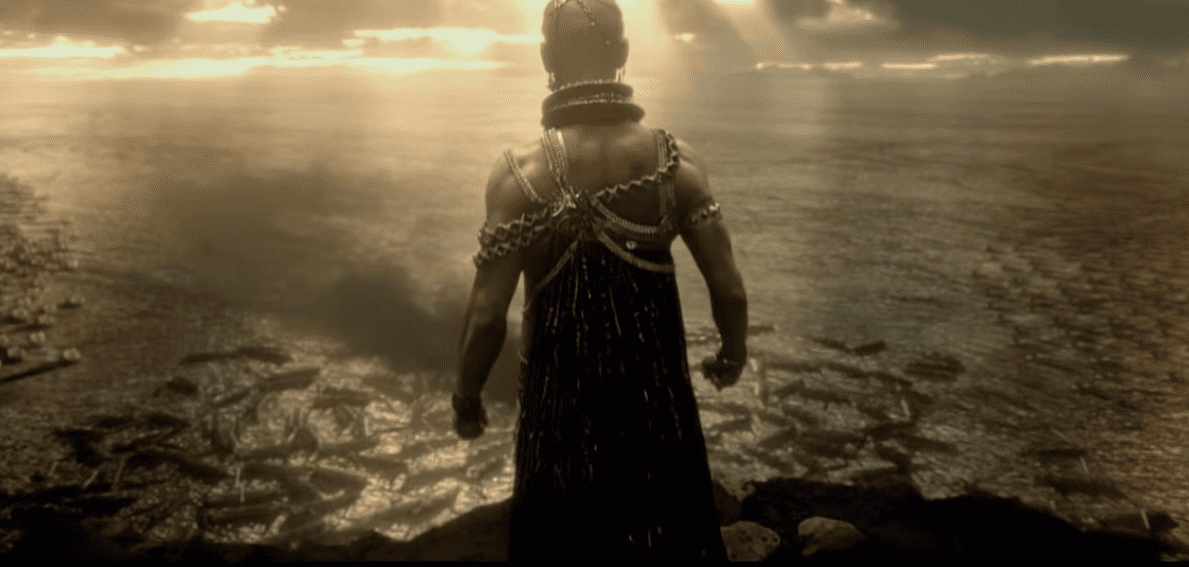 300: Rise of an Empire, Warner Bros.
300: Rise of an Empire, Warner Bros.
128. Good Guy
In just one of the many interesting anecdotes about Xerxes, he visited the home of his powerful nobleman, Pythius of Lydia, on the way to invade Greece. Xerxes had already conscripted Pythias’ five sons for the invasion, but Pythias was eager to show his loyalty to the king. Xerxes was so impressed by the lavish feast awaiting him in Pythius’ home that he refused Pythias’ offer of money to the battle effort.
In fact, Xerxes gave Pythius some of his own treasure in gratitude for the man’s support.
129. Bad Guy
There’s a terrifying epilogue to Xerxes and Pythius’s interactions. Just before the Persian army was set to cross the Hellespont, a solar eclipse occurred. Xerxes was eager to ignore his seers’ warnings of disaster, but Pythius was a bit more superstitious. Hoping that Xerxes was still in a good mood, Pythias allegedly asked the king to let his eldest son come home so he would be able to keep one of his kids alive.
This lack of confidence in Xerxes so enraged the king that he took Pythius’ eldest son, cut him in half, and had his army march between the two halves!
130. Thank Goodness Napoleon Will Screw Up Worse Than Me!
Although Xerxes had taken a large number of army back with him on the journey home, there was a serious problem when they retraced their steps back home. Xerxes’s army had previously cleaned out the land of food. Even Xerxes wound up going hungry, allegedly surviving on bark and roots on the way home. Many of his army either starved to end or passed of sickness.
131. A Feud to Make Titus Andronicus Blush
Aside from his defeats in Greece, an alleged low point for Xerxes on a personal level was the problem concerning his affairs. A devoted womanizer, Xerxes began an affair with his niece, Artaynte. When Xerxes’s wife heard of the affair, she ordered Artaynte’s mother to be brutally mutilated in revenge (we’ll spare you the gruesome details).
When Xerxes’s brother understandably went on the warpath, Xerxes ended said brother, his nephews, and every man who rallied to their cause. Of course, we have to remember that the source for this story was the Greek Herodotus, whose histories have to be taken with a few grains of salt.


